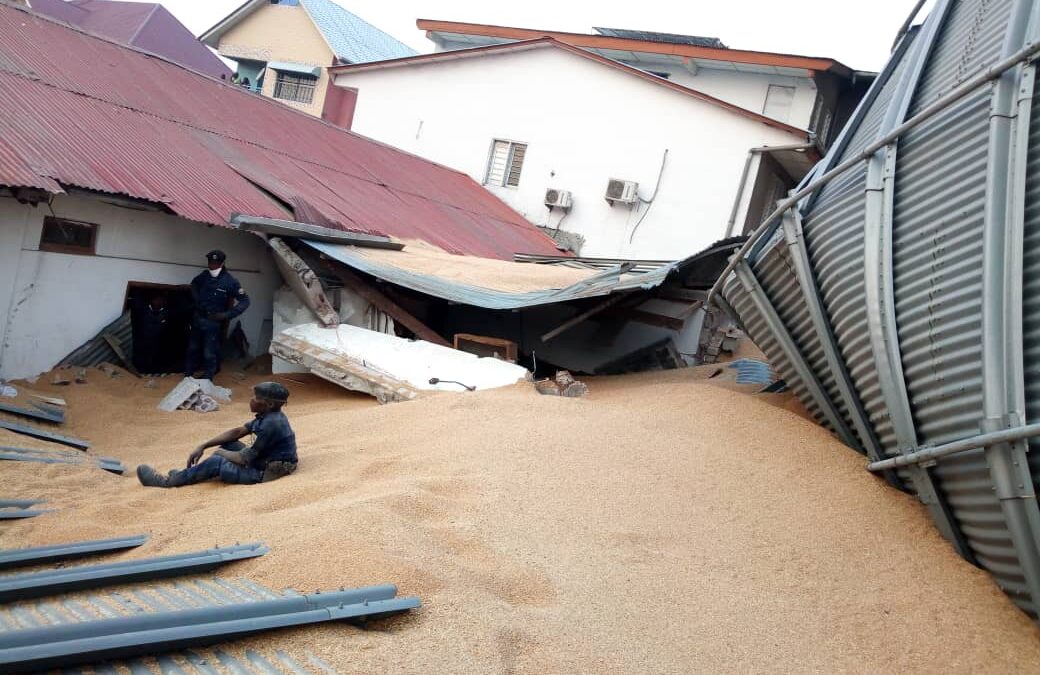
Aug 30, 2018 | Focolare Worldwide
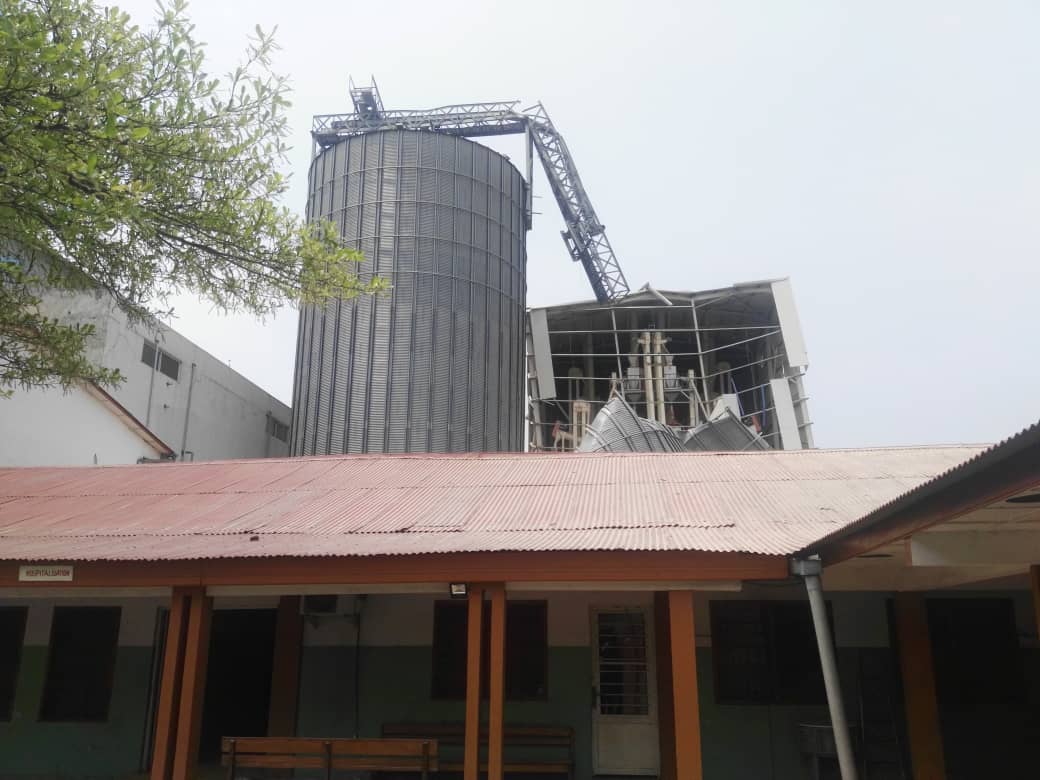 Focolare president Maria Voce wrote to the local Focolare community in the Democratic Republic of Congo: “Let us ask the Father to welcome into His Kingdom of peace all those persons who lost their lives in this serious accident, while entrusting to His love the wounded and everyone involved.” The accident occurred on the morning of August 28th in the city of Limate, north of Kinshasa. A silo containing tons of wheat, owned by flour producer FAB Congo, collapsed on part of the Moyi mwa Ntongo Hospital and an adjacent company. Under the weight of the rubble some people lost their lives, including Valentine, a member of the Focolare who was in charge of the laundry services, while other victims were in nearby buildings. “There has been an outpouring of help and support, searching for her body,” writes Aga Kahambu on behalf of the local Focolare community, with police, Red Cross and volunteers working tirelessly. Some of the victims are FAB employees, but the number is still uncertain. It is a very sorrowful time for all of us, but the unity and solidarity among so many has helped to strengthen us.”
Focolare president Maria Voce wrote to the local Focolare community in the Democratic Republic of Congo: “Let us ask the Father to welcome into His Kingdom of peace all those persons who lost their lives in this serious accident, while entrusting to His love the wounded and everyone involved.” The accident occurred on the morning of August 28th in the city of Limate, north of Kinshasa. A silo containing tons of wheat, owned by flour producer FAB Congo, collapsed on part of the Moyi mwa Ntongo Hospital and an adjacent company. Under the weight of the rubble some people lost their lives, including Valentine, a member of the Focolare who was in charge of the laundry services, while other victims were in nearby buildings. “There has been an outpouring of help and support, searching for her body,” writes Aga Kahambu on behalf of the local Focolare community, with police, Red Cross and volunteers working tirelessly. Some of the victims are FAB employees, but the number is still uncertain. It is a very sorrowful time for all of us, but the unity and solidarity among so many has helped to strengthen us.” 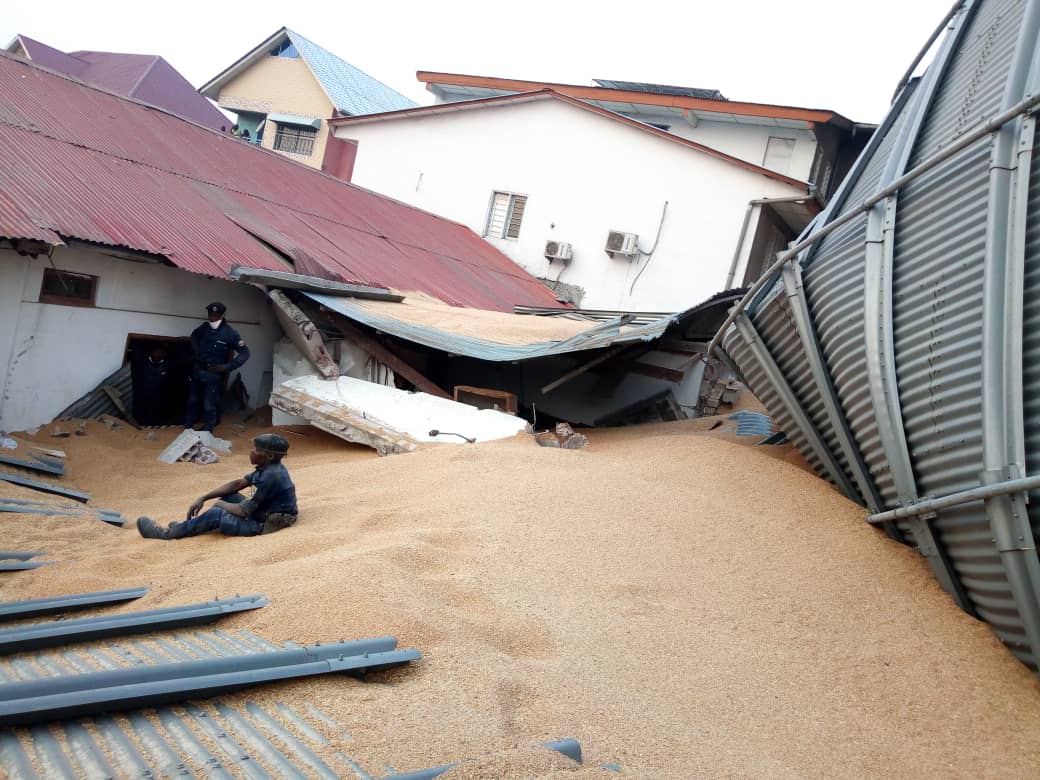 According to the local newspaper, “Actualite.cd,” the count is provisional, because the incident occurred at rush hour” and it reports “significant damage to the facilities, with the destruction of radiology, diagnostics and other departments.” Constructed in 2006 and directed by the Focolare Movement, the medical centre Moyi Mwa Ntongo is considered an excellent facility with 55 beds. Built for the care of child blindness, the centre then took on other projects, such as HIV and AIDS. Moreover, it is a model international humanitarian project: it makes use of specialists and local staff, trained both in the DRC and in Europe. In 2016, ten years after its founding, it finished a modern maternity and neonatology unit, which are essential in a country with one of the highest infantile death rates in the world. Fortunately that unit was preserved from the collapse. The ward was completed thanks to the contribution of people and agencies connected to the Focolare Movement, such as the Giancarlo Pallavicini Foundation and the gentlemen Albina Gianotti and Vittorino Giussani, financers of the Medical Centre since the day it began, and by AMU Luxemburg and AECOM Congo, as well as other supporters.
According to the local newspaper, “Actualite.cd,” the count is provisional, because the incident occurred at rush hour” and it reports “significant damage to the facilities, with the destruction of radiology, diagnostics and other departments.” Constructed in 2006 and directed by the Focolare Movement, the medical centre Moyi Mwa Ntongo is considered an excellent facility with 55 beds. Built for the care of child blindness, the centre then took on other projects, such as HIV and AIDS. Moreover, it is a model international humanitarian project: it makes use of specialists and local staff, trained both in the DRC and in Europe. In 2016, ten years after its founding, it finished a modern maternity and neonatology unit, which are essential in a country with one of the highest infantile death rates in the world. Fortunately that unit was preserved from the collapse. The ward was completed thanks to the contribution of people and agencies connected to the Focolare Movement, such as the Giancarlo Pallavicini Foundation and the gentlemen Albina Gianotti and Vittorino Giussani, financers of the Medical Centre since the day it began, and by AMU Luxemburg and AECOM Congo, as well as other supporters.
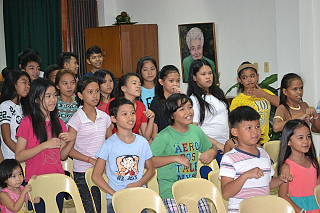
Aug 29, 2018 | Non categorizzato
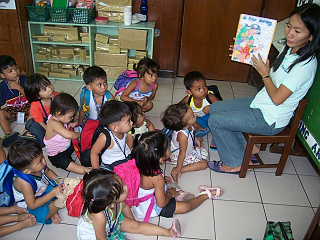 “When I was 6, my mother made me sign up to the daily social assistance program at Bukas Palad, which is a social project put on by the Focolare through its AMU (Action for a United World) and AFN (New Families) organizations. She had met a teacher who worked there. I remember her telling me, ‘There you will learn to have a smile that shines.’ My mother also participated in formation meetings and started to commit herself as a Volunteer. Initially I thought that she did it because she had nothing else to do, other than housework, but then I changed my mind when I saw that she also went on Saturdays. My father and brothers noticed she was happier. I was also attracted by the spirit of reciprocal love and unity that there was between staff members. Thanks to the project I was able to complete all my studies and graduate. I can testify that Bukas Palad had a fundamental role in most of my experiences and life choices. I remember quite well all the activities that we had at school and during the weekends with all the students. The training we received helped us become people who were sensitive to others and consider being poor not as an obstacle to doing what we want, but a gift.
“When I was 6, my mother made me sign up to the daily social assistance program at Bukas Palad, which is a social project put on by the Focolare through its AMU (Action for a United World) and AFN (New Families) organizations. She had met a teacher who worked there. I remember her telling me, ‘There you will learn to have a smile that shines.’ My mother also participated in formation meetings and started to commit herself as a Volunteer. Initially I thought that she did it because she had nothing else to do, other than housework, but then I changed my mind when I saw that she also went on Saturdays. My father and brothers noticed she was happier. I was also attracted by the spirit of reciprocal love and unity that there was between staff members. Thanks to the project I was able to complete all my studies and graduate. I can testify that Bukas Palad had a fundamental role in most of my experiences and life choices. I remember quite well all the activities that we had at school and during the weekends with all the students. The training we received helped us become people who were sensitive to others and consider being poor not as an obstacle to doing what we want, but a gift.  Through the project I met Chiara Lubich and the young people of the Focolare. Growing up in this environment, I learned that dreams can be reached if we believe that God’s love has a plan for each of us in our lives. I graduated with a degree in education from the University of Cebu, and then I passed the teacher’s entrance exam. Immediately after graduating I started working, continually accompanied by my Focolare ‘family’, who were always at my side, even when I had to face the world of work and life in general. Whether in moments that were satisfying or those that were more difficult, I had one of Chiara Lubich’s sayings with me: ‘Be family.’ When I think of Bukas Palad, I know well what it is to be a family. At first I taught in a private school for five years. Then in 2014, I requested a change to teach in public school. I was assigned to a school in Mandaue, a city that is part of the Cebu metropolitan area. Here things were completely different; there was not the same structure or systems in place that I was used to. When I had been teaching in private school, I thought that being a teacher meant having a huge heart and a brave soul. Now that I work in a public school, I believe I need a heart that is even larger, a soul that is even more courageous, and even more strength. Each time I’m tempted to leave this work behind, something keeps me here – especially the children. I see in them myself and my friends, many years ago, when we dreamt of becoming what we are now. Perhaps I will not be able to give them the same help and support that my family and I have received, but I try my best to transmit that same love to them.”
Through the project I met Chiara Lubich and the young people of the Focolare. Growing up in this environment, I learned that dreams can be reached if we believe that God’s love has a plan for each of us in our lives. I graduated with a degree in education from the University of Cebu, and then I passed the teacher’s entrance exam. Immediately after graduating I started working, continually accompanied by my Focolare ‘family’, who were always at my side, even when I had to face the world of work and life in general. Whether in moments that were satisfying or those that were more difficult, I had one of Chiara Lubich’s sayings with me: ‘Be family.’ When I think of Bukas Palad, I know well what it is to be a family. At first I taught in a private school for five years. Then in 2014, I requested a change to teach in public school. I was assigned to a school in Mandaue, a city that is part of the Cebu metropolitan area. Here things were completely different; there was not the same structure or systems in place that I was used to. When I had been teaching in private school, I thought that being a teacher meant having a huge heart and a brave soul. Now that I work in a public school, I believe I need a heart that is even larger, a soul that is even more courageous, and even more strength. Each time I’m tempted to leave this work behind, something keeps me here – especially the children. I see in them myself and my friends, many years ago, when we dreamt of becoming what we are now. Perhaps I will not be able to give them the same help and support that my family and I have received, but I try my best to transmit that same love to them.”
Aug 28, 2018 | Focolare Worldwide
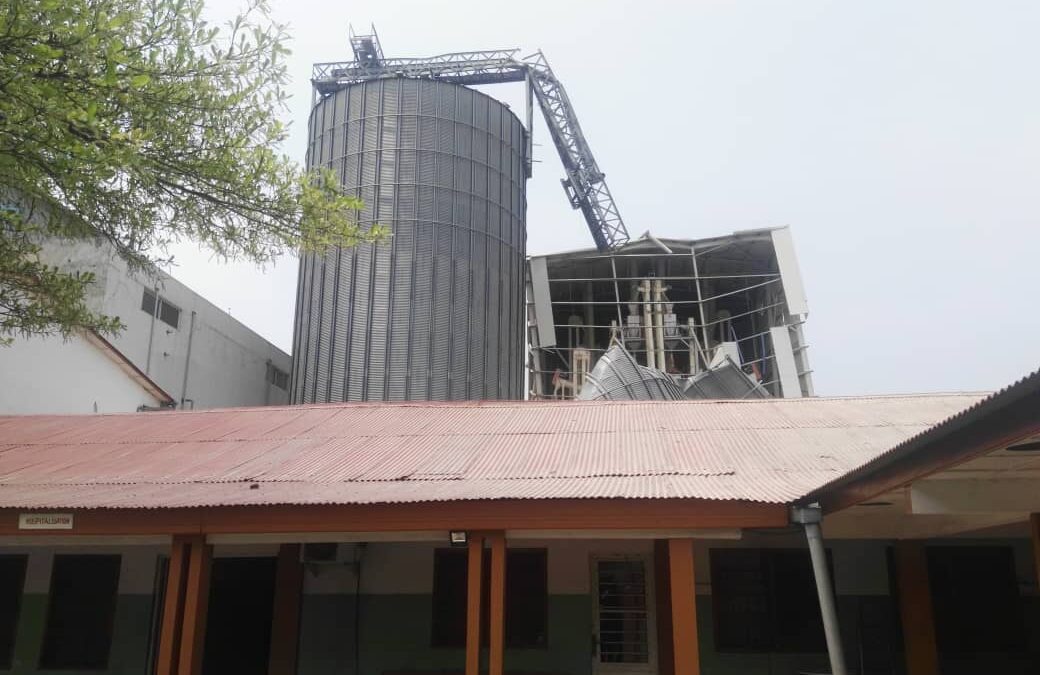
Aug 28, 2018 | Non categorizzato
In a communication issued by the local headline “Actualite.cd”, the hospital’s health department reports that “seriously ill and severely injured patients were urgently transferred to the nearest hospitals” and that the priority at this time is to rescue those people “who are still under the rubble” and to give support to those who have been affected. Significant damage has been caused to facilities, such as the destruction of the radiology department, the centre for diagnostics and other sectors.
The maternity department and pediatrics, as well as an operating theatre were inaugurated two years ago. The collapse of the silos owned by the FAD Congo company caused damage to surrounding buildings including a factory, where there have been other casualties. Several authorities, including the mayor of the municipality of Limete, have arrived on the scene.
The Focolare Movement expresses its solidarity with the victims in their suffering and assures its spiritual closeness to all families involved.
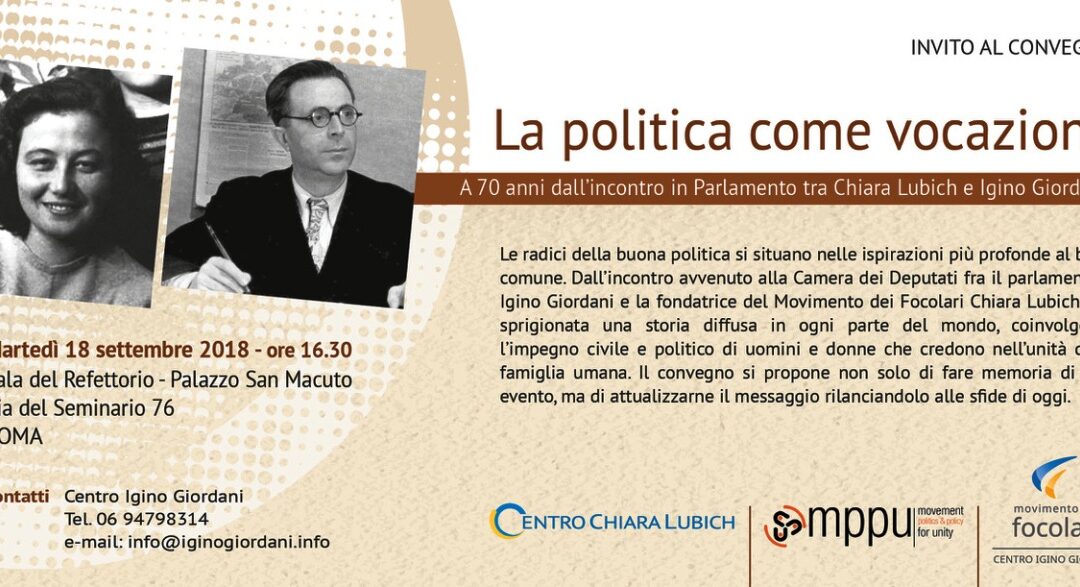
Aug 28, 2018 | Non categorizzato
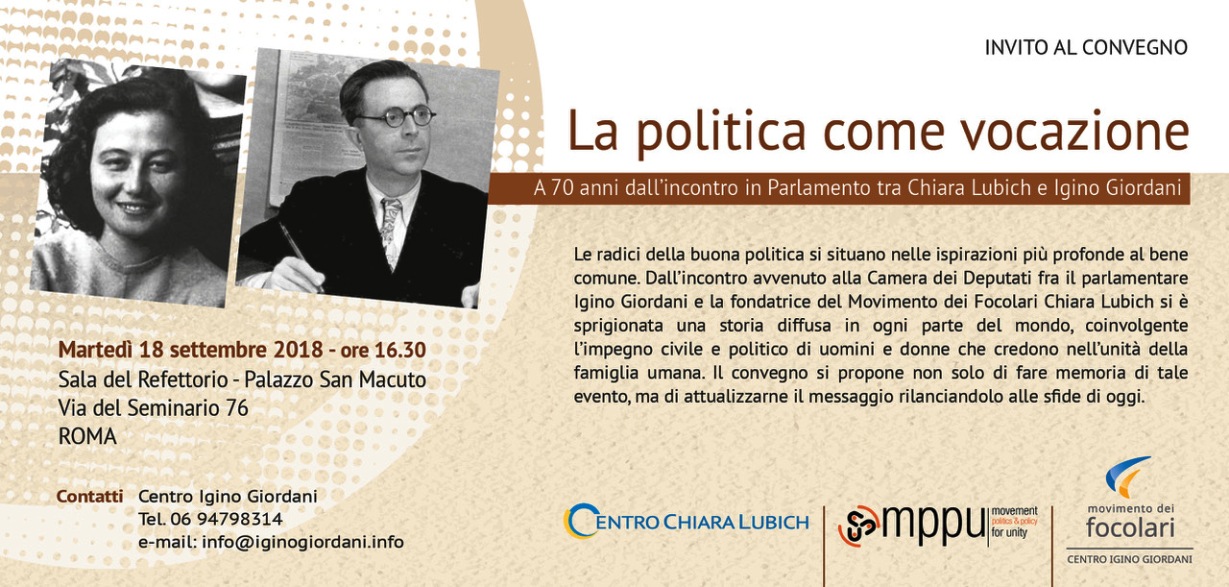 Politics as a vocation 70 years from the encounter between Chiara Lubich and Igino Giordani in Parliament. The roots of good politics lie in the deepest aspirations for common good. From the encounter at the House of Representatives between Igino Giordani and the founder of the Focolare Movement, Chiara Lubich, ensued a story that spread to every part of the world, involving the civil and political commitment of men and women who believe in the unity of the human family. The convention aims not only to commemorate this event but to actualize its message, and relaunch it to meet the challenges of today. Tuesday, 18 September 2018 – 4.30 pm Sala del Refettorio – Palazzo Dan Macuto Via del Seminario 76 ROME Contacts: Centro Igino Giordani Tel. 06/94798314 Email: info@iginogiordani.info
Politics as a vocation 70 years from the encounter between Chiara Lubich and Igino Giordani in Parliament. The roots of good politics lie in the deepest aspirations for common good. From the encounter at the House of Representatives between Igino Giordani and the founder of the Focolare Movement, Chiara Lubich, ensued a story that spread to every part of the world, involving the civil and political commitment of men and women who believe in the unity of the human family. The convention aims not only to commemorate this event but to actualize its message, and relaunch it to meet the challenges of today. Tuesday, 18 September 2018 – 4.30 pm Sala del Refettorio – Palazzo Dan Macuto Via del Seminario 76 ROME Contacts: Centro Igino Giordani Tel. 06/94798314 Email: info@iginogiordani.info
Aug 27, 2018 | Non categorizzato, Word of
for ages 4-8 | for ages 9-17 | Print | Audio
The Word of Life this month comes from a text attributed to the disciple James, who was a prominent figure in the Church in Jerusalem. He exhorted Christians saying there should be coherence between what they believed and what they did. The first paragraph of the letter highlights an essential condition that makes this possible. Christians needed to be free from all wickedness in order to welcome God’s word and be guided by it on the journey toward fulfilling their Christian vocation. The word of God has a creative power that produces fruits of goodness in both the individual and in the community. It builds relationships founded on love between each of us and God and among us all. James says this word has already been “planted” in us. “Humbly welcome the word that has been planted in you and is able to save your souls.” One place where God clearly speaks to us is the Bible, and for Christians the Gospels are especially important. We can welcome God’s word by reading Scripture with love, and we see its fruits when we put it into practice. We can also listen to God in the depths of our hearts, where we often experience an influx of many voices and words. These might be slogans, or refer to choices we might make, or people to admire or maybe worries or fears. How can we recognize God’s word and leave room for it to live in us? We need to make ourselves still and surrender to God’s call, so as to listen freely and courageously to his voice which is usually gentle and quiet. God’s voice asks us to avoid being closed in on ourselves and to venture onto the path of encounter and dialogue with him and with others. It also calls on us to work so that human coexistence can become more harmonious and we can be increasingly ready to recognize one another as brothers and sisters. “Humbly welcome the word that has been planted in you and is able to save your souls.” How can this be? It is surely because, from the very beginning, God stated clearly that humankind was created in his “image.” In fact, every human being is a “you” in relation to God. Every person is called into existence to share in God’s life of love and fellowship. In addition, for Christians the sacrament of baptism incorporates us into Christ, the word of God who entered into human history. God has, therefore, sown the seed of his word in every person. This word calls them to do what is good; it calls them to justice, self-giving and fellowship. When the word is welcomed and cultivated in our own “soil,” it produces life and fruit. “Humbly welcome the word that has been planted in you and is able to save your souls.” In fact, the word of God can transform our daily life into the story of our liberation from the darkness of personal and social evil. However, we need to accept the word personally and consciously, even if it is an ongoing process and we are imperfect and fragile. Our thoughts and feelings will become more like those of Jesus himself. Our faith and hope in God’s love will grow stronger, and we will notice other people’s needs and help them. Chiara Lubich explained this in 1992: “We saw a profound unity between Jesus’ love for the Father and his love for his brothers and sisters. There was total coherence between his words and his life, and this fascinated and attracted everyone. “We too should be like him, accepting his words with childlike simplicity and putting them into practice. His words shine out in their purity, strength and completeness. By living them, we become the kind of disciples he wants us to be, disciples who are equal to their teacher, like Jesus spread throughout the world. What greater and more beautiful adventure could there be?” Letizia Magri soundcloud.com/…/word-of-life-september-2018
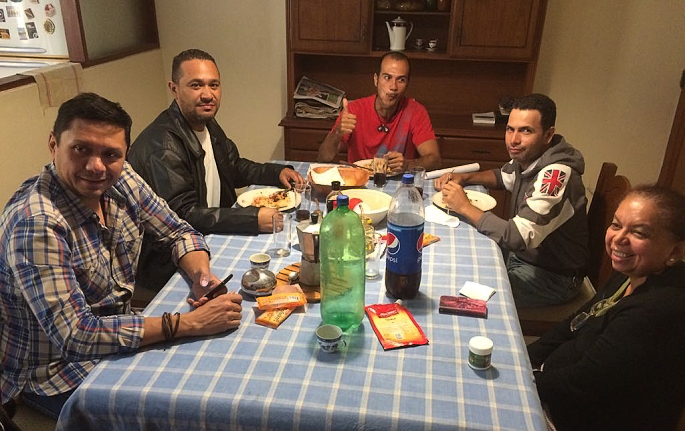
Aug 27, 2018 | Focolare Worldwide
“According to reliable sources, on the 11th of August alone 5,100 Venezuelans crossed the border between Ecuador and Peru, a record that exceeds last May when in 3,700 new arrivals arrived in one day. This is why Ecuador has declared a state of migratory emergency.” Roggero, born in Venezuela of Italian parents, knows Latin America where he lived for almost 40 years before moving to the Peruvian capital in 2015. Not only are Brazil, Colombia, Ecuador and Peru grappling with an epochal exodus, but also more distant countries like Chile, Argentina and even Uruguay and, according to many observers, it threatens to provoke one of the greatest humanitarian crises in recent decades. The new rules of entry into Ecuador and Peru a few days ago imposed on Venezuelan citizens to show a passport, which is impossible to obtain these days. “This is something hard to understand if you aren’t experiencing it for yourself. The Venezuelans who have fled to Peru may have already reached the quota of 400 thousand people. They fled from a country in the grip of a very serious crisis where everything is lacking, and I’m here to find a job and keep together the rest of the family that’s been left in Venezuela at the cost of great sacrifice. They are willing to do anything, they often go hungry; they spend even 3-4 hours a day on the bus to earn just a few dollars. Many sleep on the floor and suffer from cold because they do not even have a blanket and shower with cold water. But at least they know that the family members who went to stay in Venezuela (wife, children, brothers, grandparents …) have a roof over their heads and can somehow survive with the few dollars that come from abroad.  Meanwhile, the Focolare community has been trying to welcome people, relatives or friends, who keep arriving. “What is important for us,” says Silvano, is that they find a family atmosphere. Then, if we can share some food, jackets, medicines, a blanket or some help in obtaining a temporary residence permit, even better. On August 12th we met for the third time in the Lima focolare with the Fiore Center one of our operations offices. We were 23 people, two thirds of whom were Venezuelan. First, those who wanted could attend Mass. Then we offered lunch on two large tables. Before leaving, we saw a video presentation of Chiara Lubich, because most of the people did not know the Movement. An always moving moment is when we distribute clothes that the local community collects for us. We also laughed a lot when one of the people was wearing his coat, which he picked up by accident. This unusual happiness concealed some very harsh realities and all kinds of painful stories of the journey from Venezuela. Talking and listening to them has been a liberation for them. To somebody in emergency we could offer, in the meantime, some washing machine tours. To some others we were able to offer a few turns of our washing machines for their laundry. Two rocker friends of one of the guests showed up by chance and left deeply moved by the relationship they had seen among all of us. They called us “quality people”. It seems that this definition, in the rocket world, at least in Venezuela, is the highest possible compliment. And it was not over yet: from the one you would least expect came an invitation to say a final prayer. All of us in a circle joined hands and offered a prayer that was very meaningful! That same evening we learned that the UN estimates that 2.3 million Venezuelans have already fled the country since the beginning of the crisis. So we still have a lot of work to do – and for quite a while. “
Meanwhile, the Focolare community has been trying to welcome people, relatives or friends, who keep arriving. “What is important for us,” says Silvano, is that they find a family atmosphere. Then, if we can share some food, jackets, medicines, a blanket or some help in obtaining a temporary residence permit, even better. On August 12th we met for the third time in the Lima focolare with the Fiore Center one of our operations offices. We were 23 people, two thirds of whom were Venezuelan. First, those who wanted could attend Mass. Then we offered lunch on two large tables. Before leaving, we saw a video presentation of Chiara Lubich, because most of the people did not know the Movement. An always moving moment is when we distribute clothes that the local community collects for us. We also laughed a lot when one of the people was wearing his coat, which he picked up by accident. This unusual happiness concealed some very harsh realities and all kinds of painful stories of the journey from Venezuela. Talking and listening to them has been a liberation for them. To somebody in emergency we could offer, in the meantime, some washing machine tours. To some others we were able to offer a few turns of our washing machines for their laundry. Two rocker friends of one of the guests showed up by chance and left deeply moved by the relationship they had seen among all of us. They called us “quality people”. It seems that this definition, in the rocket world, at least in Venezuela, is the highest possible compliment. And it was not over yet: from the one you would least expect came an invitation to say a final prayer. All of us in a circle joined hands and offered a prayer that was very meaningful! That same evening we learned that the UN estimates that 2.3 million Venezuelans have already fled the country since the beginning of the crisis. So we still have a lot of work to do – and for quite a while. “
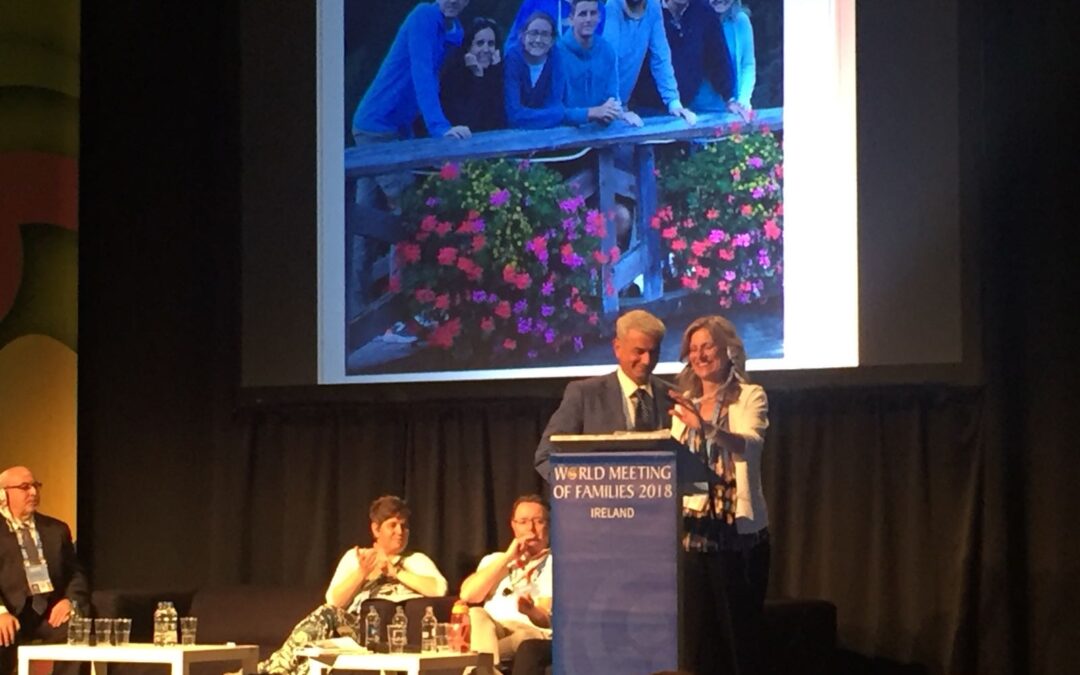
Aug 26, 2018 | Focolare Worldwide
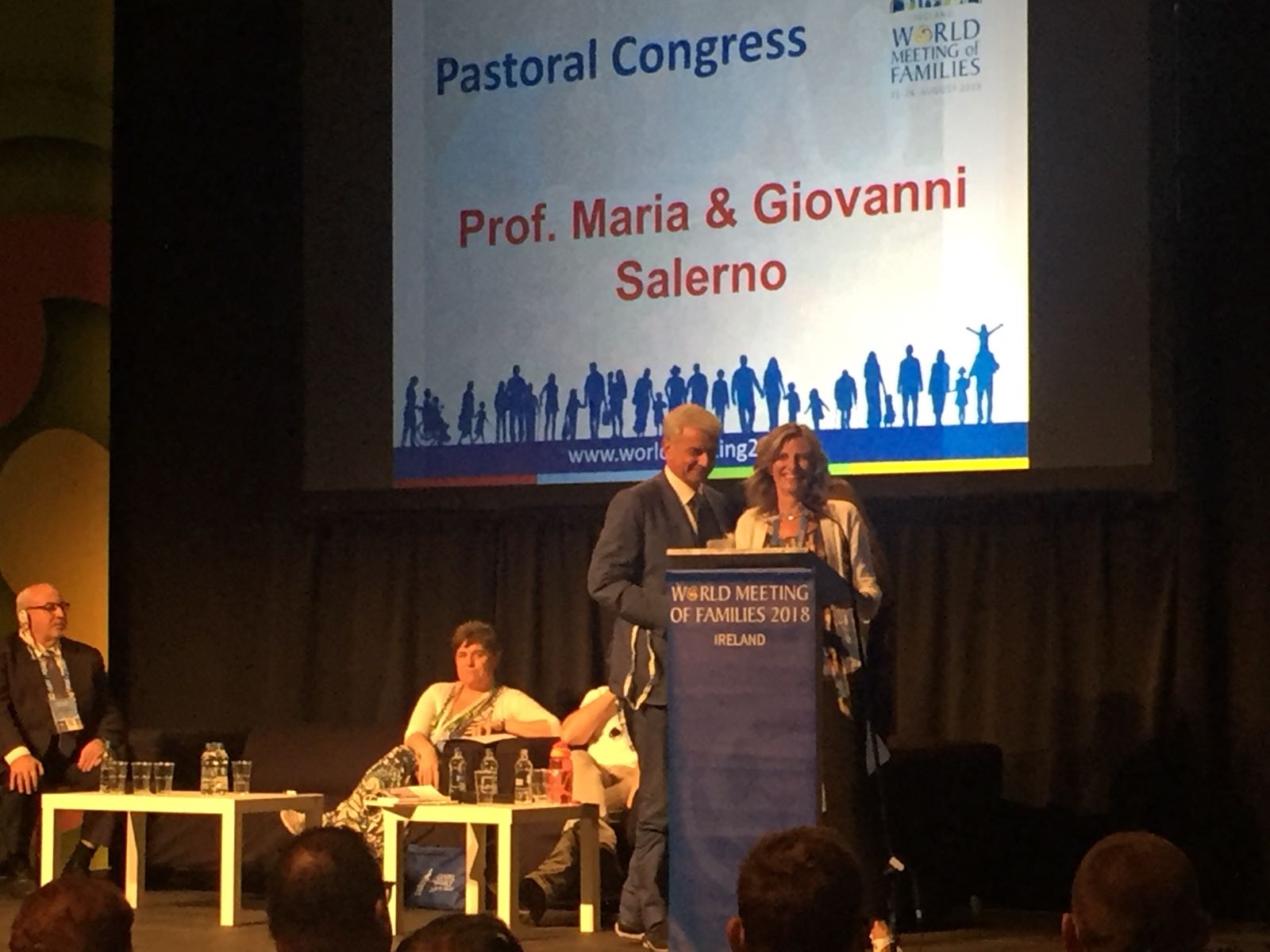 Married for 31 years, with five children and a granddaughter on the way, Gianni and Maria Salerno would have many stories to tell, along with practical advice on raising children. But for their panel on “Joy and the challenges of parents raising children in today’s world,” which is the main topic of the meeting in Dublin, they bring to the table the patrimony of the life and experience that has matured for many years in the Focolare’s New Families Movement. Some of the topics that will be discussed are: the role of technology in the family, the relationship with the faith, the multiple connections with work, the economy and environment. It is a “family of families,” which draws on the spirituality of unity of Chiara Lubich as a compass that marks north on the sometimes wearisome journey of life. “We’d like to emphasize several “key terms” that seem useful for the relationship with our children and are liveable anywhere in every the country of the world, regardless of culture. The first is detachment. Our children are not ours, they’re God’s children. This attitude allows us to seek what is best for them, to respect their freedom and to discover God’s plan for their happiness. Another important word is accompany, to them feel our nearness so that they can face difficulties without feeling all alone. Thus they can learn commitment, through an ongoing training of the will. Then, there is a phrase that has always been fundamental in our experience and in the experience of many other families from around the world with whom we are in contact: start again. When you make a mistake, when there’s a problem, or love is lacking, we can always put a period and begin again, asking forgiveness if we’ve overdone it when correcting one of our children, which for parents is often an opportunity to unload rather than educate.”
Married for 31 years, with five children and a granddaughter on the way, Gianni and Maria Salerno would have many stories to tell, along with practical advice on raising children. But for their panel on “Joy and the challenges of parents raising children in today’s world,” which is the main topic of the meeting in Dublin, they bring to the table the patrimony of the life and experience that has matured for many years in the Focolare’s New Families Movement. Some of the topics that will be discussed are: the role of technology in the family, the relationship with the faith, the multiple connections with work, the economy and environment. It is a “family of families,” which draws on the spirituality of unity of Chiara Lubich as a compass that marks north on the sometimes wearisome journey of life. “We’d like to emphasize several “key terms” that seem useful for the relationship with our children and are liveable anywhere in every the country of the world, regardless of culture. The first is detachment. Our children are not ours, they’re God’s children. This attitude allows us to seek what is best for them, to respect their freedom and to discover God’s plan for their happiness. Another important word is accompany, to them feel our nearness so that they can face difficulties without feeling all alone. Thus they can learn commitment, through an ongoing training of the will. Then, there is a phrase that has always been fundamental in our experience and in the experience of many other families from around the world with whom we are in contact: start again. When you make a mistake, when there’s a problem, or love is lacking, we can always put a period and begin again, asking forgiveness if we’ve overdone it when correcting one of our children, which for parents is often an opportunity to unload rather than educate.” 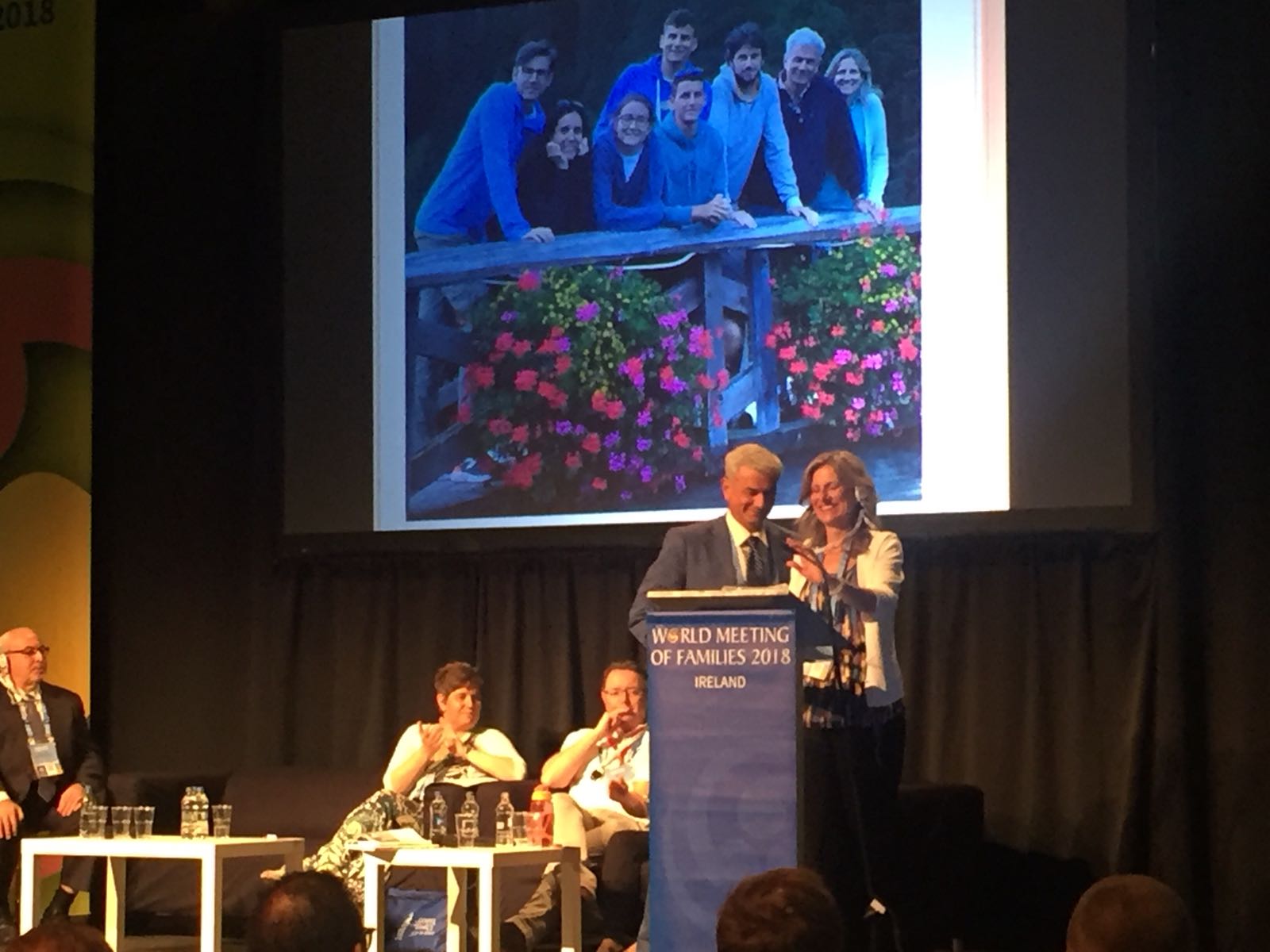 “We should always try to immerse ourselves in what our children are going through. We use a popular phrase to express our desire to listen deeply and be open: walk in their shoes for a while before giving any quick answers. Example, sharing and dialogue are indispensable in a family. You have to be able to talk about anything in a family and parents are the ones who must prove it, using their antennas to catch the non-verbal messages that children send – especially teenagers – which are often provocations. Then we need to give our time to them. How much effort this involves, perhaps at night after a long day’s work, especially when our thoughts don’t coincide. We have to allow ourselves to challenge them without any fear of them or their ‘world,’ even when worries of all kinds arise within us: about their health, the friends they choose, school and the future. When this happens we try to hold on to a valuable piece of advice: be occupied, not preoccupied so as to avoid letting our anxiety make them even more insecure or less free. In the end, what we can always do is to pray for them, entrusting them to God’s love. There are cases in which children become rebellious and reject the relationship with the parents, taking on violent behaviours, making questionable choices that are sometimes grave and serious. This causes suffering and destabilizes the family. The wound of having failed at educating our children really burns and makes us wonder: where did we go wrong? Also in these cases we have to remember that we are parents forever and that the door of our hearts is always open. It’s not easy, but we can follow the example of Jesus crucified and abandoned who offered his pain and transformed it into Love. Like him, we can also consume our pain by continuing to love our children concretely, along with all the other neighbours who come our way, in the awareness that, in the end, Love will triumph.”
“We should always try to immerse ourselves in what our children are going through. We use a popular phrase to express our desire to listen deeply and be open: walk in their shoes for a while before giving any quick answers. Example, sharing and dialogue are indispensable in a family. You have to be able to talk about anything in a family and parents are the ones who must prove it, using their antennas to catch the non-verbal messages that children send – especially teenagers – which are often provocations. Then we need to give our time to them. How much effort this involves, perhaps at night after a long day’s work, especially when our thoughts don’t coincide. We have to allow ourselves to challenge them without any fear of them or their ‘world,’ even when worries of all kinds arise within us: about their health, the friends they choose, school and the future. When this happens we try to hold on to a valuable piece of advice: be occupied, not preoccupied so as to avoid letting our anxiety make them even more insecure or less free. In the end, what we can always do is to pray for them, entrusting them to God’s love. There are cases in which children become rebellious and reject the relationship with the parents, taking on violent behaviours, making questionable choices that are sometimes grave and serious. This causes suffering and destabilizes the family. The wound of having failed at educating our children really burns and makes us wonder: where did we go wrong? Also in these cases we have to remember that we are parents forever and that the door of our hearts is always open. It’s not easy, but we can follow the example of Jesus crucified and abandoned who offered his pain and transformed it into Love. Like him, we can also consume our pain by continuing to love our children concretely, along with all the other neighbours who come our way, in the awareness that, in the end, Love will triumph.”
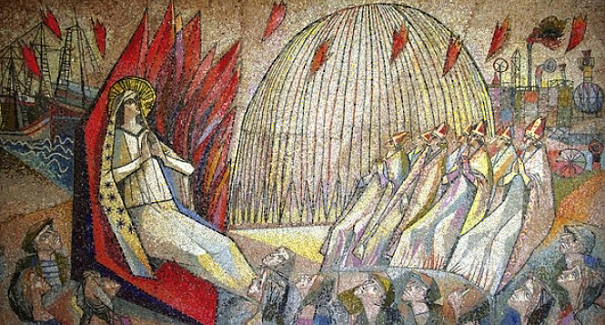
Aug 24, 2018 | Non categorizzato

Mosaic by Paolo Scirpa (International Centre of the Focolare Movement, Rocca di Papa, Italy)
Aug 23, 2018 | Non categorizzato
Drugs in school I had to take care of a student who had been using drugs. The usual punishment for this is exclusion from lessons for a week. I didn’t want this student to spend the time in bad company and so I arranged for him to work with a community and to come to school and study on his own in the library. In school, I stayed with him the whole time and helped him with the work his group were doing in class so that he would not fall behind. I found this very demanding but it helped me realise that loving your neighbour means practical action. M.M. – Spain A new way of life at home We are part of a team that runs courses for engaged couples. One day, just before leaving for a meeting, we had a row with our son. My wife and I still left the house and began to make our way to our appointment but we didn’t feel at peace about the situation. After a few kilometres, we realised that we had nothing to offer the engaged couples. I stopped the car and rang our son saying we were sorry for the way we had behaved. We continued the journey but then my wife pointed out that I had spoken in a very curt and dismissive way on the telephone and then we too began to argue. After a few more kilometres, we realised that we were not in a position to talk about mutual love and so we called one of the other couples and said that we were going home. As soon as we set foot inside the door, we explained what we had done to our son who was amazed that we had turned back. This was a lesson that has helped us establish a different way of life at home. K.E. – Czech Republic The school trip During a school journey, some of my friends threw away food from our lunches without even opening the packaging. I was really shocked. The following day, I made plans in advance: at lunch time, I collected all the food that my friends hadn’t even touched and put it in a bag. Then I took it to a centre for the homeless that was nearby. N. – Italy A new move After thirty-five years of service, the bishop asked me to move to a new parish. At first, I felt very confused and prayed a lot. Then, I realised that I shouldn’t see things only from my point of view and said that I was ready to make this move. Straightaway, all my fears about my new role and worries about my health vanished. I saw clearly that I wasn’t doing anyone a favour; it was the opposite, I was receiving a grace. This was the solid basis upon which I began life in the new parish – it was very different from when I started my ministry as a young priest many years before. E.B. – Slovenia A little act of love I heard that a colleague had been admitted to hospital. I was following a course in another town but, for a few months, every weekend when I came home I used to go to visit him. His parents also used to come from quite a distance to see him. I thought that they might like to go for a pizza with me after one of their visits and so I invited them out. I listened to all their worries and walked back with them to the place they were staying. They said they had not had such an enjoyable evening since their son had gone into hospital. A. – Italy
Aug 23, 2018 | Focolare Worldwide
The flood in Kerala, southern State of India, has wrought more than 400 victims and about 750,000 displaced. The rescue and assistance operations are brought ahead amid great difficulties due to the inaccessibility of some areas struck. In some cases, they were forced to throw food and water from the helicopters because the streets and bridges were destroyed by the devastating floods. The local Focolare communities writes: “We have returned from Trichy (about 300 km from Kerala), where the Mariapolis was held with the members of the Word of Life groups, spread out within a range of 120 km. But our hearts are with the people of Kerala struck by strong rains. We are still in the monsoon period, with hot winds that cause these tropical typhoons. For all we know, the members of the Movement are fine. A retreat had been programmed for the priests in Trivandrum (south Kerala), but we had to cancel it because it is not safe to travel and many of the priests who booked are involved in the tragedy. During the weekend, our local communities were busy collecting foodstuffs and prime commodities to be sent to the struck areas. We are counting on your prayers.” Also Pope Francis prayed for the victims so that “our brothers there may have our solidarity and the concrete support of the community.”
Aug 23, 2018 | Focolare Worldwide
“We are following closely the events surrounding the Coast Guard Ship ‘Ubaldi Diciotti‘, which arrived in Catania and is in two-days stand-off with 177 people on board who are not being allowed to disembark. The umpteenth case, unfortunately, that over the past few months has put a strain on the culture of hospitality that has always been the mark of the Italian people, “says the press release of 22 August signed by Rosalba Poli and Andrea Goller who are leaders of the Focolare Movement in Italy. They support “the need for shared paths at a European level in the search for non-improvised solutions”. But they highlight “the great concern for human events such as people fleeing from hunger, war and death”. And they ask “that the human dignity of those who are in the same condition recognized either in their countries of origin, and in the countries through which they are travelling, including ours where they have now landed.” The communiqué concludes with an appeal to politicians “from all backgrounds; that they put aside disputes between sides and particular interests, and collaborate in the name of our common humanity, which comes before any other distinction or separateness”. See also: “A-mare (o amare) il prossimo” (in Italian)
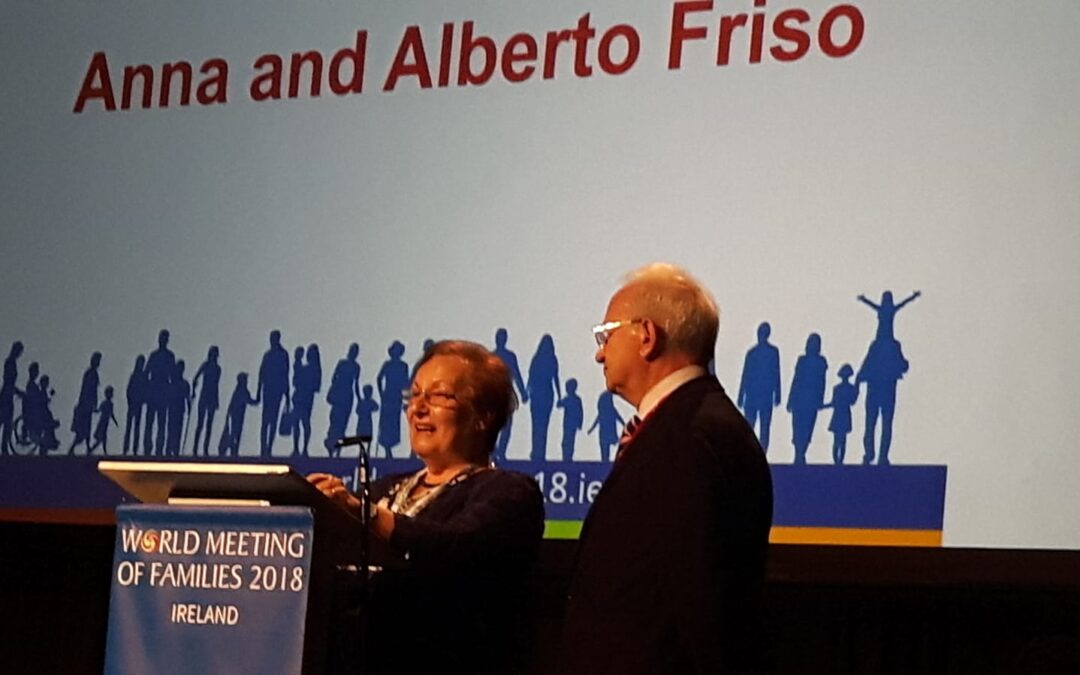
Aug 22, 2018 | Focolare Worldwide
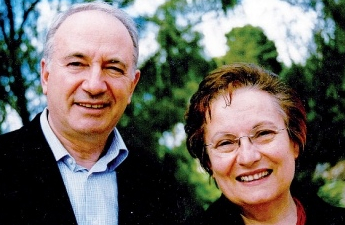 Fifty years ago we ourselves did not know the origins of our love. We were content to know that we had undertaken a journey which had no end in sight, amazed that our differences could be so balanced, so enjoyable and complementary, so much so that although we were different we felt we were wonderfully equal. We felt we were ready for everything, convinced that no one loved in the way we loved, because we had invented love. Less than a year after that wonderful ‘yes,’ some clouds already began to darken our horizon. Work, tiredness, routine… Yes, we all know that being in love ends at some point. It was then that someone revealed to us that God is the source of every love. God who is love. We should have known all this, because when we pronounced our wedding vows He was there with us and from then on he had even dwelt amongst us. But we did not realise what a gift we had, we did not know what a gift we had, we did not know his presence was part of the package! We realized afterwards, he gives the whole of himself to us asking in return just a small, agreeable, daily contribution: that we love one another with his very own love. Does being in love come to an end? [Yes but] love needs to take its place. Because if faith is, so to speak, an interior virtue, love is its outward, visible fulfilment. Love is greater than anything else: greater than faith, greater than hope. In the Next Life, there is no more need for these two virtues. On the other hand, love remains in Paradise. Love makes of the two one body. Which means one reality that is untouchable and indissoluble. It is a ‘we’’ that is open to the Absolute. Love must reach the paradox of knowing how to become nothing in order to put yourself in the other person’s shoes. Only in this way will our love mirror its original plan which comes forth from nothing less than the Trinity.
Fifty years ago we ourselves did not know the origins of our love. We were content to know that we had undertaken a journey which had no end in sight, amazed that our differences could be so balanced, so enjoyable and complementary, so much so that although we were different we felt we were wonderfully equal. We felt we were ready for everything, convinced that no one loved in the way we loved, because we had invented love. Less than a year after that wonderful ‘yes,’ some clouds already began to darken our horizon. Work, tiredness, routine… Yes, we all know that being in love ends at some point. It was then that someone revealed to us that God is the source of every love. God who is love. We should have known all this, because when we pronounced our wedding vows He was there with us and from then on he had even dwelt amongst us. But we did not realise what a gift we had, we did not know what a gift we had, we did not know his presence was part of the package! We realized afterwards, he gives the whole of himself to us asking in return just a small, agreeable, daily contribution: that we love one another with his very own love. Does being in love come to an end? [Yes but] love needs to take its place. Because if faith is, so to speak, an interior virtue, love is its outward, visible fulfilment. Love is greater than anything else: greater than faith, greater than hope. In the Next Life, there is no more need for these two virtues. On the other hand, love remains in Paradise. Love makes of the two one body. Which means one reality that is untouchable and indissoluble. It is a ‘we’’ that is open to the Absolute. Love must reach the paradox of knowing how to become nothing in order to put yourself in the other person’s shoes. Only in this way will our love mirror its original plan which comes forth from nothing less than the Trinity. 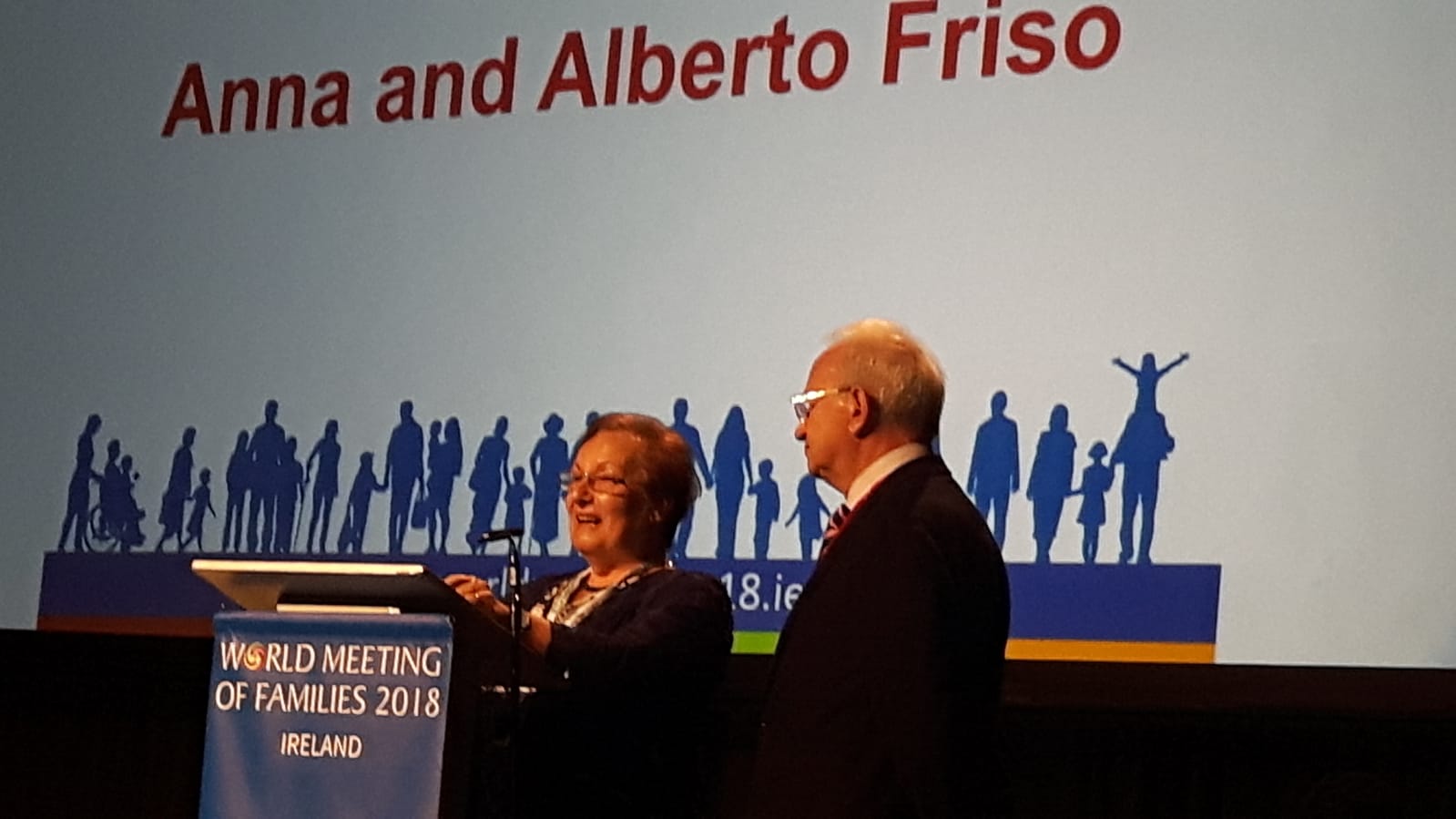 The ‘we’ formed by the couple is the first and living fruit of our love. The complimentarity of male and female expresses itself in a thousand daily gestures of mutual service and tenderness, up to the fullness of bodily intimacy. It is also expressed in sharing space, time and tasks. [The ‘we’ formed by the couple] knows how to go out first of all to their children and then towards others. The ‘we’ is the couple’s characteristic way of evangelizing, placing themselves before others as one example among many, and never as a model of the ideal family, which does not exist. Love is our unique opportunity, even if we feel that we are not perfect, even if we feel we have failed in everything. What matters is to believe that in the present moment we are the right person for the other; and that is what we are in the moment we decide to love them as they are, without any expectation that they will change, putting into action the three ‘magic’ words which Pope Francis teaches: please, thank you, sorry. It is said that today the family is going through the most tragic of all crises. Let us not regret the good old days, if ever such days existed. It is in the family that life is kindled. It is there that we learn to share, to rejoice, to suffer, to know sickness and to face death. Love makes it the most concrete of utopias. Families that welcome children even if disabled, others who adopt them precisely because they are disabled, those who welcome elderly parents, those who open their homes to migrants, those who help their children recover from addiction. In the fifty or more years that we have been together, life has taught us many things. We have cried and we partied. So many times we were wrong, but with his grace and forgiveness, we have started again. Putting our love again and again into the hands of God, who is our love, he has never hesitated, like at Cana to change our poor water into wonderful wine, making it wonderfully available also to those who are around us. And now, despite the fact that over the years our passion has diminished and the limitation of our characters are more evident, we continue trustfully to draw water from God’s unending source, happy to feel we are companions and accomplices right to the end.
The ‘we’ formed by the couple is the first and living fruit of our love. The complimentarity of male and female expresses itself in a thousand daily gestures of mutual service and tenderness, up to the fullness of bodily intimacy. It is also expressed in sharing space, time and tasks. [The ‘we’ formed by the couple] knows how to go out first of all to their children and then towards others. The ‘we’ is the couple’s characteristic way of evangelizing, placing themselves before others as one example among many, and never as a model of the ideal family, which does not exist. Love is our unique opportunity, even if we feel that we are not perfect, even if we feel we have failed in everything. What matters is to believe that in the present moment we are the right person for the other; and that is what we are in the moment we decide to love them as they are, without any expectation that they will change, putting into action the three ‘magic’ words which Pope Francis teaches: please, thank you, sorry. It is said that today the family is going through the most tragic of all crises. Let us not regret the good old days, if ever such days existed. It is in the family that life is kindled. It is there that we learn to share, to rejoice, to suffer, to know sickness and to face death. Love makes it the most concrete of utopias. Families that welcome children even if disabled, others who adopt them precisely because they are disabled, those who welcome elderly parents, those who open their homes to migrants, those who help their children recover from addiction. In the fifty or more years that we have been together, life has taught us many things. We have cried and we partied. So many times we were wrong, but with his grace and forgiveness, we have started again. Putting our love again and again into the hands of God, who is our love, he has never hesitated, like at Cana to change our poor water into wonderful wine, making it wonderfully available also to those who are around us. And now, despite the fact that over the years our passion has diminished and the limitation of our characters are more evident, we continue trustfully to draw water from God’s unending source, happy to feel we are companions and accomplices right to the end.
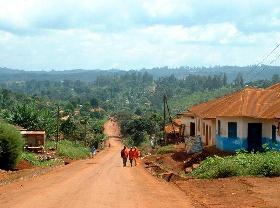
Aug 22, 2018 | Focolare Worldwide
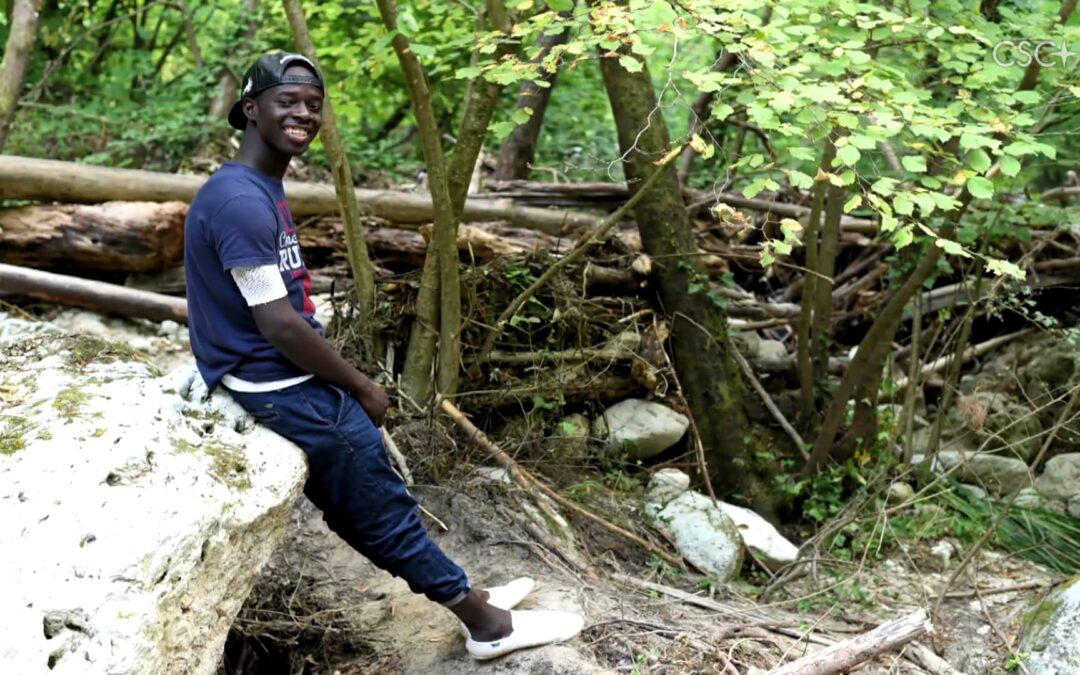
Aug 21, 2018 | Non categorizzato
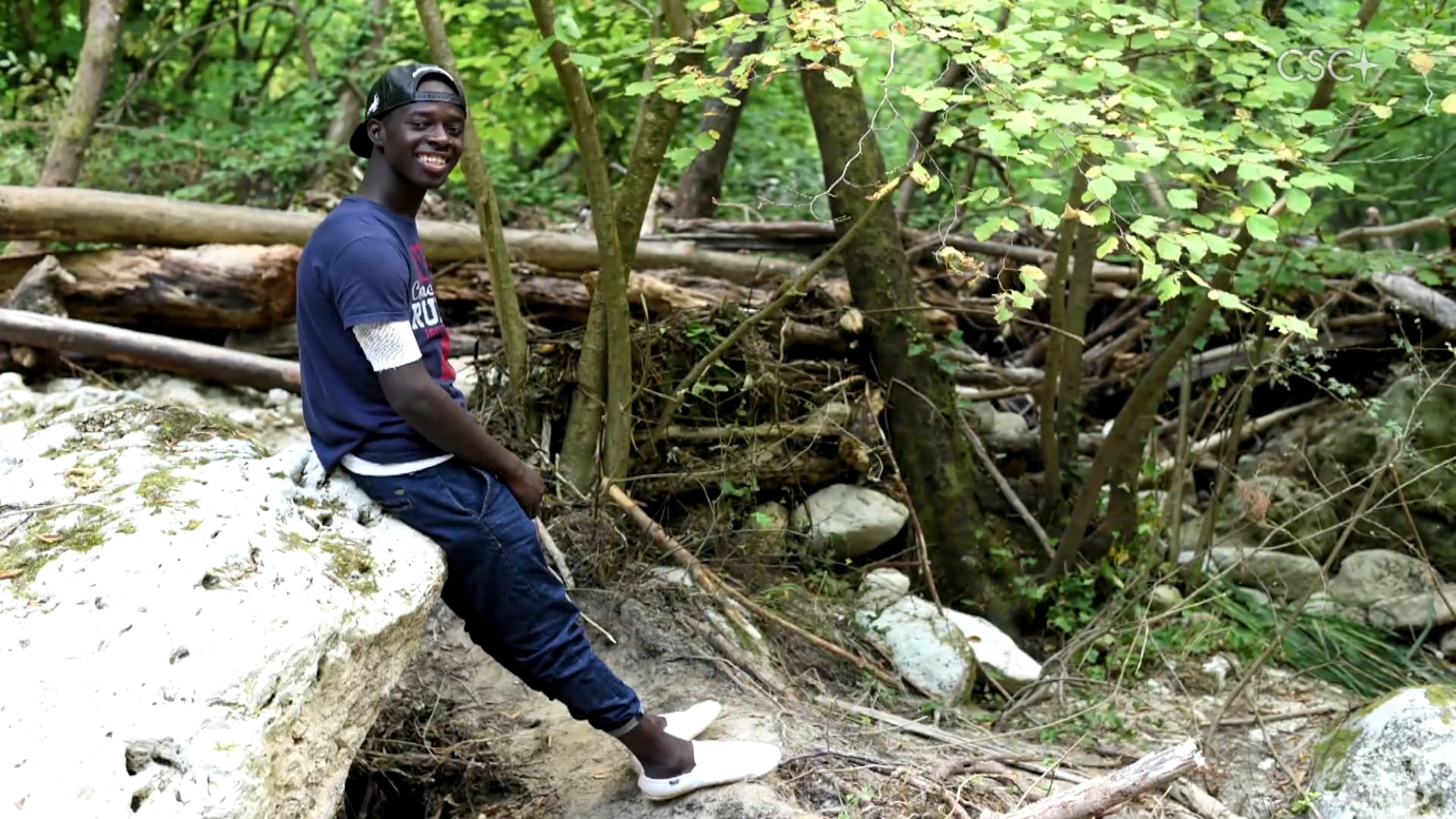 “I thought you were asking for help and stumbled into this embrace. Your large, chilly arms awaited my warmth, an exchange of a kind gesture. Like earth awaits rain, a temple breathes prayer, a smile longs for lips, baggage hopes for a trip.” “This can’t end here, it can’t be. If you have completed this journey and reached my door, I hope you live on, always. If my path ended up with you, I want you to come along for the next stretch. I want to see you grow old, hear you speak my language better and better. I want to hear you confiding with my wife as if she was your mother and laugh with my children as if they were your siblings. I want to be there when you hug your mother, she who gave birth to you, your sisters, your brother. “I beg you. Listen to me. Open your eyes. Smile. I will teach you another magic trick. Put your curdled cells in my hands: I will make them disappear like coins, like paper. In their place I will put them back, healthy. And your body will once again start to work like a delicate, unbelievable mechanism. “I don’t have important things to tell you, thoughts to remember, memorable acts. I have rejected words, concepts that were forgotten even before they were born, meaningless signs. We’re never ready for detachment, it’s never the right time, and we can’t even conceive of absence. Even though you told me how your radiant God awaits, that death is but a natural threshold to cross in order to reach the next phase of existence, and that since you never treated anyone badly you will be rewarded in the afterlife. Even if I strongly believe that dying is going back to one’s origins, as Mary taught me: a marvelous, unending losing oneself in God. “Despite all of this, I don’t want you to go. I need to talk more with you, listen to you, solve problems together. With you I need to dare, to challenge the headwind, to demand, dialogue, and aspire to heaven while living through hell, promising each other, supporting each other. “There’s no point turning back: I am not ready to see you die, to watch you as you turn the dark corner of things we see and enter into that tunnel of light that we do not know. I am not ready and am only able to take you by the hand and guide your lips and mine in prayer to our one Father. Because what is natural to the divine is murky to people. We assign different names, we build up rules. Yet in the end, what counts is love toward others. “We met by chance, through those minimal circumstances that change the direction of our lives, to breathe a bit longer, through a revolving door that opened in a moment like any other. Yet now I feel you are like a brother and, as I hope with all my strength to see you awaken, I start to say with you: ‘Our Father…’”
“I thought you were asking for help and stumbled into this embrace. Your large, chilly arms awaited my warmth, an exchange of a kind gesture. Like earth awaits rain, a temple breathes prayer, a smile longs for lips, baggage hopes for a trip.” “This can’t end here, it can’t be. If you have completed this journey and reached my door, I hope you live on, always. If my path ended up with you, I want you to come along for the next stretch. I want to see you grow old, hear you speak my language better and better. I want to hear you confiding with my wife as if she was your mother and laugh with my children as if they were your siblings. I want to be there when you hug your mother, she who gave birth to you, your sisters, your brother. “I beg you. Listen to me. Open your eyes. Smile. I will teach you another magic trick. Put your curdled cells in my hands: I will make them disappear like coins, like paper. In their place I will put them back, healthy. And your body will once again start to work like a delicate, unbelievable mechanism. “I don’t have important things to tell you, thoughts to remember, memorable acts. I have rejected words, concepts that were forgotten even before they were born, meaningless signs. We’re never ready for detachment, it’s never the right time, and we can’t even conceive of absence. Even though you told me how your radiant God awaits, that death is but a natural threshold to cross in order to reach the next phase of existence, and that since you never treated anyone badly you will be rewarded in the afterlife. Even if I strongly believe that dying is going back to one’s origins, as Mary taught me: a marvelous, unending losing oneself in God. “Despite all of this, I don’t want you to go. I need to talk more with you, listen to you, solve problems together. With you I need to dare, to challenge the headwind, to demand, dialogue, and aspire to heaven while living through hell, promising each other, supporting each other. “There’s no point turning back: I am not ready to see you die, to watch you as you turn the dark corner of things we see and enter into that tunnel of light that we do not know. I am not ready and am only able to take you by the hand and guide your lips and mine in prayer to our one Father. Because what is natural to the divine is murky to people. We assign different names, we build up rules. Yet in the end, what counts is love toward others. “We met by chance, through those minimal circumstances that change the direction of our lives, to breathe a bit longer, through a revolving door that opened in a moment like any other. Yet now I feel you are like a brother and, as I hope with all my strength to see you awaken, I start to say with you: ‘Our Father…’”
Watch the video https://vimeo.com/204141968
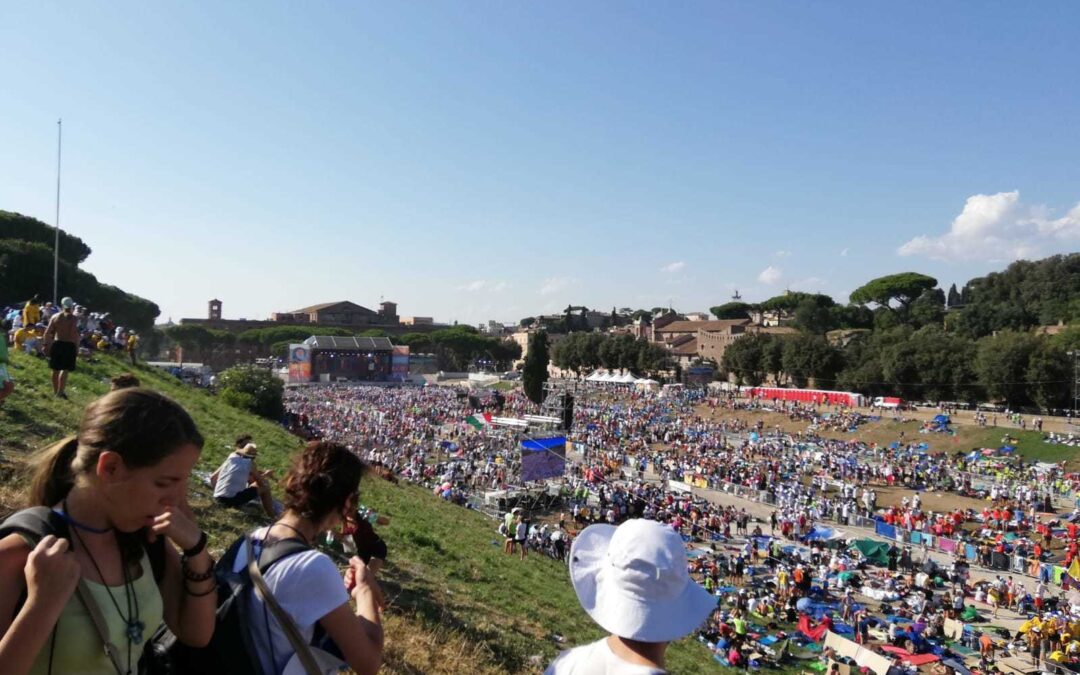
Aug 20, 2018 | Focolare Worldwide
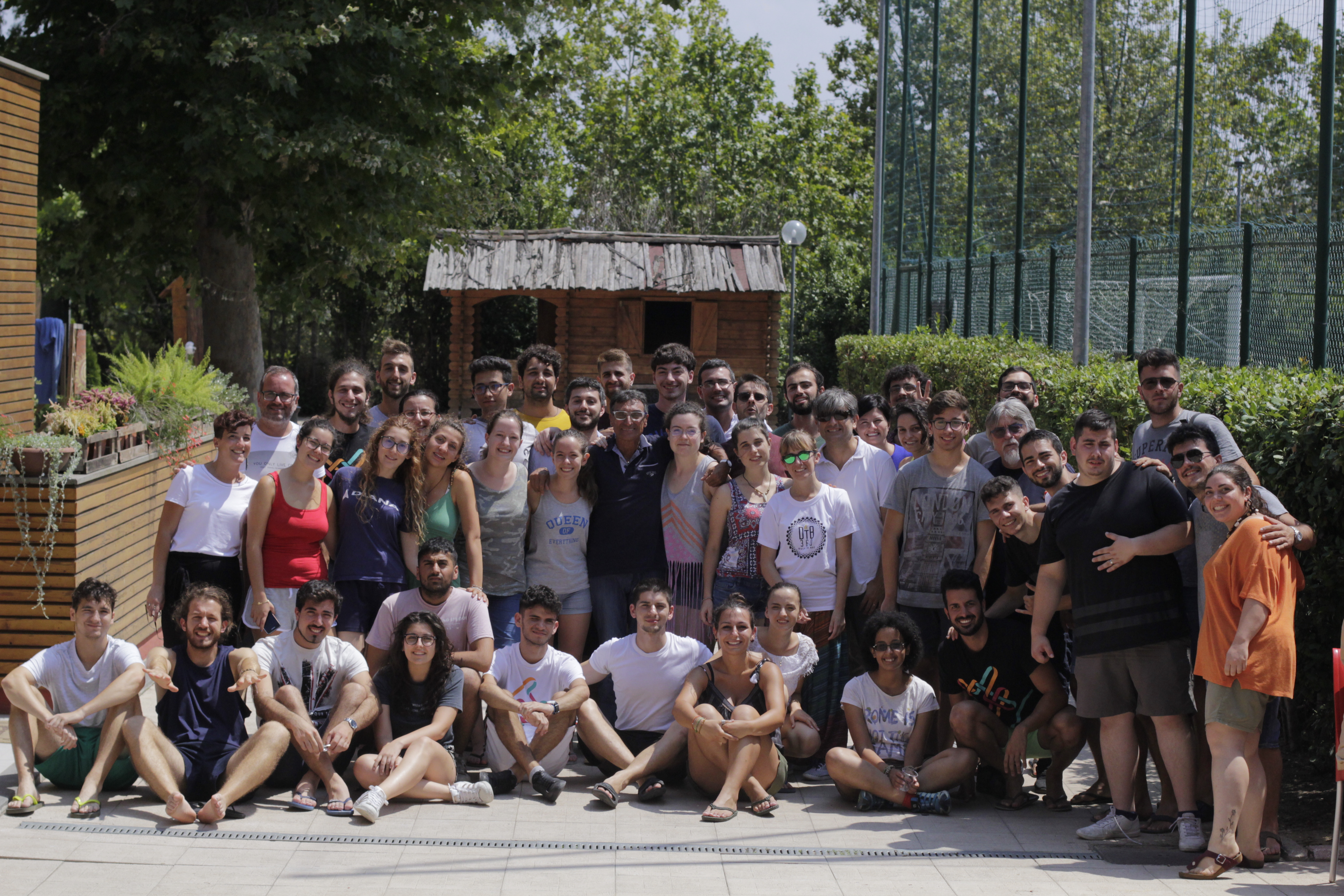 The Paper Mill, former factory at the periphery of Turin, northern Italy, thanks to a development process no longer looks like an abandoned facility. After which, it turned into a place of vitality and fresh air, thanks to the Turin Summer Campus organised by Youth for a United World, from 28 July to 6 August. A newly launched event, ideated to bring the outskirts towards the centre, and which saw an alternation of educational moments and concrete action. The strong point was the participation of the children of the zone, of different nationalities and cultures, who, with the youth of the Campus with simplicity and fun, created a recital, the outcome of the commitment and cooperation that arose during the artistic workshops (recycle-painting, music, theatre, dance, singing). A wealth of talents that upheld the cultural diversities in the neighbourhood, considered not as a motive for social discrimination, but for dialogue and exchange of ideas. Also the themes faced in the educational sessions triggered reflections which called the youths to become active citizens, opening debates on intercultural dialogue, end of life, “green” engineering. In Rome the Summer Campus 2018 was held in the spirit of fun and commitment. The activities proposed in the Corviale district – a kilometre-long building known as the “Snake” – were various types of music workshops, murals and clay activities for the kids, and discussions on current issues, with the participation of experts, to reflect on the daily news and challenges: the peripheries, “grassroots” lawfulness, acceptance of the migrants from the social and juridical standpoints, participation in political life, the uselessness of war and media manipulation, origin and cause of new conflicts.
The Paper Mill, former factory at the periphery of Turin, northern Italy, thanks to a development process no longer looks like an abandoned facility. After which, it turned into a place of vitality and fresh air, thanks to the Turin Summer Campus organised by Youth for a United World, from 28 July to 6 August. A newly launched event, ideated to bring the outskirts towards the centre, and which saw an alternation of educational moments and concrete action. The strong point was the participation of the children of the zone, of different nationalities and cultures, who, with the youth of the Campus with simplicity and fun, created a recital, the outcome of the commitment and cooperation that arose during the artistic workshops (recycle-painting, music, theatre, dance, singing). A wealth of talents that upheld the cultural diversities in the neighbourhood, considered not as a motive for social discrimination, but for dialogue and exchange of ideas. Also the themes faced in the educational sessions triggered reflections which called the youths to become active citizens, opening debates on intercultural dialogue, end of life, “green” engineering. In Rome the Summer Campus 2018 was held in the spirit of fun and commitment. The activities proposed in the Corviale district – a kilometre-long building known as the “Snake” – were various types of music workshops, murals and clay activities for the kids, and discussions on current issues, with the participation of experts, to reflect on the daily news and challenges: the peripheries, “grassroots” lawfulness, acceptance of the migrants from the social and juridical standpoints, participation in political life, the uselessness of war and media manipulation, origin and cause of new conflicts. 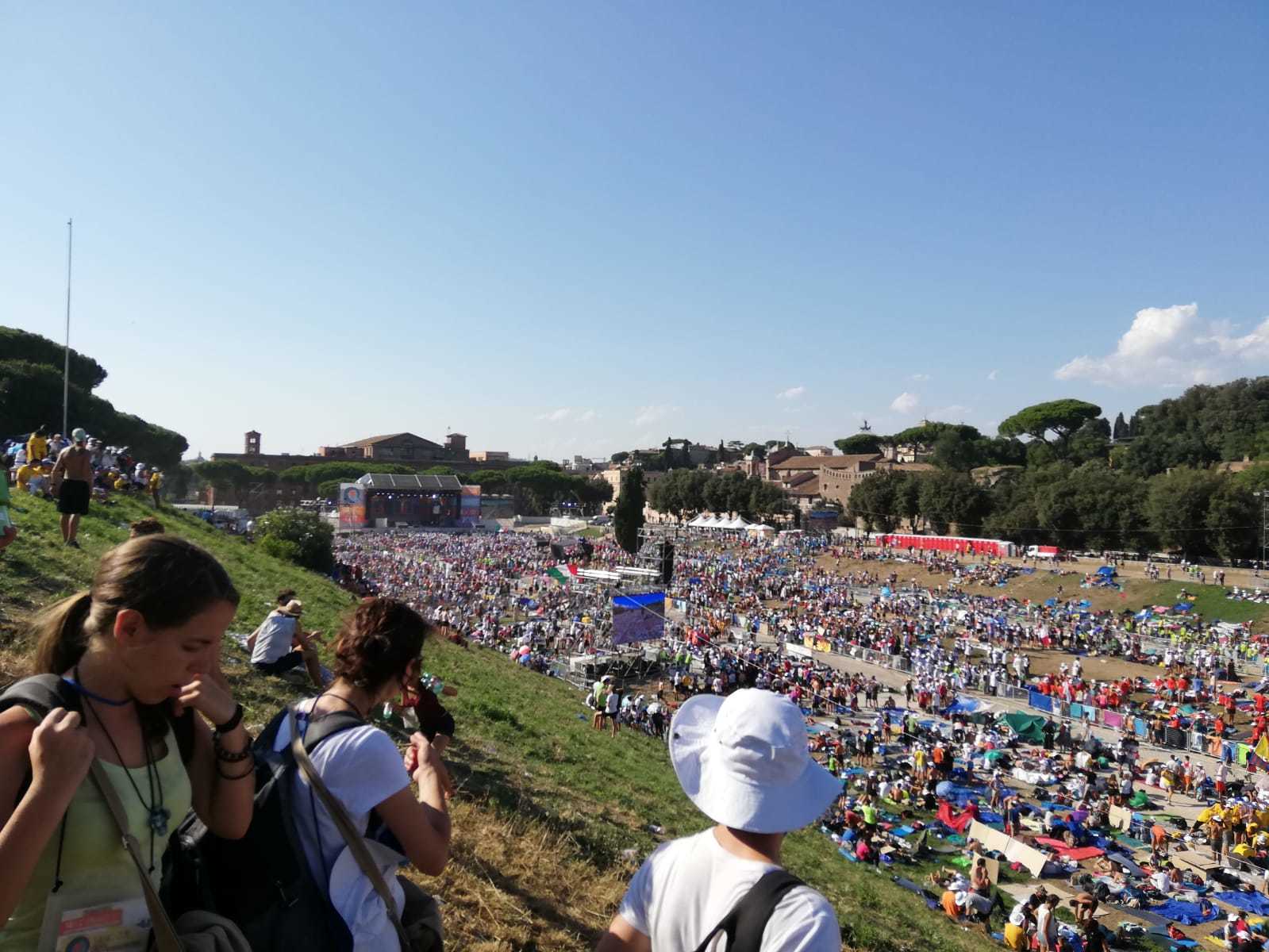 Besides the district associations, also some of the 8,000 families living in the “Snake” opened their doors and recounted their stories of suffering and hope. That which, at first glance seems to be an important building, and the end of which is invisible to the eye, seems to be a beehive of identical homes and windows, from inside is not scary: this is what the young people of the Campus felt, thanks to the encounter with people, countenances and stories which enabled all to go beyond the borders and prejudices, and above all the cement wall each carries within. The youth of the campus, children and families of Corviale worked together to prepare the final celebration in the district parish. It was an occasion to demonstrate the fruits of the workshops but also to build a chain between the realities, often diverging, of the territory and rediscover a sense of community and family. The main path of this campus which ended on 11 and 12 August, at Circo Massimo in Rome, with the meeting of the over 70,000 pilgrim youths from all over Italy, with Pope Francis, then in St. Peter’s, with the Mass and Angelus. The pope invited each one not to be “couch potato youths,” not to aspire tranquility, but take the risk of bravely pursuing their own dreams. The experiences lived in the peripheries of Turin and Rome were engines that pushed each campus participant to take the first steps along this path, challenging but necessary, to make their own dreams a reality.
Besides the district associations, also some of the 8,000 families living in the “Snake” opened their doors and recounted their stories of suffering and hope. That which, at first glance seems to be an important building, and the end of which is invisible to the eye, seems to be a beehive of identical homes and windows, from inside is not scary: this is what the young people of the Campus felt, thanks to the encounter with people, countenances and stories which enabled all to go beyond the borders and prejudices, and above all the cement wall each carries within. The youth of the campus, children and families of Corviale worked together to prepare the final celebration in the district parish. It was an occasion to demonstrate the fruits of the workshops but also to build a chain between the realities, often diverging, of the territory and rediscover a sense of community and family. The main path of this campus which ended on 11 and 12 August, at Circo Massimo in Rome, with the meeting of the over 70,000 pilgrim youths from all over Italy, with Pope Francis, then in St. Peter’s, with the Mass and Angelus. The pope invited each one not to be “couch potato youths,” not to aspire tranquility, but take the risk of bravely pursuing their own dreams. The experiences lived in the peripheries of Turin and Rome were engines that pushed each campus participant to take the first steps along this path, challenging but necessary, to make their own dreams a reality.
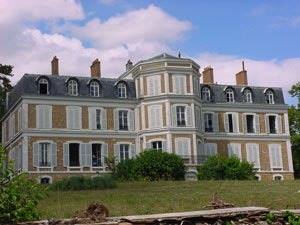
Aug 20, 2018 | Non categorizzato
 Website: http://www.focolari.fr/societe/cite-pilote/ Cité pilote d’Arny Facebook: https://www.facebook.com/citepilotedarny
Website: http://www.focolari.fr/societe/cite-pilote/ Cité pilote d’Arny Facebook: https://www.facebook.com/citepilotedarny
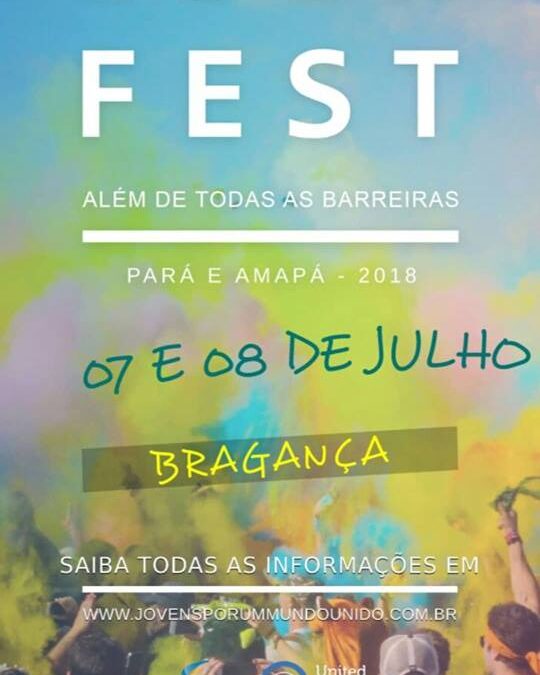
Aug 20, 2018 | Focolare Worldwide
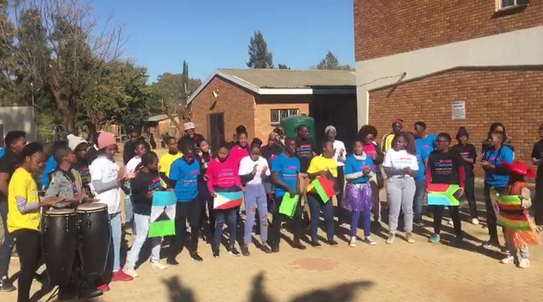 “This year we held our Youth Camp in Mafikeng, South Africa, precisely contemporaneously with the Genfest in the Philippines, with participants from Zimbabwe, Malawi, Zambia, Lesotho and South Africa. The presence of young people from various countries was in itself a visible sign of our desire to overcome the personal and cultural confines.” Mafikeng (Mafeking, up to 1980) is the capital, as well as a commercial centre of the North-west province, founded in 1885 as the British military outpost.It is currently an important stopover on the railway line from Cape City to Zimbabwe. “It was very interesting and funny to discover how our cultures differ and how we can still love one another in our diversities. I have learned many things -wrote Teddy, from Zambia –which I don’t want to keep to myself,but share with my brethren. The Youth Camp – says Nkosiphile from Zimbabwe – opened my eyes. I just can’t wait to put into practice all I have learned.”
“This year we held our Youth Camp in Mafikeng, South Africa, precisely contemporaneously with the Genfest in the Philippines, with participants from Zimbabwe, Malawi, Zambia, Lesotho and South Africa. The presence of young people from various countries was in itself a visible sign of our desire to overcome the personal and cultural confines.” Mafikeng (Mafeking, up to 1980) is the capital, as well as a commercial centre of the North-west province, founded in 1885 as the British military outpost.It is currently an important stopover on the railway line from Cape City to Zimbabwe. “It was very interesting and funny to discover how our cultures differ and how we can still love one another in our diversities. I have learned many things -wrote Teddy, from Zambia –which I don’t want to keep to myself,but share with my brethren. The Youth Camp – says Nkosiphile from Zimbabwe – opened my eyes. I just can’t wait to put into practice all I have learned.” 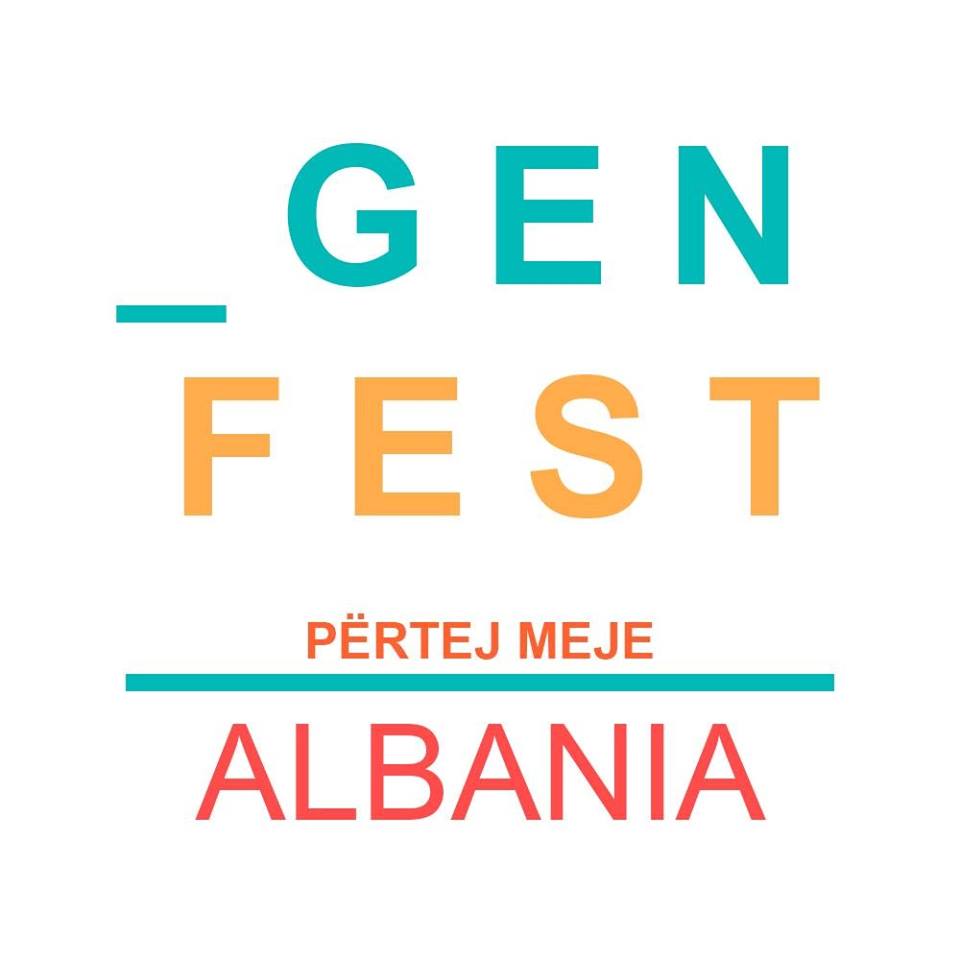 Simultaneously with the event in the Philippines, was also the one held in Albania, with about 120 participants consisting of Christians, Muslims, agnostics coming from various parts and cities of Albania, together with youths from Skopje (Macedonia) and a young girl from Stuttgart. “Like a weft, going from local to global realities, we held four workshops in the field of civil economy and culture of lawfulness, besides themes on prejudice, interpersonal relationships and the social networks, in the presence of Italian and Albanian experts. We visited the homes of disabled and homeless people, and got to meet some ecumenical and interreligious realities of the capital,
Simultaneously with the event in the Philippines, was also the one held in Albania, with about 120 participants consisting of Christians, Muslims, agnostics coming from various parts and cities of Albania, together with youths from Skopje (Macedonia) and a young girl from Stuttgart. “Like a weft, going from local to global realities, we held four workshops in the field of civil economy and culture of lawfulness, besides themes on prejudice, interpersonal relationships and the social networks, in the presence of Italian and Albanian experts. We visited the homes of disabled and homeless people, and got to meet some ecumenical and interreligious realities of the capital, 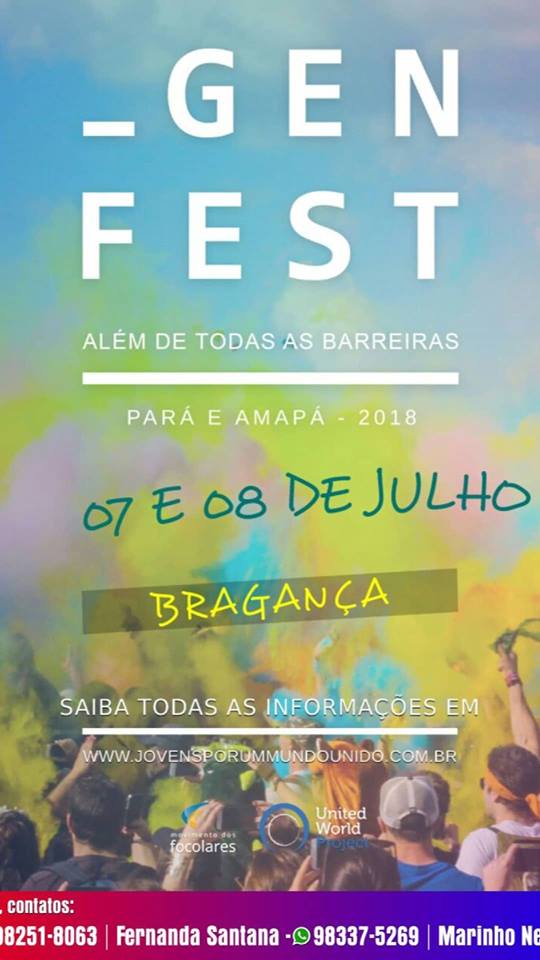 Tirana. The visits to the cathedral, accompanied by the bishop of the Orthodox Church of Albania, the Mosque and the National Centre of the evangelical Churches were followed by a “flash mob” of all the youths at Parku Rinjain the city centre. Genfest was accompanied by moments of celebrations and prayer, in a joyful atmosphere. It helped to connect the youths from the north and south of the country, and let them experience the international features of the new generations, who inherently tend to overcome all confines. A characteristic that stood out was that of working together with the Church in Albania in the preparation for the Synod of the youth, besides being an important step in reestablishing many relationships with Christians of other churches and Muslims, who now want to continue this path of dialogue.” Bragança, in the north-eastern part of Brazil, is the city where the Genfest was held for 300 young people from various cities of the State of Parà, which hosts a big section of the Amazon National Park. “For many of them – they wrote – it was the first contact with the Focolare communities. The programme consisted of some social projects in the city, like the Fazenda de la Esperança, a hospital, an ecumenical group, and other activities that helped us toenter into the real spiritof this event. So we illustrated the “Mundo Unido Project” and the proposal of Manila, “Paths of unity.” On the opposite bank of the Amazon River estuary in Macapà, there was another Genfest which gathered 140 young people. “It was a unique experience which we were able to concretise thanks to the support of all the members of the Focolare. Despite the difficulties, we believe that our objective, “beyond all borders,” has been reached.
Tirana. The visits to the cathedral, accompanied by the bishop of the Orthodox Church of Albania, the Mosque and the National Centre of the evangelical Churches were followed by a “flash mob” of all the youths at Parku Rinjain the city centre. Genfest was accompanied by moments of celebrations and prayer, in a joyful atmosphere. It helped to connect the youths from the north and south of the country, and let them experience the international features of the new generations, who inherently tend to overcome all confines. A characteristic that stood out was that of working together with the Church in Albania in the preparation for the Synod of the youth, besides being an important step in reestablishing many relationships with Christians of other churches and Muslims, who now want to continue this path of dialogue.” Bragança, in the north-eastern part of Brazil, is the city where the Genfest was held for 300 young people from various cities of the State of Parà, which hosts a big section of the Amazon National Park. “For many of them – they wrote – it was the first contact with the Focolare communities. The programme consisted of some social projects in the city, like the Fazenda de la Esperança, a hospital, an ecumenical group, and other activities that helped us toenter into the real spiritof this event. So we illustrated the “Mundo Unido Project” and the proposal of Manila, “Paths of unity.” On the opposite bank of the Amazon River estuary in Macapà, there was another Genfest which gathered 140 young people. “It was a unique experience which we were able to concretise thanks to the support of all the members of the Focolare. Despite the difficulties, we believe that our objective, “beyond all borders,” has been reached.
Aug 18, 2018 | Non categorizzato
The world renowned Italian tenor, active in various charitable commitments, will take centre stage in the “Festival of Families” in Croke Park Stadium (Dublin). The musical event will be held at the end of the World Meeting of Families with Pope Francis, from 21 to 26 August, on the theme “The Gospel of the family: joy for the world.” Andrea Bocelli who had said that “singing before the Pope is a privilege for the soul, also said: “It is a joy to be able to offer my modest contribution on the occasion of this grand meeting and moment of reflection on the family. The family remains the strongest building block of society, a cluster of affection and privileged space in which one can teach and learn – in every action – how to choose a life that leads to the greater good.”
Aug 18, 2018 | Non categorizzato
In 1994, in conjunction with the International Year dedicated by the United Nations to the Family, John Paul II announced the “World Meeting of Families”, which took place in Rome 8-9 October of the same year. Since then, the event has been repeated every three years. The past editions were held in Rio de Janeiro (Brazil) in 1997, in Rome in 2000 (during the Jubilee Year), in Manila (Philippines) in 2003, in Valencia (Spain) in 2006, in Mexico City in 2009, at Milan (Italy) in 2012 and finally in Philadelphia (USA) in 2015. A few days before ninth edition, which will take place in Dublin (Ireland) on August 25-26 2018, with the title “The Gospel of the family: joy for the world”, thousands of families from 196 countries of the world are preparing for the meeting with Pope Francis. Half a million people are expected to attend the Mass. Promoted by the new Dicastery for the Laity, the Family and Life, the event will be preceded by a three-day pastoral conference attended by 37,000 families.
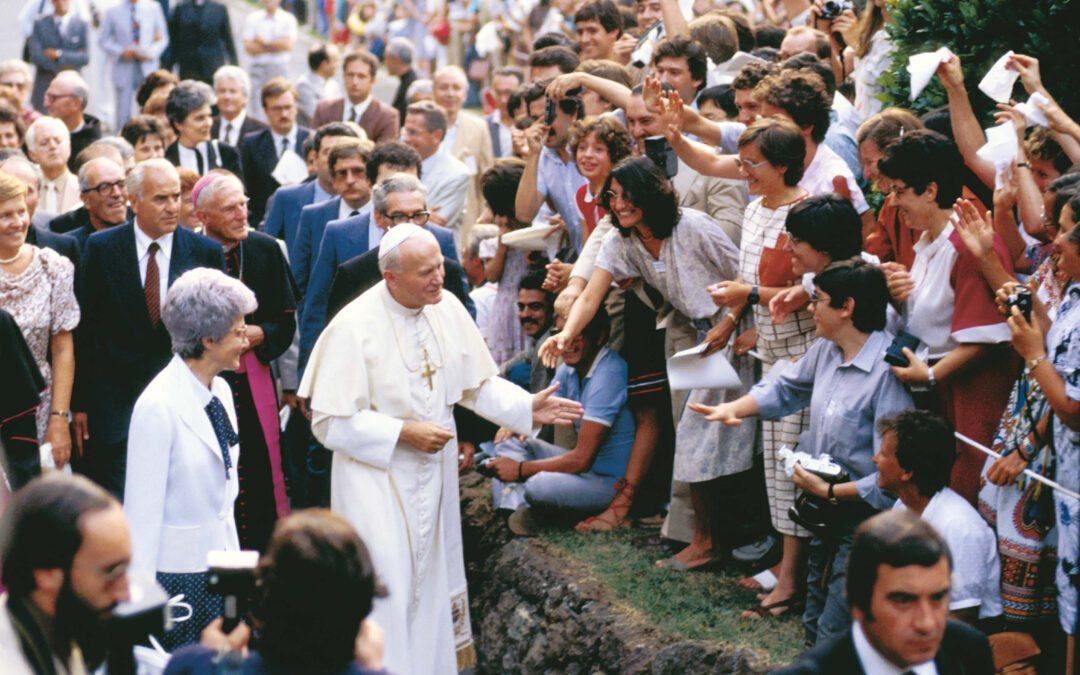
Aug 17, 2018 | Non categorizzato
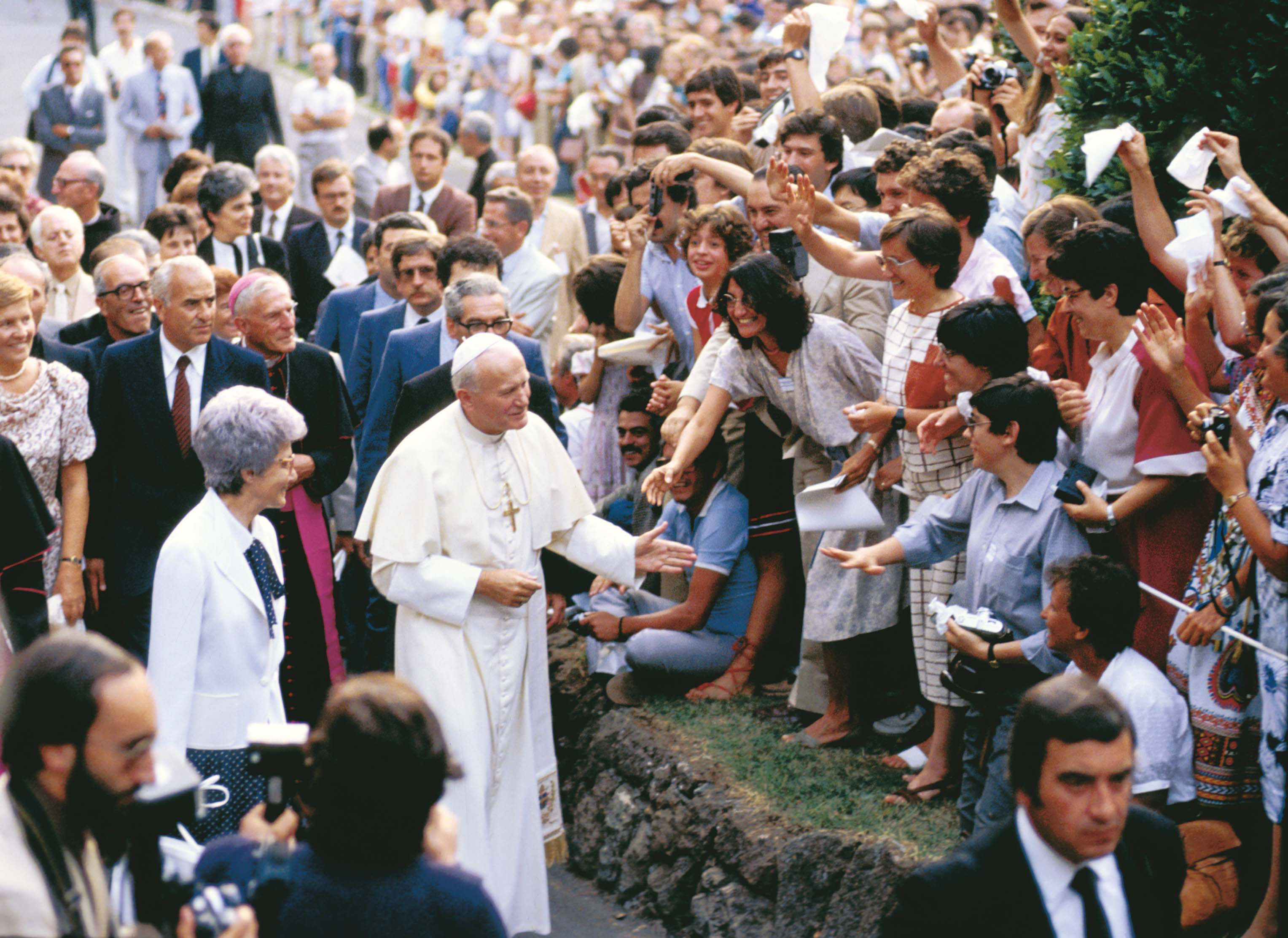
Photo © CSC Audiovisivi
Aug 17, 2018 | Non categorizzato
The celebration of the World Humanitarian Day, chosen by the UN Assembly in 2009 on the anniversary of the air raid of 19 August 2003, at the seat of the United Nations in Baghdad, is an occasion to pay tribute to the humanitarian operators who daily risk their lives worldwide to deliver their services in difficult and dangerous conditions. According to international law, this service is based on a series of principles, such as humaneness, impartiality, neutrality and independence. The operators are guaranteed access to countries affected by humanitarian crises, conflicts or climate disasters, to furnish immediate assistance, which for many, makes the difference between life and death, and through time a psycho-social support to rebuild the communities and maintain a durable and sustainable peace in the areas of conflict.
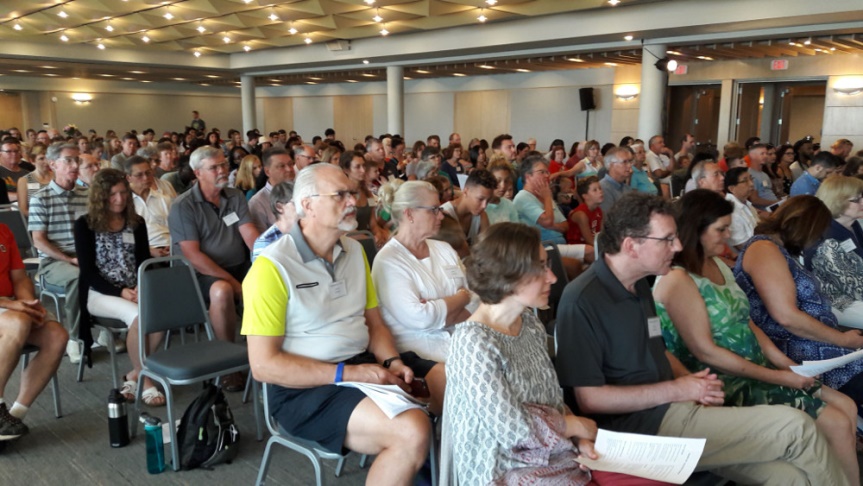
Aug 16, 2018 | Non categorizzato
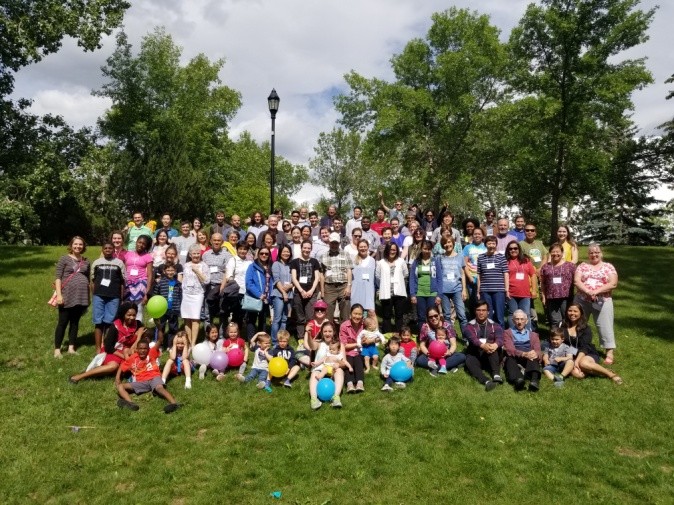 “Our Mariapolis in Calgary,” wrote Alizza and Norio from Canada, “was attended by about 120 people, particularly young people and families, mostly from the provinces of Alberta, Saskatchewan, but also from Manitoba and the British Columbia. The program included the presentation of Pope Francis’s Apostolic Exhortation on the call to sainthood today (“Gaudete et exsultate”), followed by an open dialogue. The presentation, prepared by Rev. A. Martens of the diocese of Calgary, aroused in all the desire to read it personally. Another novelty in the “city founded on faith,” as a participant defined, was the prayer for peace soiree. The community of Chicago wrote: “We are at the conclusion of our Mariapolis which was held for the entire Midwest community. Already last year, we had felt the need to change the location and style of our traditional event, which has been held up to now always in a university campus in the city. The choice fell on the pleasant banks of a lake.
“Our Mariapolis in Calgary,” wrote Alizza and Norio from Canada, “was attended by about 120 people, particularly young people and families, mostly from the provinces of Alberta, Saskatchewan, but also from Manitoba and the British Columbia. The program included the presentation of Pope Francis’s Apostolic Exhortation on the call to sainthood today (“Gaudete et exsultate”), followed by an open dialogue. The presentation, prepared by Rev. A. Martens of the diocese of Calgary, aroused in all the desire to read it personally. Another novelty in the “city founded on faith,” as a participant defined, was the prayer for peace soiree. The community of Chicago wrote: “We are at the conclusion of our Mariapolis which was held for the entire Midwest community. Already last year, we had felt the need to change the location and style of our traditional event, which has been held up to now always in a university campus in the city. The choice fell on the pleasant banks of a lake. 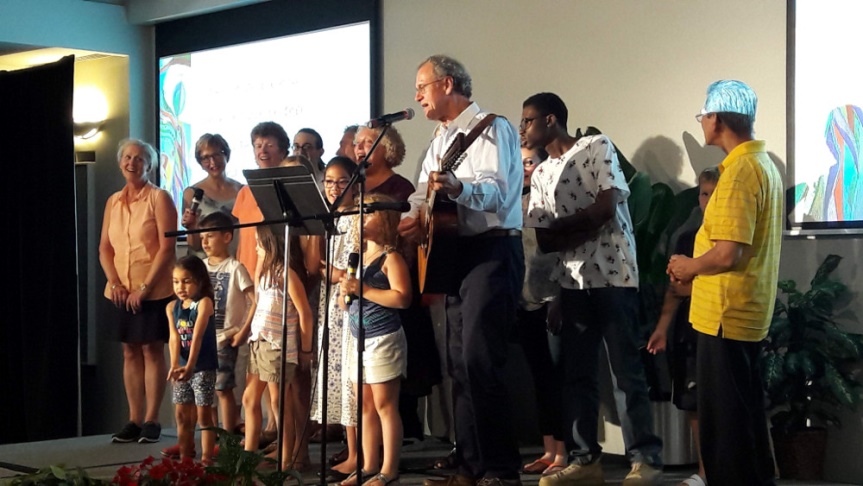 The program entitled: “Mary: her experience, our experience,” reminded us that no one is immune to the trials and uncertainties which Mary of Nazareth had undergone, and showed us how to face them. The results?“The atmosphere of the Mariapolis seemed like that of a family luncheon: relaxed, with a lot of flexibility, improvisation (which also meant having a good sense of humour) and an overall sense of peace.” “The themes focused on and the sharing of experiences helped me to understand Mary more deeply, in the difficult times in which she lived and the way in which she managed to overcome the trials. I liked the group which shared about ’knowing how to lose’. This type of mentality is not popular in today’s world.”
The program entitled: “Mary: her experience, our experience,” reminded us that no one is immune to the trials and uncertainties which Mary of Nazareth had undergone, and showed us how to face them. The results?“The atmosphere of the Mariapolis seemed like that of a family luncheon: relaxed, with a lot of flexibility, improvisation (which also meant having a good sense of humour) and an overall sense of peace.” “The themes focused on and the sharing of experiences helped me to understand Mary more deeply, in the difficult times in which she lived and the way in which she managed to overcome the trials. I liked the group which shared about ’knowing how to lose’. This type of mentality is not popular in today’s world.”  “Our Mariapolis was held in West Virginia, wrote the Focolare community of Washington DC, with 160 participants. The youth, who made up more than half of the participants,from being guests turned into protagonists and placed their numberless talents in the technical field at the service of the reception and management of the groups.” In Tennessee, USA, around 70 participants were from various southeastern States: Maryland, Georgia, Tennessee, Arkansas, Alabama, Florida, and Texas, besides those from Indiana and New York. “We dedicated much time to building relationships, and even watched some soccer world championship matches… The presence of the little ones was a gift, and they were always among the first one to recount their concrete acts of love. We delved deeper into Mary’s ‘yes’, and her “bring Jesus to the world.”During the final closing program, a boy who was accommodated in the same centre wanted to give his share of experiences. A Father said: “I was struck by the love of my son, who is 7. While I was busy preparing the final program, he went to fetch dinner for me.”And a child: “Why don’t we stay for a whole month?” From Bulgaria, a letter full of photos arrived: “It is the second time we are holding the Mariapolis in the central Balkan region, with about 80 people from 1 to 85 years of age. Before it started in the next-door Orthodox Monastery, there was a feast dedicated to Our Lady. Upon meeting us there, the Abbot insisted on meeting all the Mariapolis attendants on the next Sunday. We were a sole family: Catholics, Orthodox and Protestants (Baptists).” In Bolivia the Mariapolis, characterized by the numerous presence of young people, concluded with the young people’s Genfest. “The great mutual love between adults and the youth enabled the success of the two events. In the Mariapolis we held workshops on ecology, the economy of communion, dialogue and even choreographed dances and games for the last day’s Genfest, a great occasion to go well beyond our limits as the title of the event said, and to speak of God to many young people!”
“Our Mariapolis was held in West Virginia, wrote the Focolare community of Washington DC, with 160 participants. The youth, who made up more than half of the participants,from being guests turned into protagonists and placed their numberless talents in the technical field at the service of the reception and management of the groups.” In Tennessee, USA, around 70 participants were from various southeastern States: Maryland, Georgia, Tennessee, Arkansas, Alabama, Florida, and Texas, besides those from Indiana and New York. “We dedicated much time to building relationships, and even watched some soccer world championship matches… The presence of the little ones was a gift, and they were always among the first one to recount their concrete acts of love. We delved deeper into Mary’s ‘yes’, and her “bring Jesus to the world.”During the final closing program, a boy who was accommodated in the same centre wanted to give his share of experiences. A Father said: “I was struck by the love of my son, who is 7. While I was busy preparing the final program, he went to fetch dinner for me.”And a child: “Why don’t we stay for a whole month?” From Bulgaria, a letter full of photos arrived: “It is the second time we are holding the Mariapolis in the central Balkan region, with about 80 people from 1 to 85 years of age. Before it started in the next-door Orthodox Monastery, there was a feast dedicated to Our Lady. Upon meeting us there, the Abbot insisted on meeting all the Mariapolis attendants on the next Sunday. We were a sole family: Catholics, Orthodox and Protestants (Baptists).” In Bolivia the Mariapolis, characterized by the numerous presence of young people, concluded with the young people’s Genfest. “The great mutual love between adults and the youth enabled the success of the two events. In the Mariapolis we held workshops on ecology, the economy of communion, dialogue and even choreographed dances and games for the last day’s Genfest, a great occasion to go well beyond our limits as the title of the event said, and to speak of God to many young people!”
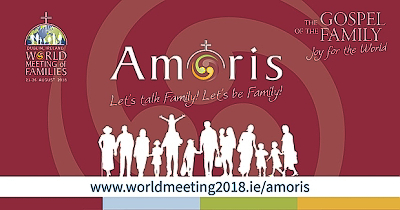
Aug 15, 2018 | Focolare Worldwide
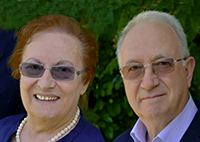 They attended all the World Meetings of Families, since the one held in Rome in1994. And at this year’s gathering in Dublin, they will share their testimony at the Pastoral Congress. They are Anna and Alberto Friso, once responsible for New Families, a branch of the Focolare Movement. They speak to Vatican news about the challenges faced by Christian families in today’s world, and of their expectations for the Meeting in Dublin which will have as its main theme Pope Francis’s apostolic exhortation Amoris laetitia (The Joy of Love). You paricipated as a family in all the World Meetings – a full quarter of a century! What has changed over the past 25 years for Christian families, in your opinion? Anna: The accent put on the new generations, the fact of no longer believing in “forever.” The challenge we must embrace is to get young people to perceive that love is an essential component of life and that it is a wellspring of happiness that married people bring. Turning to marriage doesn’t mean losing your freedom, but obtaining the possibility of a happy life! Alberto: Two things in particular characterize today’s society: individualism and relativism. There seems to be a lack of coesion in front of these two tendencies, the unity of the couple. This has meant that we Christians, we Christian families have to look deeper into God’s plan to see in what way He has called us to live in his image and likeness. As a family that has given such a long witness of Christian living, what would you feel like saying to a young couple that is stepping into marriage concerning eternal love? Alberto: What we feel like saying is: Keep in mind that the love between you that you felt in the first moments you felt these sentiments growing, is of extraordinary importance – eternal! It’s a spark of the deep value that will lie at the basis of your life, for the rest of your life, even when the storms come, and, it’s God’s love. Therefore, it’s not the two of you that get married, but the three of you, because Jesus will be with you! And, thank God, this means answers. The young people themselves become testimonies of this! Anna: The challenge is to not allow yourself be challenged by the dominating culture that focuses on feelings, personal rights that prevail over the other’s rights, or even over the value of the couple itself. God’s plan for marriage has this seal of happiness that it is possible bring to fulfillment precisely because it’s a very part of the person’s destiny, part of the DNA of every human being!
They attended all the World Meetings of Families, since the one held in Rome in1994. And at this year’s gathering in Dublin, they will share their testimony at the Pastoral Congress. They are Anna and Alberto Friso, once responsible for New Families, a branch of the Focolare Movement. They speak to Vatican news about the challenges faced by Christian families in today’s world, and of their expectations for the Meeting in Dublin which will have as its main theme Pope Francis’s apostolic exhortation Amoris laetitia (The Joy of Love). You paricipated as a family in all the World Meetings – a full quarter of a century! What has changed over the past 25 years for Christian families, in your opinion? Anna: The accent put on the new generations, the fact of no longer believing in “forever.” The challenge we must embrace is to get young people to perceive that love is an essential component of life and that it is a wellspring of happiness that married people bring. Turning to marriage doesn’t mean losing your freedom, but obtaining the possibility of a happy life! Alberto: Two things in particular characterize today’s society: individualism and relativism. There seems to be a lack of coesion in front of these two tendencies, the unity of the couple. This has meant that we Christians, we Christian families have to look deeper into God’s plan to see in what way He has called us to live in his image and likeness. As a family that has given such a long witness of Christian living, what would you feel like saying to a young couple that is stepping into marriage concerning eternal love? Alberto: What we feel like saying is: Keep in mind that the love between you that you felt in the first moments you felt these sentiments growing, is of extraordinary importance – eternal! It’s a spark of the deep value that will lie at the basis of your life, for the rest of your life, even when the storms come, and, it’s God’s love. Therefore, it’s not the two of you that get married, but the three of you, because Jesus will be with you! And, thank God, this means answers. The young people themselves become testimonies of this! Anna: The challenge is to not allow yourself be challenged by the dominating culture that focuses on feelings, personal rights that prevail over the other’s rights, or even over the value of the couple itself. God’s plan for marriage has this seal of happiness that it is possible bring to fulfillment precisely because it’s a very part of the person’s destiny, part of the DNA of every human being!  In Dublin, The Joy of Love will obviously play an important role. What is this post-synodal exhortation giving to Christian families, and not only Christian? Alberto: Most particularly, it urges us to give witness to Christianity especially through the way we live, the way we give witness to God’s love. When it comes to the world, it’s not so much that we have to defend a ideas, ways of thinking, or a particular value; we have to give witness to the fact that God is Love and that love lies in the depths of the human heart, even hearts that are going through the darkest crises. Anna: We’ve experienced this so so much, precisely because of its luminosity and also its concreteness that doesn’t come to terms with the doctrine, but is able to comprehend and give a hand to those who have been wounded by life. And to these people, most especially, it is able to offer the hope of finding a way to happiness even in the midst of problems. Its beauty lies in its being a hymn to love. Inside this document we can see all of the Church’s tenderness. I believe that it is really a gift for new generations of newlyweds. Source: Vatican News, August 10, 2018
In Dublin, The Joy of Love will obviously play an important role. What is this post-synodal exhortation giving to Christian families, and not only Christian? Alberto: Most particularly, it urges us to give witness to Christianity especially through the way we live, the way we give witness to God’s love. When it comes to the world, it’s not so much that we have to defend a ideas, ways of thinking, or a particular value; we have to give witness to the fact that God is Love and that love lies in the depths of the human heart, even hearts that are going through the darkest crises. Anna: We’ve experienced this so so much, precisely because of its luminosity and also its concreteness that doesn’t come to terms with the doctrine, but is able to comprehend and give a hand to those who have been wounded by life. And to these people, most especially, it is able to offer the hope of finding a way to happiness even in the midst of problems. Its beauty lies in its being a hymn to love. Inside this document we can see all of the Church’s tenderness. I believe that it is really a gift for new generations of newlyweds. Source: Vatican News, August 10, 2018
Aug 14, 2018 | Non categorizzato
«Mary is not easily understood even though she is greatly loved. In a heart that is far from God, one is more likely to find devotion to her than to Jesus. She is universally loved. And the reason is this: it is Mary’s nature to be Mother. Mothers, in general, are not “understood,” especially by younger children; they are “loved.” And not infrequently, indeed often, one hears that an eighty-year-old man dies saying as his last word: “mother.” A mother is more the object of the heart’s intuition than of the mind’s speculation. She is more poetry than philosophy, because she is too real and profound, close to the human heart. So it is with Mary, the Mother of mothers, who the sum of all the affection, goodness, and mercy of all the mothers in the world cannot manage to equal. Jesus, in a certain sense, confronts us more: his divine and splendid works are too different from ours to be confused with them. Indeed they are a sign of contradiction. Mary is peaceful like nature, pure, serene, clear, temperate, beautiful — that nature which is distant from the world, in the mountains, in the open countryside, by the sea, in the blue sky or the starry heavens. She is strong, vigorous, harmonious, consistent, unyielding, rich in hope, for in nature it is life that springs up perennially generous, adorned with the fragrant beauty of flowers, kind in the abundance of its fruits. Mary is too simple and too close to us to be “contemplated.” She is “sung” by hearts that are pure and in love, who express like this what is best in them. She brings the divine to earth as gently as a heavenly plane sloping from the dizzy heights of heaven to the infinite smallness of creatures. She is the Mother of all and of each human being, who alone knows how to burble and smile at her child in such a way that, even though it is small, each knows how to enjoy her caress and respond with its love to that love. Mary is not understood because she is too close to us. She, who was destined from eternity to bring graces, the divine jewels of her Son, to humanity, is there, near to us, and waits, always hoping for us to notice her gaze and accept her gifts. If any are fortunate enough to understand her, she carries them off to her kingdom of peace, where Jesus is King, and the Holy Spirit is the life-breath of that heaven. There, purified of our dross and illuminated in our darkness, we will contemplate her and enjoy her, an added paradise, a paradise apart. Here, let us be found worthy of being called along “her way” to avoid staying always immature in spirit, with a love that does not go beyond supplication, petition, request and self-interest, but knowing her a little, may we glorify her.» Source: Centro Chiara Lubich
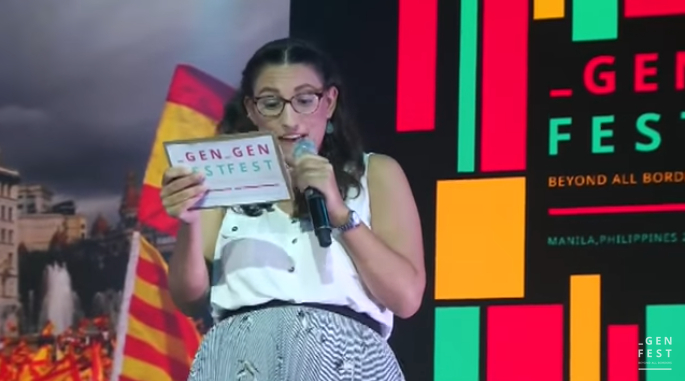
Aug 13, 2018 | Focolare Worldwide
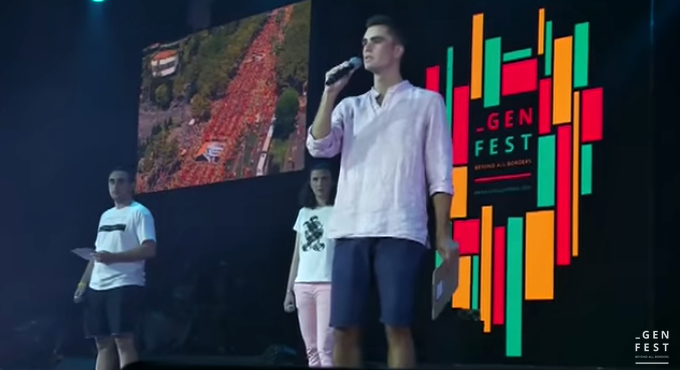 The referendum for independence held in Catalonia (Spain) on 1 October 2017, declared as illegal, gave rise to a season of strong political and social unrest and civil tension which directly involved all the sectors of the population, above all, the youth. Martì is Catalonian and comes from a city near Barcelona, but moved to Madrid for his studies. As a Gen, he shares the Focolare ideals of unity with other young people of various regions of Spain and recounted that “despite this common value, also with them in the first three months in Madrid, it had not been easy. Furthermore in the residence where I live I was maltreated because I was the only Catalonian. I held many discussions with the Gen and we continuously ended up getting angry. But one day, we decided to resolve this situation by talking among ourselves and really listening to one another. We began to see that this was the most important thing we had to do: go beyond our ideas and not foregoing dialogue amongst us, since the most important thing was to understand and respect one another. I can’t say that from then on the path was simpler, but we understood that problems are solved when we set ourselves in the condition of really listening, and not wanting to impose ourselves, the.
The referendum for independence held in Catalonia (Spain) on 1 October 2017, declared as illegal, gave rise to a season of strong political and social unrest and civil tension which directly involved all the sectors of the population, above all, the youth. Martì is Catalonian and comes from a city near Barcelona, but moved to Madrid for his studies. As a Gen, he shares the Focolare ideals of unity with other young people of various regions of Spain and recounted that “despite this common value, also with them in the first three months in Madrid, it had not been easy. Furthermore in the residence where I live I was maltreated because I was the only Catalonian. I held many discussions with the Gen and we continuously ended up getting angry. But one day, we decided to resolve this situation by talking among ourselves and really listening to one another. We began to see that this was the most important thing we had to do: go beyond our ideas and not foregoing dialogue amongst us, since the most important thing was to understand and respect one another. I can’t say that from then on the path was simpler, but we understood that problems are solved when we set ourselves in the condition of really listening, and not wanting to impose ourselves, the. 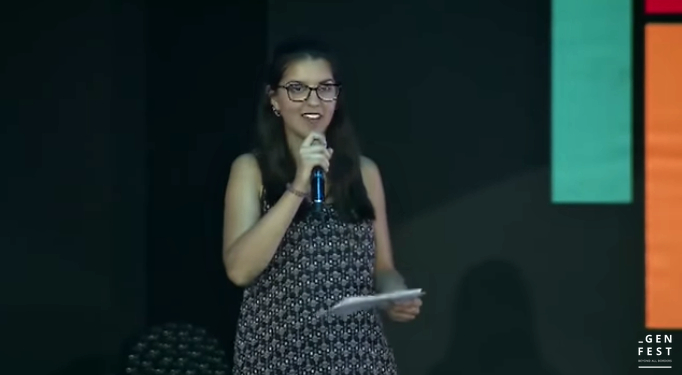 Alba is also Catalonian and recounted that the post-referendum period was a real test for her and for the other gen: on the social media some Gen had written their strong convictions about the political ideas of one or the other party, which hurt me deeply, but I didn’t stop to think whether my way of expressing myself could hurt those who do share my ideas. It was in those days that I started reflecting on what it meant for us, who often say that we are even ready to die for each other. When would we have to put this promise in practice? I felt that the time was now.
Alba is also Catalonian and recounted that the post-referendum period was a real test for her and for the other gen: on the social media some Gen had written their strong convictions about the political ideas of one or the other party, which hurt me deeply, but I didn’t stop to think whether my way of expressing myself could hurt those who do share my ideas. It was in those days that I started reflecting on what it meant for us, who often say that we are even ready to die for each other. When would we have to put this promise in practice? I felt that the time was now.  So we met up with all the gen from all of Spain to clarify things even if it was not easy since we were a big group and it was impossible to say all we felt. We continued to speak with some of them, like Laura. I remember that with her the situation was delicate because I did not know how we could face the problem without hurting each other. When she proposed to make a pact, that is, of putting love before everything else, I was taken off my feet! No one had ever proposed a similar thing to me but it worked because from that moment on we managed to dialogue. The objective was not to defend our ideas, but to take care of one another, and at the same time, leave room for free expression. This experience made me see the political situation differently, and understand that what matters is not to be on the reasonable side, but that beyond the ideas there is always the person and this is more important. Still today our opinions have not changed: we think differently and this is not easy. At times we have to ask excuse, but in talking, we reach the conclusion that both the positive and negative things are part of experience. The misunderstanding now has been transformed into something greater: it is not resignation, or only respect. It is that rose which is worth more than all the thorns put together.”
So we met up with all the gen from all of Spain to clarify things even if it was not easy since we were a big group and it was impossible to say all we felt. We continued to speak with some of them, like Laura. I remember that with her the situation was delicate because I did not know how we could face the problem without hurting each other. When she proposed to make a pact, that is, of putting love before everything else, I was taken off my feet! No one had ever proposed a similar thing to me but it worked because from that moment on we managed to dialogue. The objective was not to defend our ideas, but to take care of one another, and at the same time, leave room for free expression. This experience made me see the political situation differently, and understand that what matters is not to be on the reasonable side, but that beyond the ideas there is always the person and this is more important. Still today our opinions have not changed: we think differently and this is not easy. At times we have to ask excuse, but in talking, we reach the conclusion that both the positive and negative things are part of experience. The misunderstanding now has been transformed into something greater: it is not resignation, or only respect. It is that rose which is worth more than all the thorns put together.”
https://youtu.be/YwMdvyhDJeA?t=1428
Aug 12, 2018 | Focolare Worldwide
Aug 10, 2018 | Non categorizzato
“Mary Most Holy is the Seat of Wisdom because she welcomed Jesus into her womb and he is the Incarnate Wisdom. With her fiat at the Annunciation, Mary consented to the divine will and Wisdom made its dwelling in her womb, making her Wisdom’s most exemplary disciples. The Virgin was blessed, not so much for having suckled the Son of God, but for having nourished herself on the wholesome milk of God’s Word.” (Pope Saint John Paul II, Angelus, September 4, 1983) In order properly to understand this sacred hymn of praise, we need to bear in mind that the Blessed Virgin Mary is speaking on the basis of her own experience, in which she was enlightened and instructed by the Holy Spirit. No one can correctly understand God or his word, unless he has received such understanding immediately from the Holy Spirit. But no one can receive it from the Holy Spirit without experiencing, proving and feeling it. In such experience the Holy Spirit instructs us as in his own school, outside of which nothing is learned except empty words and prattle. When the Holy Virgin experienced what great things God was working in her despite her insignificance, lowliness, poverty, inferiority, the Holy Spirit taught her this deep insight and wisdom, that God is kind of Lord who does nothing but exalt those of low degree and put down the mighty from their thrones…” (Martin Luther, Commentary on the Magnificat of Mary, Introduction). “The Madonna is Seat of Wisdom not because she had spoken, not because she was a Doctor of the Church, not because she was seated on the cathedra, not because she founded a university: she’s Seat of Wisdom because she gave Christ to the world, who is the Incarnate Wisdom. She accomplished a fact. The same for us: we’ll have wisdom if we live in such a way that Jesus will be in us, among us, in fact.” (Chiara Lubich, Una via nuova, Citta Nuova, 2002) “Mary doesn’t live of herself only, but from far more profound depths: the Holy Spirit in her. From him emanates not only her Son, the content and fruit of her being; from him emanates the fulfillment and the form of his very life.” (Klaus Hemmerle, Brücken zum credo)
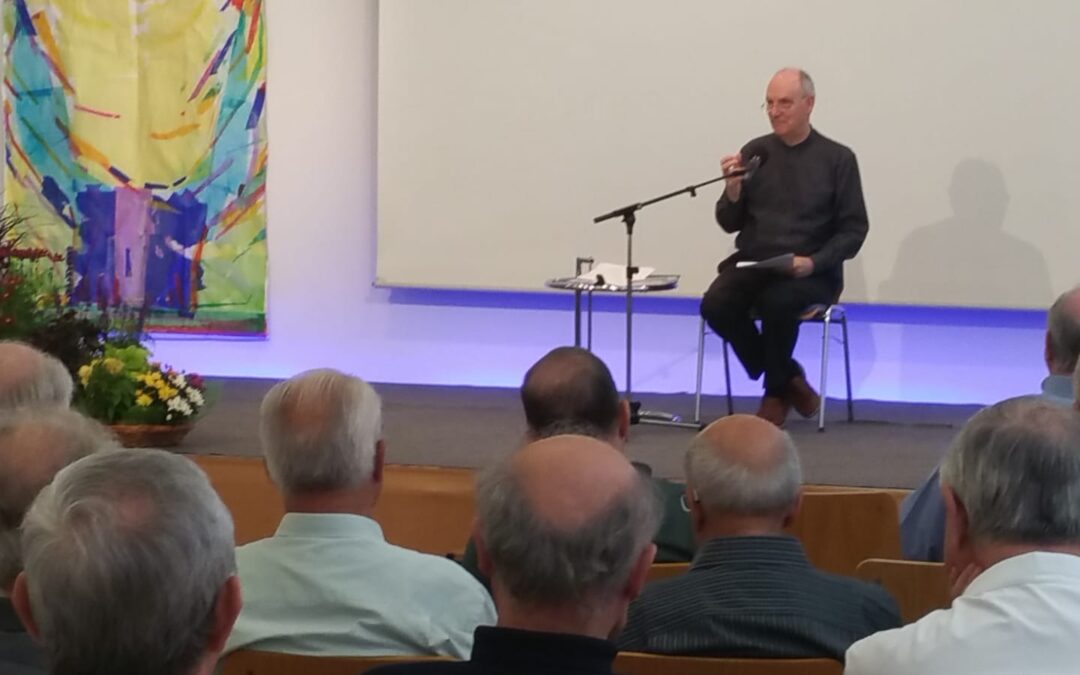
Aug 9, 2018 | Focolare Worldwide
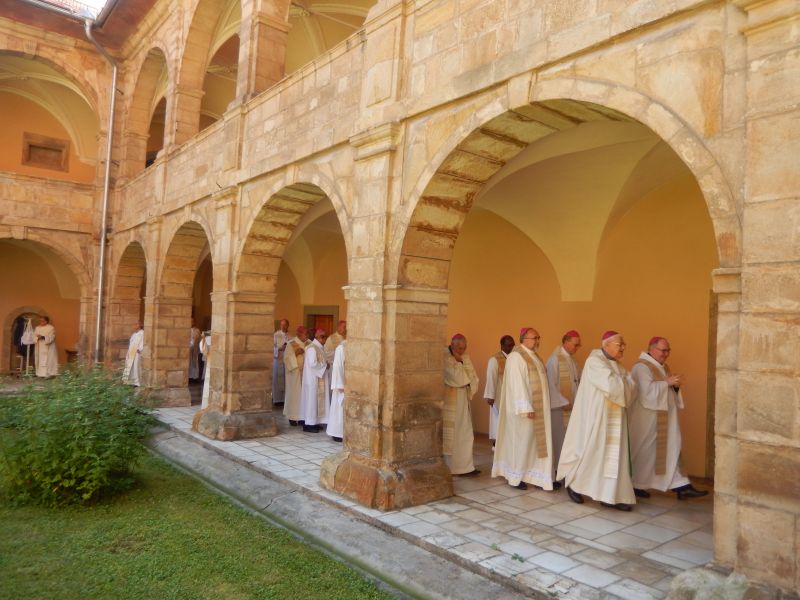 “We were invited to this enchanting place, the “green heart” of Austria, by Bishop Wilhelm Krautwaschl, current bishop of this 800 year-old diocese,” writes Thailand’s Cardinal Francis Xavier Kriengsak, who is coordinator of the Bishop Friends of the Focolare Movement. “For us, this this stay was an opportunity to live together as brothers, to share each other’s joys and sorrows, to regenerate our strength and to anchor ourselves once again in the essential.” History: The first meeting of Bishop Friends of the Focolare was held in 1977 upon the invitation of theologian Klaus Hemmerle (1929 – 1994), once bishop of Aquisgrana, Germany. That time, the meeting was attended by twelve bishops from five continents. At the General Audience in the Vatican, Pope Paul VI greeted them and encouraged them to go forward. At the next meeting when he met them for the last time, he said: “As the head of the Apostolic College, I strongly encourage you, I urge you, I exhort you to continue in this undertaking.” The same encouragement arrived from successive popes, including Pope Francis who sent his personal greetings. In 1981 these summer vacations with a small group of bishops were began. In 1984, Chiara Lubich invited them to “decisively launch themselves, along with the whole Work of Mary, towards the unity of the churches and dialogue with other religions and people of good will” in accordance with the Church’s and the Focolare spirituality’s objective. The bishops write: “That invitation provoked a leap in quality in our communion [with one another].”
“We were invited to this enchanting place, the “green heart” of Austria, by Bishop Wilhelm Krautwaschl, current bishop of this 800 year-old diocese,” writes Thailand’s Cardinal Francis Xavier Kriengsak, who is coordinator of the Bishop Friends of the Focolare Movement. “For us, this this stay was an opportunity to live together as brothers, to share each other’s joys and sorrows, to regenerate our strength and to anchor ourselves once again in the essential.” History: The first meeting of Bishop Friends of the Focolare was held in 1977 upon the invitation of theologian Klaus Hemmerle (1929 – 1994), once bishop of Aquisgrana, Germany. That time, the meeting was attended by twelve bishops from five continents. At the General Audience in the Vatican, Pope Paul VI greeted them and encouraged them to go forward. At the next meeting when he met them for the last time, he said: “As the head of the Apostolic College, I strongly encourage you, I urge you, I exhort you to continue in this undertaking.” The same encouragement arrived from successive popes, including Pope Francis who sent his personal greetings. In 1981 these summer vacations with a small group of bishops were began. In 1984, Chiara Lubich invited them to “decisively launch themselves, along with the whole Work of Mary, towards the unity of the churches and dialogue with other religions and people of good will” in accordance with the Church’s and the Focolare spirituality’s objective. The bishops write: “That invitation provoked a leap in quality in our communion [with one another].” 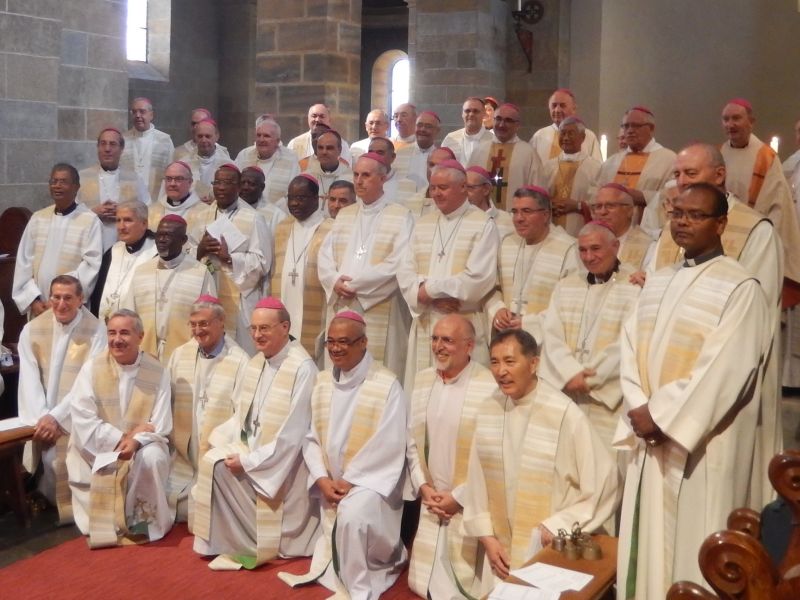 This year 63 prelates from 31countries attended, including Lutheran bishop Christian Krause, once president of the World Lutheran Federation. The goal was the same as always: “to enter more deeply and live the spirituality of communion” and to “explore the ways it could strengthen the Church’s journey” in various socio-cultural circumstances. The setting was the beautiful Palace of Seggau (XII century), ancient seat of the Bishop of Graz and now transformed into a conference centre immersed in lush green surroundings. The meeting opened amidst much joy and fraternity, they write, “with a review the beginnings of the bishops’ participation in the charism of unity, which has led them to aim for a life of communion not only during summer vacation, but also at a distance and throughout the whole year.”
This year 63 prelates from 31countries attended, including Lutheran bishop Christian Krause, once president of the World Lutheran Federation. The goal was the same as always: “to enter more deeply and live the spirituality of communion” and to “explore the ways it could strengthen the Church’s journey” in various socio-cultural circumstances. The setting was the beautiful Palace of Seggau (XII century), ancient seat of the Bishop of Graz and now transformed into a conference centre immersed in lush green surroundings. The meeting opened amidst much joy and fraternity, they write, “with a review the beginnings of the bishops’ participation in the charism of unity, which has led them to aim for a life of communion not only during summer vacation, but also at a distance and throughout the whole year.” 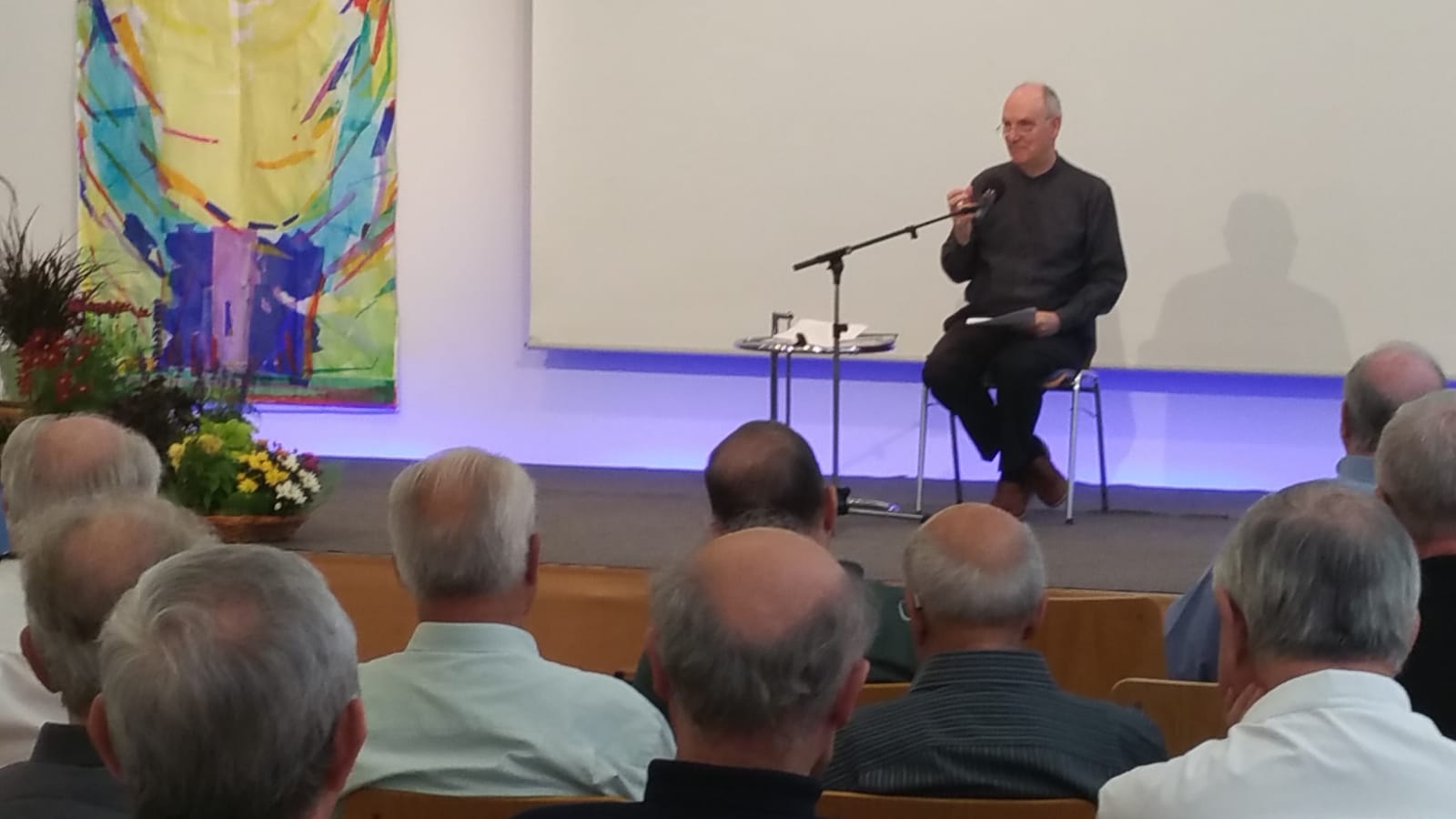 There were several presentations. Fr Fabio Ciardi, OMI, who is head of the Abba School, offered several reflections on Chiara Lubich’s experience of light in 1949. Archbishop Vincenzo Zan, Secretary of the Congregation for Catholic Education, described the Synod on young people that will take place in October. Bishop Brendan Leahy from Ireland reported on the Meeting of Families that will be held in Dublin at the end of August. Focolare president, Maria Voce, anticipated the topic that will be explored by all the Focolare members throughout the next year: “The Holy Spirit, Soul of the Church and of the world.” Then, together with co-president Jesús Morán, she talked about their visit to several Asian countries last January where they met with communities of the Movement. They also described the recent large gathering of young people at the Genfest in Manila, Philippines. They listened again to the Pope’s speech at the Focolare town of Loppiano, Italy, on May 10th, which Moran described as a “kind of guidebook” for the Work of Mary’s journey.” The Governor of the region welcomed the bishops in the Main Hall of the university of the Jesuits and offered them a reception. This is an unprecedented event, he remarked, which places us in the good collaboration between civil institutions and the church “in an ecumenical spirit and openness to all religions.”
There were several presentations. Fr Fabio Ciardi, OMI, who is head of the Abba School, offered several reflections on Chiara Lubich’s experience of light in 1949. Archbishop Vincenzo Zan, Secretary of the Congregation for Catholic Education, described the Synod on young people that will take place in October. Bishop Brendan Leahy from Ireland reported on the Meeting of Families that will be held in Dublin at the end of August. Focolare president, Maria Voce, anticipated the topic that will be explored by all the Focolare members throughout the next year: “The Holy Spirit, Soul of the Church and of the world.” Then, together with co-president Jesús Morán, she talked about their visit to several Asian countries last January where they met with communities of the Movement. They also described the recent large gathering of young people at the Genfest in Manila, Philippines. They listened again to the Pope’s speech at the Focolare town of Loppiano, Italy, on May 10th, which Moran described as a “kind of guidebook” for the Work of Mary’s journey.” The Governor of the region welcomed the bishops in the Main Hall of the university of the Jesuits and offered them a reception. This is an unprecedented event, he remarked, which places us in the good collaboration between civil institutions and the church “in an ecumenical spirit and openness to all religions.”
Aug 9, 2018 | Focolare Worldwide
While tens of thousands of youths from almost 200 dioceses throughout Italy are on their way to Rome for the meeting with Pope Francis on 11-12 August, the two-day programme was presented. About 70,000 young people will meet the Pope on Saturday at the Circo Massimo, for a “face-to-face” dialogue, to be followed by a prayer-wake in the spirit of the synod of October dedicated expressly to the youth. During the night some Churches along the Circo Massimo-St. Peter route will remain open not only for personal and community prayers, and confessions, but also testimonials, performances and theme encounters. On Sunday morning in St. Peter’s Square, Mass will be celebrated, followed by a new meeting with Pope Francis who will consign his missionary mandate to the youths and bless the gifts which the Italian delegation will bring to the World Youth Day in Panama in January 2019.

Aug 8, 2018 | Focolare Worldwide

Tommaso Carrieri, co-founder of the association “Not from war”
Aug 8, 2018 | Non categorizzato
Instituted by the United Nations in 1994, the Day memorialises the rights of all people to live according to the customs and traditions of their origins, with particular focus on the 370 million members of indigenous people living in 90 countries of the world and representing 15% of the world population while remaining 15% of the world’s poor. The UN document is intended to “incarnate the global consensus on the rights of indigenous peoples, and to establish a framework of minimal norms for their survival, dignity and well-being.” In the last ten years – the UN reports – the Declaration has had several successes at different international level, national and regional levels, but there continues to be a gap between the formal recognition of the indigenous peoples and that actualization of politics on the ground.
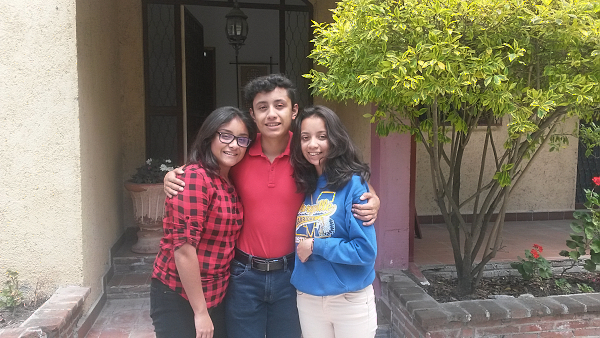
Aug 7, 2018 | Focolare Worldwide
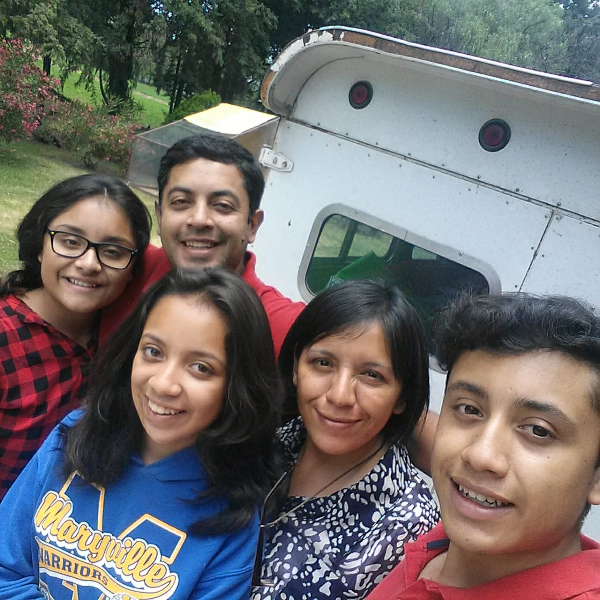 Together with their three children, four years ago Edgar and Maquency moved to “El Diamante”, the Focolare’s little city 50 kilometers from Puebla, and close to 170 kilometers from Mexico City. Although only a couple of dozen inhabitants, each year a few thousand visitors come to this land, which has a culture of sharp contrasts, including modern, well-populated cities and vast surrounding areas. The little city is a true point of a diamond, the beating heart of the Focolare Movement that Chiara Lubich founded in 1990. It is a place that bears witness to how Gospel life can become enculturated if it is based on dialogue and mutual exchange between diverse cultures. “We decided to move to the little city with our three children to contribute in a practical way. We landed here after responding to a real and true call from God to build the city togethe rwith others,” says Edgar. “For us, making ourselves available was a way to pay back all the love that has been given us ever since we heard about the ideal of unity,” Maquency adds. “Recently,” says Edgar, “we were trying to make ends meet, which was difficult without having a steady job. During our first year in the little city, I had different carpentry and plumbing jobs, and then I worked as a house painter to support our family. After that, discussing it with Maquency and the other focolarini, we decided I would go and search for other income in my field, engineering. After some time, I found a job in a city 90 kilometers from the little city. The work was good, and I was happy, but there was always that feeling that I was far away from home, my family and the little city.” Then another opportunity arose in a nearby city. “Talking about ita t home, we decided to accept the job. At first it seemed a good option, but after a few months of working at that business, I realised that things were not quite what they seemed and gave my notice. “I then went back to the little city and dedicated myself to silk-screen printing. It felt like I had gone backwards. “Instead just after that, an unexpected job offer came up as a consultant for a project. I was immediately hired, and I really enjoyed the work and the pay was good. Finally we were able to have financial stability in our family.”
Together with their three children, four years ago Edgar and Maquency moved to “El Diamante”, the Focolare’s little city 50 kilometers from Puebla, and close to 170 kilometers from Mexico City. Although only a couple of dozen inhabitants, each year a few thousand visitors come to this land, which has a culture of sharp contrasts, including modern, well-populated cities and vast surrounding areas. The little city is a true point of a diamond, the beating heart of the Focolare Movement that Chiara Lubich founded in 1990. It is a place that bears witness to how Gospel life can become enculturated if it is based on dialogue and mutual exchange between diverse cultures. “We decided to move to the little city with our three children to contribute in a practical way. We landed here after responding to a real and true call from God to build the city togethe rwith others,” says Edgar. “For us, making ourselves available was a way to pay back all the love that has been given us ever since we heard about the ideal of unity,” Maquency adds. “Recently,” says Edgar, “we were trying to make ends meet, which was difficult without having a steady job. During our first year in the little city, I had different carpentry and plumbing jobs, and then I worked as a house painter to support our family. After that, discussing it with Maquency and the other focolarini, we decided I would go and search for other income in my field, engineering. After some time, I found a job in a city 90 kilometers from the little city. The work was good, and I was happy, but there was always that feeling that I was far away from home, my family and the little city.” Then another opportunity arose in a nearby city. “Talking about ita t home, we decided to accept the job. At first it seemed a good option, but after a few months of working at that business, I realised that things were not quite what they seemed and gave my notice. “I then went back to the little city and dedicated myself to silk-screen printing. It felt like I had gone backwards. “Instead just after that, an unexpected job offer came up as a consultant for a project. I was immediately hired, and I really enjoyed the work and the pay was good. Finally we were able to have financial stability in our family.”  When everything seemed to become normal from the financial point of view, Edgar was surprised to be asked to manage the maintenance in the little city, which was quite needed so many years after being built. “My wife and I entered into a new phase of discernment, trying to understand the right choice to make. There were moments of uncertainty and worry, especially when we thought of our children’s future.” “We remembered,” Maquency says, “our early experience that God had us live through. We felt we were being asked yet again, since when God calls, he asks to leave everything and demands an. Exclusive love. He wants us to leave our security in order to put ourselves at the service of others. Yet he also offers us everything, as the Gospel says: ‘No one who has left home or brothers or sisters or mother or father or children or fields for my sake and for the Gospel will fail to receive a hundredfold in the present age.’” “And so we decided that I’d put myself at the service of the little city. When I discussed it with my manager at the business, he exclaimed, ‘If only there were many people like you!’ and he proposed that I work for reduced hours, which matched my needs. I experienced how Providence intervened firsthand and how true the Gospel is.”
When everything seemed to become normal from the financial point of view, Edgar was surprised to be asked to manage the maintenance in the little city, which was quite needed so many years after being built. “My wife and I entered into a new phase of discernment, trying to understand the right choice to make. There were moments of uncertainty and worry, especially when we thought of our children’s future.” “We remembered,” Maquency says, “our early experience that God had us live through. We felt we were being asked yet again, since when God calls, he asks to leave everything and demands an. Exclusive love. He wants us to leave our security in order to put ourselves at the service of others. Yet he also offers us everything, as the Gospel says: ‘No one who has left home or brothers or sisters or mother or father or children or fields for my sake and for the Gospel will fail to receive a hundredfold in the present age.’” “And so we decided that I’d put myself at the service of the little city. When I discussed it with my manager at the business, he exclaimed, ‘If only there were many people like you!’ and he proposed that I work for reduced hours, which matched my needs. I experienced how Providence intervened firsthand and how true the Gospel is.”
Aug 6, 2018 | Focolare Worldwide
Aug 6, 2018 | Focolare Worldwide
73 years ago, on 6 August 1945, the horror of Hiroshima, and Nagasaki, three days later, came in the form of an immense flash of light which brought immediate death to hundreds of thousands people, almost all civilians, and many more in the following years, due to the radiations. From those two explosions, not only Japan, but the entire humanity was devastated, and consigned to the world the awareness that nothing would ever be the same. “Never again” is not only a moral warning, but also an absolute need, if we want our planet to have a future of peace and create a world in which the sun is the only symbol of life.
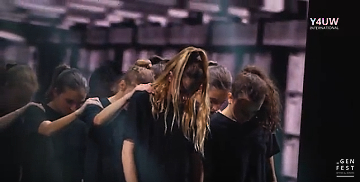
Aug 5, 2018 | Focolare Worldwide
 “These words are precious to me, since they are written by Chiara Lubich: ‘I can imagine that all of you . . . feel the full weight of the violence and terrorism that even spreads across entire nations. Young people not much older than you believe that they can change society by kidnapping, killing and committing every sort of criminal act. Without a doubt they never found more positive ideals to live for and let themselves wander onto very dangerous road. Many people are frightened and unable to live at peace. What can we do? What contribution could we give?’ These words perfectly sum up what I’m going through right now. I’d like to share with you what I’m living and how abandoned I feel in this moment, perhaps a bit as Jesus felt when he was abandoned on the cross. This sense of abandonment is something I felt in all four of the detention centers where I stayed and where I found myself among teenagers who were for the most part younger than me. At first these kids frightened me. They were against me and even wanted to kill me. But I tried to get close to them and realized that what they were missing was understanding, a lack of opportunity and, therefore, a lack of love. I’m not trying to justify them, but they also need love and help, only that they looked for it by drawing attention to themselves in the wrong way. But it was the only way they knew. My parents try to live for a united world and, ever since I was a small, I did too. It’s easier when you belong to a community where everyone tries to live in that way. Whereas, for people who are afraid to let themselves love, it’s harder, especially when they see that this love doesn’t correspond to what they see around them, such as thieves and assassins. Nevertheless, it’s only love that cuts through all the limitations and this is the more precious truth, despite of everything I’m living in here. Now these guys come into my cell and ask me for advice or help, especially when they’re going through ugly moments. Some of them even want to know more about Youth for a United World (Y4UW) which I belong to in spite of my situation. Lots of them ask me how I am, if I need anything; one even calls me brother. What I’m living in prison can turn into an invasion of love that little by little spreads where violence reigns, just like gentle rain that penetrates deeper and deeper into the soil…”.
“These words are precious to me, since they are written by Chiara Lubich: ‘I can imagine that all of you . . . feel the full weight of the violence and terrorism that even spreads across entire nations. Young people not much older than you believe that they can change society by kidnapping, killing and committing every sort of criminal act. Without a doubt they never found more positive ideals to live for and let themselves wander onto very dangerous road. Many people are frightened and unable to live at peace. What can we do? What contribution could we give?’ These words perfectly sum up what I’m going through right now. I’d like to share with you what I’m living and how abandoned I feel in this moment, perhaps a bit as Jesus felt when he was abandoned on the cross. This sense of abandonment is something I felt in all four of the detention centers where I stayed and where I found myself among teenagers who were for the most part younger than me. At first these kids frightened me. They were against me and even wanted to kill me. But I tried to get close to them and realized that what they were missing was understanding, a lack of opportunity and, therefore, a lack of love. I’m not trying to justify them, but they also need love and help, only that they looked for it by drawing attention to themselves in the wrong way. But it was the only way they knew. My parents try to live for a united world and, ever since I was a small, I did too. It’s easier when you belong to a community where everyone tries to live in that way. Whereas, for people who are afraid to let themselves love, it’s harder, especially when they see that this love doesn’t correspond to what they see around them, such as thieves and assassins. Nevertheless, it’s only love that cuts through all the limitations and this is the more precious truth, despite of everything I’m living in here. Now these guys come into my cell and ask me for advice or help, especially when they’re going through ugly moments. Some of them even want to know more about Youth for a United World (Y4UW) which I belong to in spite of my situation. Lots of them ask me how I am, if I need anything; one even calls me brother. What I’m living in prison can turn into an invasion of love that little by little spreads where violence reigns, just like gentle rain that penetrates deeper and deeper into the soil…”.
https://youtu.be/6VGaH7_g-H0
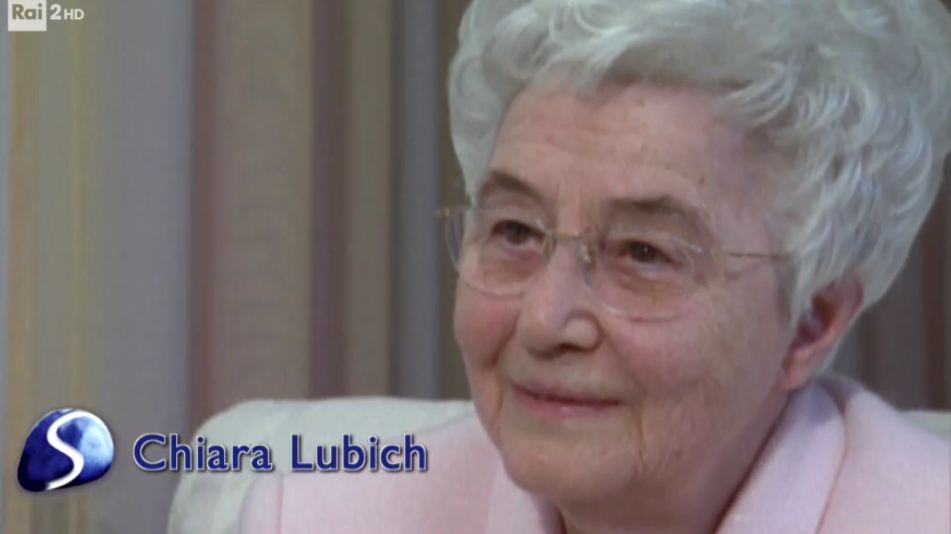
Aug 3, 2018 | Non categorizzato
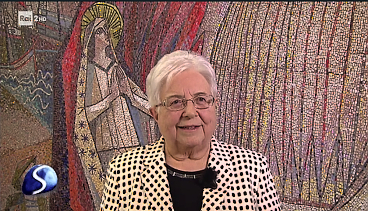
Maria Voce
 The message that Chiara left us is that of being open to everyone, not looking at anyone as if they were different from you, but seeing everyone as your brother or sister. This “everyone” means people from your own country and those from other countries, Christians and non-Christians, believers and non-believers, those who understand and accept what I am saying and the person who contradicts me, because even someone who contradicts me is my brother or sister. This is what Chiara taught us and what she did herself first of all, having a heart that was able to welcome each person as if they were the only person in the world, whether they were a head of State, a child or a relative; a Church leader or a leader of another religion. Chiara had the same love for all. I believe this is the most important message for today when there is a growth in tension and violence, selfishness and mutual indifference. We can build a world guided by the Gospel, where all people are brothers and sisters and truly live as one family.
The message that Chiara left us is that of being open to everyone, not looking at anyone as if they were different from you, but seeing everyone as your brother or sister. This “everyone” means people from your own country and those from other countries, Christians and non-Christians, believers and non-believers, those who understand and accept what I am saying and the person who contradicts me, because even someone who contradicts me is my brother or sister. This is what Chiara taught us and what she did herself first of all, having a heart that was able to welcome each person as if they were the only person in the world, whether they were a head of State, a child or a relative; a Church leader or a leader of another religion. Chiara had the same love for all. I believe this is the most important message for today when there is a growth in tension and violence, selfishness and mutual indifference. We can build a world guided by the Gospel, where all people are brothers and sisters and truly live as one family.
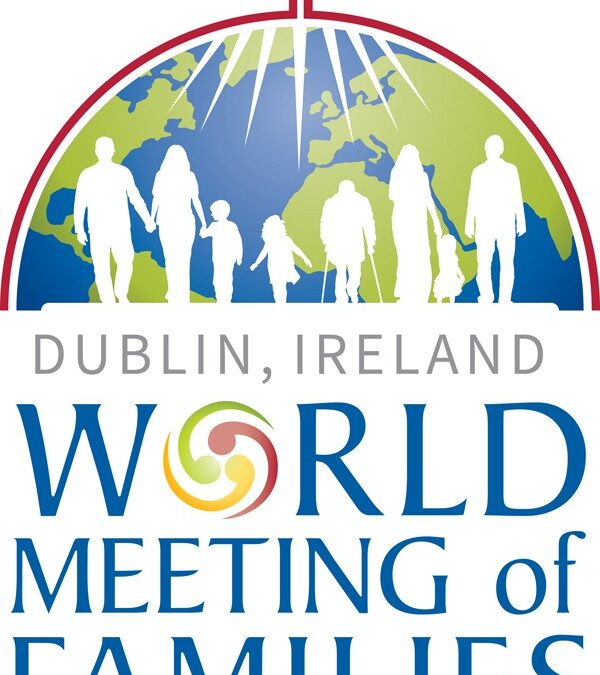
Aug 2, 2018 | Focolare Worldwide
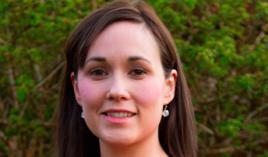
Brenda Drumm
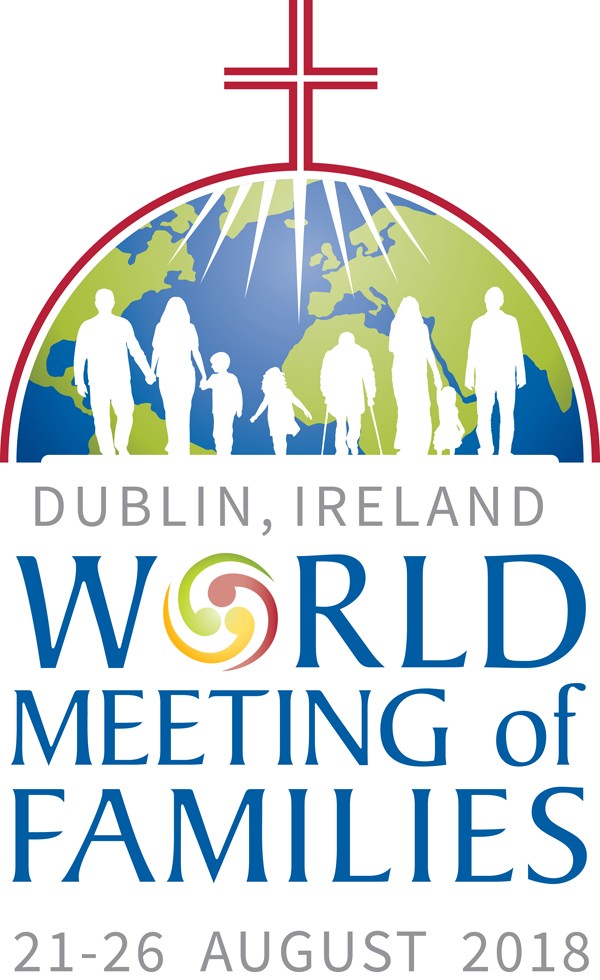 Repeated every three years, the event, which is promoted by the Holy See’s Secretariat for the Laity, the Family and Life, brings together families from around the world to celebrate, pray and reflect together on the importance of marriage as the foundation of personal life, of society and of the Church. The meeting will continue after the official inauguration on 21 August, with a three-day conference in which there will be diversified programs for young people and adults, with entertainment for children, all culminating in sharing experiences of faith in the presence of the Pope. Most of the events will take place in Dublin while other related events will be held in other parts of Ireland. The numbers are flattering, says Drumm: “People’s response has been overwhelming. All the tickets for the scheduled events have already been booked for a long time: 37,000 for the pastoral congress, 77,000 for the Festival of families, 45,000 for the visit to Our Lady of Knock, 500,000 for the closing Mass. Numbers from which interesting data can be derived: families from 116 countries will arrive in Ireland, for a total of about 15,000 international participants; thousands of families will converge on Dublin from all over the country. Approximately 6,000 young people under the age of 18, and 10,000 volunteers committed to ensure the success of the Meeting. But behind the figures are the people: families from all over the world who will gather to celebrate their joys and to discuss some of the many challenges they are facing faced in a rapidly changing world.” And she continues: “Pope Francis is able to grasp perfectly the reality of family life today, with the difficulties of every day. He understands that as parents we do our best for each other each day, and for our children. He also understands that families are not perfect.” What is the family for Pope Francis? Drumm recalls: “The nearby hospital, the first school for the children, the best home for the elderly.” And if “at times dishes can fly,” the Pope reminds us “how happier our family life would be if we only understood the importance of the words ‘please,’ ‘thank you,’ and ‘excuse me.’ The Pope remains passionately convinced that the family will continue to be ‘good news’ for the world. He believes that in the often complex and disordinate life of the modern family, the grace and the love of Jesus Christ are alive in a galaxy of daily acts of kindness, tenderness, generosity and fidelity often lived out heroically amidst immense human frailty and overwhelming social challenges. In a society that is easily inclinded toward violence, the family continues to hold us to hold our lives together, along with the world itself.”
Repeated every three years, the event, which is promoted by the Holy See’s Secretariat for the Laity, the Family and Life, brings together families from around the world to celebrate, pray and reflect together on the importance of marriage as the foundation of personal life, of society and of the Church. The meeting will continue after the official inauguration on 21 August, with a three-day conference in which there will be diversified programs for young people and adults, with entertainment for children, all culminating in sharing experiences of faith in the presence of the Pope. Most of the events will take place in Dublin while other related events will be held in other parts of Ireland. The numbers are flattering, says Drumm: “People’s response has been overwhelming. All the tickets for the scheduled events have already been booked for a long time: 37,000 for the pastoral congress, 77,000 for the Festival of families, 45,000 for the visit to Our Lady of Knock, 500,000 for the closing Mass. Numbers from which interesting data can be derived: families from 116 countries will arrive in Ireland, for a total of about 15,000 international participants; thousands of families will converge on Dublin from all over the country. Approximately 6,000 young people under the age of 18, and 10,000 volunteers committed to ensure the success of the Meeting. But behind the figures are the people: families from all over the world who will gather to celebrate their joys and to discuss some of the many challenges they are facing faced in a rapidly changing world.” And she continues: “Pope Francis is able to grasp perfectly the reality of family life today, with the difficulties of every day. He understands that as parents we do our best for each other each day, and for our children. He also understands that families are not perfect.” What is the family for Pope Francis? Drumm recalls: “The nearby hospital, the first school for the children, the best home for the elderly.” And if “at times dishes can fly,” the Pope reminds us “how happier our family life would be if we only understood the importance of the words ‘please,’ ‘thank you,’ and ‘excuse me.’ The Pope remains passionately convinced that the family will continue to be ‘good news’ for the world. He believes that in the often complex and disordinate life of the modern family, the grace and the love of Jesus Christ are alive in a galaxy of daily acts of kindness, tenderness, generosity and fidelity often lived out heroically amidst immense human frailty and overwhelming social challenges. In a society that is easily inclinded toward violence, the family continues to hold us to hold our lives together, along with the world itself.”
Aug 1, 2018 | Non categorizzato
The littlest one A neighbour, who was in a bit of pain because her son wasn’t profiting much from his schooling, couldn’t find a way to help him with his schoolwork. She left for work every morning at 5:30 and returned in the evening. So, I suggested that she send him over to me and he could study with my son. It wasn’t easy, because I also had to help my older son and take care of the smaller one, who had just turned one. But I was glad to be of help to someone. M. M. (Venezuela) An arms factory Finally I had found a job at factory equipped with a sophisticated security system. I couldn’t believe it and thought our problems were over. After a while I became aware of a secret that had been kept from me: the factory built weapons. They asked me if I had a problem with that, and I nonchalantly answered no. It wasn’t up to me to solve that problem, plus I would have been out on the street again. Talking it over with my wife and some friends, I realized what choice I needed to make. On my way home, unemployed again, I couldn’t stop crying, but there was an unusual joy deep inide my soul. I had put my Christian identity before everything. I would never have imagined that just a short time later I would be offered another very gratifying job and, most importantly, in line with my conscience. D. R. (Italy) A different mood Our son had returned from the kind of vacation we parents just couldn’t approve of. We decided to talk to him after supper, firmly decided to tell him that either he changed his lifestyle, or he’d have to move out of the house. All day, I kept asking myself if that would really be good for him. I also spoke about it with some of my girlfriends and my doubts increased. Perhaps, I thought, we have to be able to wait and put more love into our relationship as Jesus tells us to do. After talking about it with my husband, we had a change of mood, no longer imposing our point of view, but having a more listening mood in order to hear him. We sat together for a long time and, even though he didn’t share our ideas he let us share his struggles. We thanked God for having guided us along. C. W. (Austria) A suspicious character We don’t know anyone in the town we moved to for work. In fact, my colleagues tell me not to trust anyone there, because the people there are not recommendable. My husband, with his outgoing personality, immediately began to chat with several people, especially one man in particular whom he met every day at the magazine stand. My colleagues warned me again, telling me that man, in particular, had serious problems with the law. A few days later our daughter wasn’t feeling well and her condition worsened. I felt at a loss. Then I remembered that my husband had received a local map from the man he had met at the magazine stand. It showed the location of all the local services, including hospitals, doctors and pharmacies. Suddenly, it all became easy, thanks to the map from that suspicious character. It was a powerful lesson for me: Love of neighbour must come before any and all judgements.” L. S. (Italy)
Jul 31, 2018 | Non categorizzato
Jul 31, 2018 | Non categorizzato
According to tradition, on the night of July 1216, St. Francis asked God for forgiveness of the sins of the penitent pilgrims visiting the “Portiuncula.” On 2 August Pope Honorius III established the “Pardon of Assisi” in the Franciscan churches, an indulgence extended today to all the parish churches worldwide. On 1 August there will be the celebration of the “Opening of the Days of Indulgences” (from 12 noon of 1 August up to midnight of 2 August). It will be followed by the traditional Evening Prayer with a procession with torches. The youths of the 38th Franciscan March coming from all the regions of Italy and some foreign countries, shall cross the threshold of the “Portiuncula” after a journey on foot of more than a week, guided by the theme, “With a new name.” Lastly, the Basilica Square will be the location of five events/shows (Gloriosus Francisuc with Michele Placido, Concert of the Russian Symphonic Orchestra, On a journey with Mary, Pardon Concert of the Vatican Gendarmerie Band, and the ballet, The Two Paths).
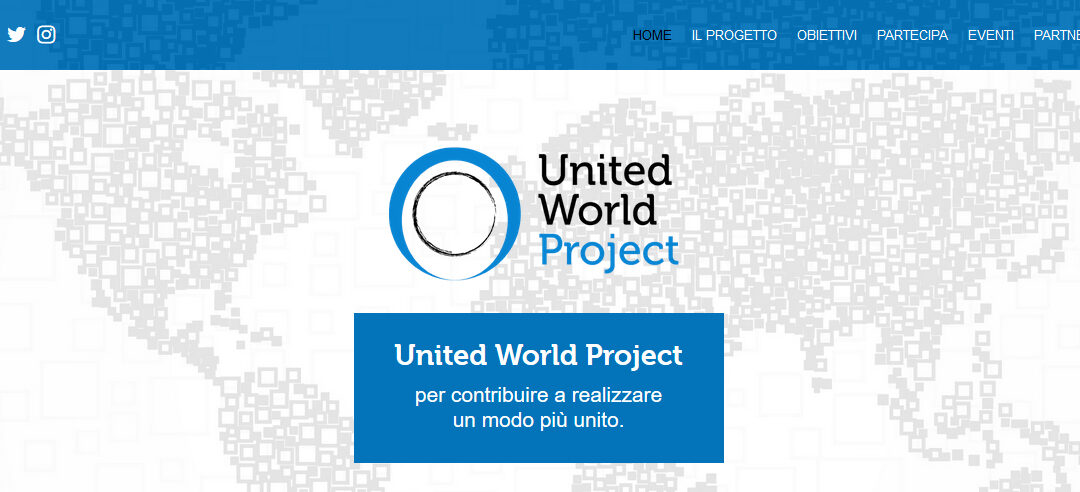
Jul 31, 2018 | Non categorizzato
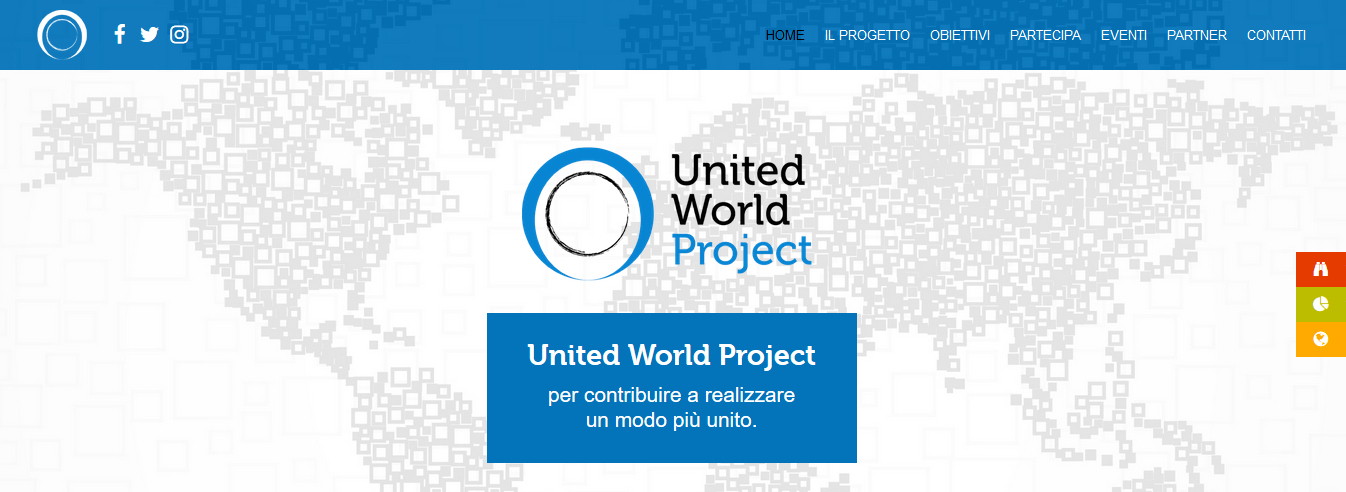 “We live in a world which has become a real village: complex and new, but a village. Humanity today lives as if it were a small group. And if it is so, it could really live, in brotherhood. But how can we make it bloom?” Chiara Lubich See the new website: www.unitedworldproject.org With new contents: Watch, Workshop, Network «UWP, promoted by New Humanity, wishes to contribute to the creation of the united world by mapping, promoting and setting on the network the personal and collective good practices, processes, big or small actions, daily or extraordinary ones that contribute to make the world a place o peace, more fraternal and united” as listed in its objectives. Enter into the United World Project network!
“We live in a world which has become a real village: complex and new, but a village. Humanity today lives as if it were a small group. And if it is so, it could really live, in brotherhood. But how can we make it bloom?” Chiara Lubich See the new website: www.unitedworldproject.org With new contents: Watch, Workshop, Network «UWP, promoted by New Humanity, wishes to contribute to the creation of the united world by mapping, promoting and setting on the network the personal and collective good practices, processes, big or small actions, daily or extraordinary ones that contribute to make the world a place o peace, more fraternal and united” as listed in its objectives. Enter into the United World Project network!
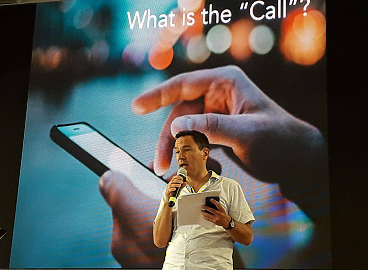
Jul 30, 2018 | Focolare Worldwide
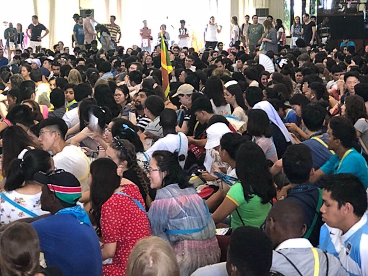 “What shall I do in life?” one of the seven workshops held following the Genfest, focused on the theme of the choices in life, that is, one’s own “Life direction.” As the organizers recounted, “the construction of this workshop by adults and a group of young people from various parts of the world began last February, with meetings via Skype: a really edifying experience assumed by all with commitment, responsibility and creativity.” “Upon arriving in Tagaytay and getting to know each other personally, we realised the great expectations of everyone. Also the numbers expected at the workshop were high: out of the 1,000 enrollees in the seven workshops, 250 had chosen Life Direction, and came from various countries, speaking 16 languages.” The program, guided in a light and gradual manner towards ever deeper issues in which concrete experiences were the main factor, was prepared by the youths of the Asian town themselves, and the thread focused on a “daily motto: a thought to put into practice during the day.
“What shall I do in life?” one of the seven workshops held following the Genfest, focused on the theme of the choices in life, that is, one’s own “Life direction.” As the organizers recounted, “the construction of this workshop by adults and a group of young people from various parts of the world began last February, with meetings via Skype: a really edifying experience assumed by all with commitment, responsibility and creativity.” “Upon arriving in Tagaytay and getting to know each other personally, we realised the great expectations of everyone. Also the numbers expected at the workshop were high: out of the 1,000 enrollees in the seven workshops, 250 had chosen Life Direction, and came from various countries, speaking 16 languages.” The program, guided in a light and gradual manner towards ever deeper issues in which concrete experiences were the main factor, was prepared by the youths of the Asian town themselves, and the thread focused on a “daily motto: a thought to put into practice during the day. 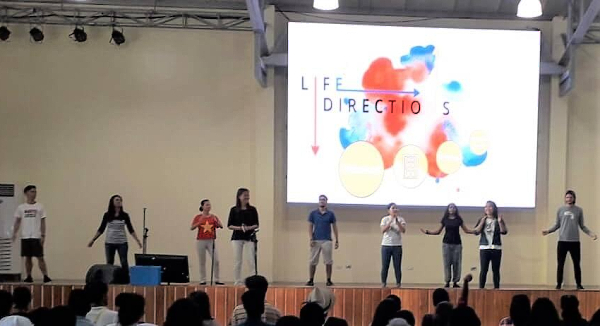 “The first day opened with “Open your heart”: an invitation to open one’s heart to true happiness, trying to remove what could be an impediment in living the present moment intensely. Four experiences were presented in various situations and methods on the theme of happiness discovered thanks to concrete love, or discovered after starting again after a fall, or in painful and difficult situations. The exchange sessions in small groups verified what lay in the depths and how many questions and expectations each one had inside.” “On the second day – they continued – the motto was ’What is the call’ which required our most active participation in presenting the sense of the ’calling’ with a comprehensible language to be able to be accepted, and associated to three key words: understand, listen, choose.” Then followed the story with God in five biblical personages: Samuel, the rich young man, the prodigal son, Mary, and Peter. A married couple, a religious, a woman committed in the professional world, and a focolarina were interviewed on the three key words. “In smaller groups we managed to deepen the sense of each of these callings, interacting with questions and answers.”
“The first day opened with “Open your heart”: an invitation to open one’s heart to true happiness, trying to remove what could be an impediment in living the present moment intensely. Four experiences were presented in various situations and methods on the theme of happiness discovered thanks to concrete love, or discovered after starting again after a fall, or in painful and difficult situations. The exchange sessions in small groups verified what lay in the depths and how many questions and expectations each one had inside.” “On the second day – they continued – the motto was ’What is the call’ which required our most active participation in presenting the sense of the ’calling’ with a comprehensible language to be able to be accepted, and associated to three key words: understand, listen, choose.” Then followed the story with God in five biblical personages: Samuel, the rich young man, the prodigal son, Mary, and Peter. A married couple, a religious, a woman committed in the professional world, and a focolarina were interviewed on the three key words. “In smaller groups we managed to deepen the sense of each of these callings, interacting with questions and answers.”  “The third day’s motto was: ’Aim high.’ We left the word of Chiara Lubich who in 2002 recounted her calling to the youths in Barcelona. The questions, which were written, slowly filled the question box, and were the afternoon’s programme, with other interviews of our guests: each underlined the beauty of their own vocation in the perspective of the sole calling to love. The hour and a half passed swiftly!” “In these four days – the adults wrote – we saw youths who were thirsting for a relationship with God, in a profound quest, simplicity and serenity. We felt that something new had come about: an experience of light that had opened a new path of dialogue with the youths on the calling to a radical vocation.” Some of those present said: “It was exactly what I needed at this point of my life. Living the present moment, opening my doors, and taking radical steps beyond ourselves, are what I am bringing home with me.” “The youths who spoke about their choice to follow God in a total way gave me courage to make choices only out of love.” “For me it was important to understand how to answer the call: understand (that God loves me), listen (to the voice within) and decide (to follow Jesus). I am so happy about this experience. Thanks!”
“The third day’s motto was: ’Aim high.’ We left the word of Chiara Lubich who in 2002 recounted her calling to the youths in Barcelona. The questions, which were written, slowly filled the question box, and were the afternoon’s programme, with other interviews of our guests: each underlined the beauty of their own vocation in the perspective of the sole calling to love. The hour and a half passed swiftly!” “In these four days – the adults wrote – we saw youths who were thirsting for a relationship with God, in a profound quest, simplicity and serenity. We felt that something new had come about: an experience of light that had opened a new path of dialogue with the youths on the calling to a radical vocation.” Some of those present said: “It was exactly what I needed at this point of my life. Living the present moment, opening my doors, and taking radical steps beyond ourselves, are what I am bringing home with me.” “The youths who spoke about their choice to follow God in a total way gave me courage to make choices only out of love.” “For me it was important to understand how to answer the call: understand (that God loves me), listen (to the voice within) and decide (to follow Jesus). I am so happy about this experience. Thanks!”
Jul 29, 2018 | Non categorizzato
More than 50 countries have signed up to the International Day of Friendship, which the United Nations established in 2011 and is celebrated each year on July 30. (Some countries, such as India, Nepal and Bangladesh, celebrate it in the days just following.) The aim of the day is to encourage governments, associations and groups to promote every kind of friendship, solidarity, trust, mutual understanding and forgiveness. This is in line with local cultures and customs, with the conviction that these feelings can effectively contribute to peace between peoples and nations. The UN especially encourages young people, as future leaders, to undertake community activities that include different cultures, to promote international understanding and respect for diversity. Judging by the thousands of young people who enthusiastically took to the message of friendship and unity “Beyond all borders,” at the recent Genfest in Manila and many other countries, the encouragement has not fallen on deaf ears.
Jul 29, 2018 | Focolare Worldwide
Jul 28, 2018 | Non categorizzato, Word of
The prophet Jeremiah was sent by God to the people of Israel, who were experiencing the pain of exile in Babylon. They had lost everything that represented their identity and chosenness: their land, the temple and the law… However, the prophet’s words pierce through this sense of pain and loss. It is true that Israel had been unfaithful to the covenant of love with God and this had led to destruction. But then came the proclamation of a new promise of freedom, salvation, and a renewed covenant. God was preparing this out of his eternal and unfailing love for his people. “I have loved you with an everlasting love; therefore I have continued my faithfulness to you.” “The eternal and unfailing nature of God’s faithfulness is a quality of His love. He is the Father of every human being, a Father who is the first to love; and his commitment is forever. His faithfulness touches each one of us and allows us to entrust to Him every worry that might block us. This eternal and patient love also helps us grow and improve our relationship with Him and with others. We are well aware that our commitment to love God and our neighbours is not yet constant, although it is sincere. But His faithfulness to us is freely given, anticipating our needs, regardless of the ‘service’ we give. With this joyful assurance, we can go beyond our limited view of things and start out on the journey again each day, becoming witnesses to this “motherly” love. “I have loved you with an everlasting love; therefore I have continued my faithfulness to you.” God’s loving way of looking at humanity also reveals a wonderful plan to make all people become one family, which reaches its fulfilment in Jesus. In fact, he bore witness to his trust in God’s love through his word, and above all, with the example of his life. He made it possible for us to imitate the Father’s love for all (Mt 5:43 ff.). He showed us that the vocation of every man and woman is to contribute personally to building relationships of acceptance and dialogue. How can we live the Word of life for this month? Chiara Lubich invites us to have a mother’s heart: « […] A mother always welcomes, always helps, always hopes, and covers everything. […] In fact, the love of a mother is very similar to the love of Christ which St Paul spoke of. If we have a mother’s heart, or, more precisely, if we decide to have Mary’s heart, the heart of the Mother par excellence, we will always be ready to love others in all circumstances and to keep the Risen Lord alive in us. […] If we have the heart of this Mother, we will love everyone and not only the members of our own church, but also other people’s churches. Not only Christians, but also Muslims, Buddhists, Hindus, and so on. We will love all people of good will and every person who lives on this earth […] » . “I have loved you with an everlasting love; therefore I have continued my faithfulness to you.” A young wife, who started living the Gospel in her family said: “I experienced a joy I never had before and wanted to share this love outside the four walls of our house. For example, I remember running to the hospital to visit the wife of a colleague who had attempted suicide. For quite a time, I had known of their difficulties, but being absorbed in my own problems, I had not bothered to help her. But then I felt her suffering was my own and I could not rest until the situation that had driven her to that point was resolved. This experience marked the beginning of a change in my mentality. I understood that, if I love, I can be a reflection of God’s love for everyone I meet, even if only a very small one “. What if we too, sustained by God’s faithful love, freely have this inner attitude in the presence of everyone we meet during the day? Letizia Magri
Jul 27, 2018 | Non categorizzato
“The woman of Nazareth, as a homemaker, offers an enormous challenge for us, urging us to set aside a spirituality based on a fascination for the extraordinary in order to find mysticism in our daily routines. From theoretical fantasies to a tangible reality in the simplicity of the everyday… that is where God walks. Ermes Ronchi, Le domande nude del Vangelo (The bare questions of the Gospel), p. 176. “We truly need a home. A home is extremely important… It needs to be kept as most holy Mary kept hers, which hosted no less than Jesus, so she needed to do something in harmony with he who was the Word of God. “It was the beauty of God, it was brilliant, it was glorious, for glory means God’s brilliance. I don’t know if you can imagine, as a way of saying, God as a sun that is setting. Its rays that shine forth are the Word. The Word of God that became flesh is Jesus. So he is truly the glory, the height of beauty, splendor. “And so Mary… in her home… she knew how to keep it well, in a way that hosted Jesus well… Our calling, if it is a Marian calling, is making a home. You can’t understand Mary if you don’t understand a mother at home, beyond being the seat of wisdom, someone who knew how to keep a home.” Chiara Lubich on May 30, 1996, at the inauguration of the Gen house in Loppiano, Italy “A mother is more about intuitions of the heart than speculations of the intellect, more poetry than philosophy. She is quite magnificent and grounded, close to the human heart. “Thus it is so with Mary, mother of mothers, who is the sum of all affection, goodness and mercy, to which all the world’s mothers cannot compare. Mary is peaceful like nature, pure, serene, clear, moderate, beautiful… She is gifted, spirited, tidy, steadfast, rich with hope. “She is too close to us and unpretentious to be contemplated… She brings the divine to earth, like a heavenly plane that gently slopes from a dizzying height of the heavens down to the infinite smallness of creatures.” Chiara Lubich, Disegni di luce (Designs of light), p. 84–85.
Jul 26, 2018 | Focolare Worldwide
“We had a few special days here at Loppiano,” the organizers write, “special days in the first “school” for pastoral care workers. There were 75 of us from different regions of Italy, as well as some groups from Latin America and Rwanda.” The title chosen for the workshop was Local Church: communion and mission – pastoral care in light of “The Joy of the Gospel.” The workshop took place in the Movement’s international town of Loppiano and was promoted by the Evangelii Gaudium (CEG) Center. It was a formation course as well as a research and study project offered by Sophia University Institute. “We were pleasantly surprised by the effect the proposal had on the participants: both in the deep and mature sharing of ecclesial experiences and in how the spirituality of unity responded to their needs, as well for the spiritual presence of “Jesus the Teacher” which seemed to illumine the pastoral care experience.” The presentations were high quality, prepared in close collaboration and in harmony with one another. The interactive afternoon workshops provided us with methods for implementing the content that was presented in the mornings.” The goal of the workshop was to propose theoretical and practical models to people who are working to make the spirituality of the Focolare “visible and experienced” in the Italian Church, since it is a gift from the Holy Spirit that was given to Chiara Lubich for the whole Church of today.” The course opened with an enriching introduction to the Trinitarian method used at the university in Loppiano, by Msgr Piero Coda, Director of the Institute; and a talk by Cardinal Giuseppe Petrocchi, president of the CEG, titled: Protagonists in the life of diocese and parishes. One of the attendees remarked: “How beautiful the analysis of the new cardinal. Every concept raised smiles and emotions. . . I believe I absorbed a certain human mentality, especially regarding the use of words when proclaiming [the Gospel]. With the excuse of respecting the other’s freedom, I hide and deprive the other of the great gift I’ve been given. The cardinal spoke with force and, in his analysis, you could feel his zeal for the Church and humanity, and the secret for contributing to their renewal.” Other important presentations were given by Archbishop Vincenzo Zani, Secretary of the Congregation for Christian Education, and by Dr Vincenzo Buonomo, rector of the Lateran University. One young man remarked: “Archbishop Zani’s presentation illuminated me a lot. You have to have a program: The Word, placing oneself in the school of ‘Jesus the Teacher,’ living new relationships, expressing the communitarian dimension of the Church, the dimension of dialogue which generates a universal brotherhood.” Other comments; “This school was interesting for rediscovering the value of the incarnated Word in renewing the human structures of the Church.” “Our missionary life passes through a living charity and, therefore, seeing it, others wish to be a part of it.” “Theoretical presentations were both beautiful and exhaustive. Today, the third day, I went through a little crisis, following an examination of conscience because of what I always propose to do and never manage to do. So it was a constructive crisis.” “I really feel that we all need this training, so that our actions will be supported by this knowledge.” The workshop will continue with a second part that will take place in early October at the individual parishes. Gustavo Clariá
Jul 26, 2018 | Non categorizzato
“Fifty years after being published, Paul VI’s encyclical Humanae vitae appears entirely different to modern eyes. In 1968 it was a brave document – and as a result controversial– that went against the climate of the time. This was the era of the sexual revolution, which needed certainty of contraception and the possibility of abortion in order to happen. It was also a time when economists spoke of a ‘human bomb’ – the danger of overpopulation that threatened rich countries, which could have decreased their prosperity.” So writes Lucetta Scaraffia in Avvenire, although she concludes that today the world has changed and that the encyclical should be read again with a different perspective: as a “prophetic event.” It was published on July 25, 1968, in the sixth year of Paul VI’s pontificate, and caused a number of conflicting responses.
Jul 25, 2018 | Focolare Worldwide
Dear God, I remember those moments when I was younger, when I used to send you letters. Those letters were bombarded with, questions that I wanted answers immediately. I was 12 years old when I started seeing the world in a different way. I was born in a beautiful family, just like how I saw in the movies. I had a caring mom who wakes up earlier to prepare our breakfast. I had a loving dad. I had two lovely younger sisters that were always happy with the little joys of life. And just like any story in the movies, there was a downfall. One day, I just woke up and my mom wasn’t there anymore. I remember clearly, normally Sunday is Pancake day, my dad would prepare pancakes and my mom would cook bacon and eggs. But that day I just saw my dad drinking coffee by himself. No pancakes. No bacon and eggs. No mom. He explained that she left for good. My sisters were 8 and 6 years old. I pulled them both closer to me and hugged them and whispered to the universe that I will do my very best to take care of them. We were the talk of the town. The parents, teachers and kids were gossiping. There were so many moments I wanted to fight back to protect my sisters or simply just cry and complain to the world, to you. Why? Why us. I am too young to face this. Where are you? And my dad, he was the best person in this world. He did not deserve this. We moved closer to our grandparents. One day at school, I was about to eat with my friends, my sisters were rushing to me and told me that our mom was there. And in my mind, I was thinking, it’s impossible. I saw my mom coming towards us. She had a huge plastic bag filled with gifts for me and my sisters. I did not know what to feel. I ignored that she was there. Why now? Why is she back? After leaving your family? You can just come back? And you expect they will receive you and forgive you with wide open arms? And now she comes back with gifts thinking she can just replace it with all the moments she was not present? NO So I wrote to you, God, let your angels send me the message. I don’t know how, I don’t know when, but I felt in my heart you were listening to me. I remember writing to Mary as well. I told her I needed a mother. And you did answer to me. That day that I spoke with my grandmother, she helped me understand that I have to go beyond the pain my mom caused us; there is Jesus inside her. And despite all the bad things we do in life, his love for us will never change, if we fall, if we make mistakes, he will always love us immensely. It was not easy, I had to empty my heart and let her in, little by little, we began to rebuild a relationship and now my mom is a part of my life again. The love I have for my family is so huge that there will always be space for mistakes and acceptance. I may not have the family like in the movies, but I have a story that is real, and it’s better, because you God, you directed it. You wrote it. Life doesn’t stop there, I still have so many struggles to overcome, there are still so many challenges, but one thing is for sure, I trust in your plans for me. I might not understand right away, but I have this faith in my heart that you will be there for me no matter what. And for that, thank you.

 Focolare president Maria Voce wrote to the local Focolare community in the Democratic Republic of Congo: “Let us ask the Father to welcome into His Kingdom of peace all those persons who lost their lives in this serious accident, while entrusting to His love the wounded and everyone involved.” The accident occurred on the morning of August 28th in the city of Limate, north of Kinshasa. A silo containing tons of wheat, owned by flour producer FAB Congo, collapsed on part of the Moyi mwa Ntongo Hospital and an adjacent company. Under the weight of the rubble some people lost their lives, including Valentine, a member of the Focolare who was in charge of the laundry services, while other victims were in nearby buildings. “There has been an outpouring of help and support, searching for her body,” writes Aga Kahambu on behalf of the local Focolare community, with police, Red Cross and volunteers working tirelessly. Some of the victims are FAB employees, but the number is still uncertain. It is a very sorrowful time for all of us, but the unity and solidarity among so many has helped to strengthen us.”
Focolare president Maria Voce wrote to the local Focolare community in the Democratic Republic of Congo: “Let us ask the Father to welcome into His Kingdom of peace all those persons who lost their lives in this serious accident, while entrusting to His love the wounded and everyone involved.” The accident occurred on the morning of August 28th in the city of Limate, north of Kinshasa. A silo containing tons of wheat, owned by flour producer FAB Congo, collapsed on part of the Moyi mwa Ntongo Hospital and an adjacent company. Under the weight of the rubble some people lost their lives, including Valentine, a member of the Focolare who was in charge of the laundry services, while other victims were in nearby buildings. “There has been an outpouring of help and support, searching for her body,” writes Aga Kahambu on behalf of the local Focolare community, with police, Red Cross and volunteers working tirelessly. Some of the victims are FAB employees, but the number is still uncertain. It is a very sorrowful time for all of us, but the unity and solidarity among so many has helped to strengthen us.”  According to the local newspaper, “Actualite.cd,” the count is provisional, because the incident occurred at rush hour” and it reports “significant damage to the facilities, with the destruction of radiology, diagnostics and other departments.” Constructed in 2006 and directed by the Focolare Movement, the medical centre Moyi Mwa Ntongo is considered an excellent facility with 55 beds. Built for the care of child blindness, the centre then took on other projects, such as HIV and AIDS. Moreover, it is a model international humanitarian project: it makes use of specialists and local staff, trained both in the DRC and in Europe. In 2016, ten years after its founding, it finished a modern maternity and neonatology unit, which are essential in a country with one of the highest infantile death rates in the world. Fortunately that unit was preserved from the collapse. The ward was completed thanks to the contribution of people and agencies connected to the Focolare Movement, such as the Giancarlo Pallavicini Foundation and the gentlemen Albina Gianotti and Vittorino Giussani, financers of the Medical Centre since the day it began, and by AMU Luxemburg and AECOM Congo, as well as other supporters.
According to the local newspaper, “Actualite.cd,” the count is provisional, because the incident occurred at rush hour” and it reports “significant damage to the facilities, with the destruction of radiology, diagnostics and other departments.” Constructed in 2006 and directed by the Focolare Movement, the medical centre Moyi Mwa Ntongo is considered an excellent facility with 55 beds. Built for the care of child blindness, the centre then took on other projects, such as HIV and AIDS. Moreover, it is a model international humanitarian project: it makes use of specialists and local staff, trained both in the DRC and in Europe. In 2016, ten years after its founding, it finished a modern maternity and neonatology unit, which are essential in a country with one of the highest infantile death rates in the world. Fortunately that unit was preserved from the collapse. The ward was completed thanks to the contribution of people and agencies connected to the Focolare Movement, such as the Giancarlo Pallavicini Foundation and the gentlemen Albina Gianotti and Vittorino Giussani, financers of the Medical Centre since the day it began, and by AMU Luxemburg and AECOM Congo, as well as other supporters.

 “When I was 6, my mother made me sign up to the daily social assistance program at Bukas Palad, which is a social project put on by the Focolare through its
“When I was 6, my mother made me sign up to the daily social assistance program at Bukas Palad, which is a social project put on by the Focolare through its 





 “We should always try to immerse ourselves in what our children are going through. We use a popular phrase to express our desire to listen deeply and be open: walk in their shoes for a while before giving any quick answers. Example, sharing and dialogue are indispensable in a family. You have to be able to talk about anything in a family and parents are the ones who must prove it, using their antennas to catch the non-verbal messages that children send – especially teenagers – which are often provocations. Then we need to give our time to them. How much effort this involves, perhaps at night after a long day’s work, especially when our thoughts don’t coincide. We have to allow ourselves to challenge them without any fear of them or their ‘world,’ even when worries of all kinds arise within us: about their health, the friends they choose, school and the future. When this happens we try to hold on to a valuable piece of advice: be occupied, not preoccupied so as to avoid letting our anxiety make them even more insecure or less free. In the end, what we can always do is to pray for them, entrusting them to God’s love. There are cases in which children become rebellious and reject the relationship with the parents, taking on violent behaviours, making questionable choices that are sometimes grave and serious. This causes suffering and destabilizes the family. The wound of having failed at educating our children really burns and makes us wonder: where did we go wrong? Also in these cases we have to remember that we are parents forever and that the door of our hearts is always open. It’s not easy, but we can follow the example of
“We should always try to immerse ourselves in what our children are going through. We use a popular phrase to express our desire to listen deeply and be open: walk in their shoes for a while before giving any quick answers. Example, sharing and dialogue are indispensable in a family. You have to be able to talk about anything in a family and parents are the ones who must prove it, using their antennas to catch the non-verbal messages that children send – especially teenagers – which are often provocations. Then we need to give our time to them. How much effort this involves, perhaps at night after a long day’s work, especially when our thoughts don’t coincide. We have to allow ourselves to challenge them without any fear of them or their ‘world,’ even when worries of all kinds arise within us: about their health, the friends they choose, school and the future. When this happens we try to hold on to a valuable piece of advice: be occupied, not preoccupied so as to avoid letting our anxiety make them even more insecure or less free. In the end, what we can always do is to pray for them, entrusting them to God’s love. There are cases in which children become rebellious and reject the relationship with the parents, taking on violent behaviours, making questionable choices that are sometimes grave and serious. This causes suffering and destabilizes the family. The wound of having failed at educating our children really burns and makes us wonder: where did we go wrong? Also in these cases we have to remember that we are parents forever and that the door of our hearts is always open. It’s not easy, but we can follow the example of 

 Fifty years ago we ourselves did not know the origins of our love. We were content to know that we had undertaken a journey which had no end in sight, amazed that our differences could be so balanced, so enjoyable and complementary, so much so that although we were different we felt we were wonderfully equal. We felt we were ready for everything, convinced that no one loved in the way we loved, because we had invented love. Less than a year after that wonderful ‘yes,’ some clouds already began to darken our horizon. Work, tiredness, routine… Yes, we all know that being in love ends at some point. It was then that someone revealed to us that God is the source of every love. God who is love. We should have known all this, because when we pronounced our wedding vows He was there with us and from then on he had even dwelt amongst us. But we did not realise what a gift we had, we did not know what a gift we had, we did not know his presence was part of the package! We realized afterwards, he gives the whole of himself to us asking in return just a small, agreeable, daily contribution: that we love one another with his very own love. Does being in love come to an end? [Yes but] love needs to take its place. Because if faith is, so to speak, an interior virtue, love is its outward, visible fulfilment. Love is greater than anything else: greater than faith, greater than hope. In the Next Life, there is no more need for these two virtues. On the other hand, love remains in Paradise. Love makes of the two one body. Which means one reality that is untouchable and indissoluble. It is a ‘we’’ that is open to the Absolute. Love must reach the paradox of knowing how to become nothing in order to put yourself in the other person’s shoes. Only in this way will our love mirror its original plan which comes forth from nothing less than the Trinity.
Fifty years ago we ourselves did not know the origins of our love. We were content to know that we had undertaken a journey which had no end in sight, amazed that our differences could be so balanced, so enjoyable and complementary, so much so that although we were different we felt we were wonderfully equal. We felt we were ready for everything, convinced that no one loved in the way we loved, because we had invented love. Less than a year after that wonderful ‘yes,’ some clouds already began to darken our horizon. Work, tiredness, routine… Yes, we all know that being in love ends at some point. It was then that someone revealed to us that God is the source of every love. God who is love. We should have known all this, because when we pronounced our wedding vows He was there with us and from then on he had even dwelt amongst us. But we did not realise what a gift we had, we did not know what a gift we had, we did not know his presence was part of the package! We realized afterwards, he gives the whole of himself to us asking in return just a small, agreeable, daily contribution: that we love one another with his very own love. Does being in love come to an end? [Yes but] love needs to take its place. Because if faith is, so to speak, an interior virtue, love is its outward, visible fulfilment. Love is greater than anything else: greater than faith, greater than hope. In the Next Life, there is no more need for these two virtues. On the other hand, love remains in Paradise. Love makes of the two one body. Which means one reality that is untouchable and indissoluble. It is a ‘we’’ that is open to the Absolute. Love must reach the paradox of knowing how to become nothing in order to put yourself in the other person’s shoes. Only in this way will our love mirror its original plan which comes forth from nothing less than the Trinity.  The ‘we’ formed by the couple is the first and living fruit of our love. The complimentarity of male and female expresses itself in a thousand daily gestures of mutual service and tenderness, up to the fullness of bodily intimacy. It is also expressed in sharing space, time and tasks. [The ‘we’ formed by the couple] knows how to go out first of all to their children and then towards others. The ‘we’ is the couple’s characteristic way of evangelizing, placing themselves before others as one example among many, and never as a model of the ideal family, which does not exist. Love is our unique opportunity, even if we feel that we are not perfect, even if we feel we have failed in everything. What matters is to believe that in the present moment we are the right person for the other; and that is what we are in the moment we decide to love them as they are, without any expectation that they will change, putting into action the three ‘magic’ words which Pope Francis teaches: please, thank you, sorry. It is said that today the family is going through the most tragic of all crises. Let us not regret the good old days, if ever such days existed. It is in the family that life is kindled. It is there that we learn to share, to rejoice, to suffer, to know sickness and to face death. Love makes it the most concrete of utopias. Families that welcome children even if disabled, others who adopt them precisely because they are disabled, those who welcome elderly parents, those who open their homes to migrants, those who help their children recover from addiction. In the fifty or more years that we have been together, life has taught us many things. We have cried and we partied. So many times we were wrong, but with his grace and forgiveness, we have started again. Putting our love again and again into the hands of God, who is our love, he has never hesitated, like at Cana to change our poor water into wonderful wine, making it wonderfully available also to those who are around us. And now, despite the fact that over the years our passion has diminished and the limitation of our characters are more evident, we continue trustfully to draw water from God’s unending source, happy to feel we are companions and accomplices right to the end.
The ‘we’ formed by the couple is the first and living fruit of our love. The complimentarity of male and female expresses itself in a thousand daily gestures of mutual service and tenderness, up to the fullness of bodily intimacy. It is also expressed in sharing space, time and tasks. [The ‘we’ formed by the couple] knows how to go out first of all to their children and then towards others. The ‘we’ is the couple’s characteristic way of evangelizing, placing themselves before others as one example among many, and never as a model of the ideal family, which does not exist. Love is our unique opportunity, even if we feel that we are not perfect, even if we feel we have failed in everything. What matters is to believe that in the present moment we are the right person for the other; and that is what we are in the moment we decide to love them as they are, without any expectation that they will change, putting into action the three ‘magic’ words which Pope Francis teaches: please, thank you, sorry. It is said that today the family is going through the most tragic of all crises. Let us not regret the good old days, if ever such days existed. It is in the family that life is kindled. It is there that we learn to share, to rejoice, to suffer, to know sickness and to face death. Love makes it the most concrete of utopias. Families that welcome children even if disabled, others who adopt them precisely because they are disabled, those who welcome elderly parents, those who open their homes to migrants, those who help their children recover from addiction. In the fifty or more years that we have been together, life has taught us many things. We have cried and we partied. So many times we were wrong, but with his grace and forgiveness, we have started again. Putting our love again and again into the hands of God, who is our love, he has never hesitated, like at Cana to change our poor water into wonderful wine, making it wonderfully available also to those who are around us. And now, despite the fact that over the years our passion has diminished and the limitation of our characters are more evident, we continue trustfully to draw water from God’s unending source, happy to feel we are companions and accomplices right to the end.

 “I thought you were asking for help and stumbled into this embrace. Your large, chilly arms awaited my warmth, an exchange of a kind gesture. Like earth awaits rain, a temple breathes prayer, a smile longs for lips, baggage hopes for a trip.” “This can’t end here, it can’t be. If you have completed this journey and reached my door, I hope you live on, always. If my path ended up with you, I want you to come along for the next stretch. I want to see you grow old, hear you speak my language better and better. I want to hear you confiding with my wife as if she was your mother and laugh with my children as if they were your siblings. I want to be there when you hug your mother, she who gave birth to you, your sisters, your brother. “I beg you. Listen to me. Open your eyes. Smile. I will teach you another magic trick. Put your curdled cells in my hands: I will make them disappear like coins, like paper. In their place I will put them back, healthy. And your body will once again start to work like a delicate, unbelievable mechanism. “I don’t have important things to tell you, thoughts to remember, memorable acts. I have rejected words, concepts that were forgotten even before they were born, meaningless signs. We’re never ready for detachment, it’s never the right time, and we can’t even conceive of absence. Even though you told me how your radiant God awaits, that death is but a natural threshold to cross in order to reach the next phase of existence, and that since you never treated anyone badly you will be rewarded in the afterlife. Even if I strongly believe that dying is going back to one’s origins, as Mary taught me: a marvelous, unending losing oneself in God. “Despite all of this, I don’t want you to go. I need to talk more with you, listen to you, solve problems together. With you I need to dare, to challenge the headwind, to demand, dialogue, and aspire to heaven while living through hell, promising each other, supporting each other. “There’s no point turning back: I am not ready to see you die, to watch you as you turn the dark corner of things we see and enter into that tunnel of light that we do not know. I am not ready and am only able to take you by the hand and guide your lips and mine in prayer to our one Father. Because what is natural to the divine is murky to people. We assign different names, we build up rules. Yet in the end, what counts is love toward others. “We met by chance, through those minimal circumstances that change the direction of our lives, to breathe a bit longer, through a revolving door that opened in a moment like any other. Yet now I feel you are like a brother and, as I hope with all my strength to see you awaken, I start to say with you: ‘Our Father…’”
“I thought you were asking for help and stumbled into this embrace. Your large, chilly arms awaited my warmth, an exchange of a kind gesture. Like earth awaits rain, a temple breathes prayer, a smile longs for lips, baggage hopes for a trip.” “This can’t end here, it can’t be. If you have completed this journey and reached my door, I hope you live on, always. If my path ended up with you, I want you to come along for the next stretch. I want to see you grow old, hear you speak my language better and better. I want to hear you confiding with my wife as if she was your mother and laugh with my children as if they were your siblings. I want to be there when you hug your mother, she who gave birth to you, your sisters, your brother. “I beg you. Listen to me. Open your eyes. Smile. I will teach you another magic trick. Put your curdled cells in my hands: I will make them disappear like coins, like paper. In their place I will put them back, healthy. And your body will once again start to work like a delicate, unbelievable mechanism. “I don’t have important things to tell you, thoughts to remember, memorable acts. I have rejected words, concepts that were forgotten even before they were born, meaningless signs. We’re never ready for detachment, it’s never the right time, and we can’t even conceive of absence. Even though you told me how your radiant God awaits, that death is but a natural threshold to cross in order to reach the next phase of existence, and that since you never treated anyone badly you will be rewarded in the afterlife. Even if I strongly believe that dying is going back to one’s origins, as Mary taught me: a marvelous, unending losing oneself in God. “Despite all of this, I don’t want you to go. I need to talk more with you, listen to you, solve problems together. With you I need to dare, to challenge the headwind, to demand, dialogue, and aspire to heaven while living through hell, promising each other, supporting each other. “There’s no point turning back: I am not ready to see you die, to watch you as you turn the dark corner of things we see and enter into that tunnel of light that we do not know. I am not ready and am only able to take you by the hand and guide your lips and mine in prayer to our one Father. Because what is natural to the divine is murky to people. We assign different names, we build up rules. Yet in the end, what counts is love toward others. “We met by chance, through those minimal circumstances that change the direction of our lives, to breathe a bit longer, through a revolving door that opened in a moment like any other. Yet now I feel you are like a brother and, as I hope with all my strength to see you awaken, I start to say with you: ‘Our Father…’” 





 Simultaneously with the event in the Philippines, was also the one held in Albania, with about 120 participants consisting of Christians, Muslims, agnostics coming from various parts and cities of Albania, together with youths from Skopje (Macedonia) and a young girl from Stuttgart. “Like a weft, going from local to global realities, we held four workshops in the field of civil economy and culture of lawfulness, besides themes on prejudice, interpersonal relationships and the social networks, in the presence of Italian and Albanian experts. We visited the homes of disabled and homeless people, and got to meet some ecumenical and interreligious realities of the capital,
Simultaneously with the event in the Philippines, was also the one held in Albania, with about 120 participants consisting of Christians, Muslims, agnostics coming from various parts and cities of Albania, together with youths from Skopje (Macedonia) and a young girl from Stuttgart. “Like a weft, going from local to global realities, we held four workshops in the field of civil economy and culture of lawfulness, besides themes on prejudice, interpersonal relationships and the social networks, in the presence of Italian and Albanian experts. We visited the homes of disabled and homeless people, and got to meet some ecumenical and interreligious realities of the capital, 






 They attended all the World Meetings of Families, since the one held in Rome in1994. And at this year’s gathering in Dublin, they will share their testimony at the Pastoral Congress. They are Anna and Alberto Friso, once responsible for New Families, a branch of the Focolare Movement. They speak to Vatican news about the challenges faced by Christian families in today’s world, and of their expectations for the Meeting in Dublin which will have as its main theme Pope Francis’s
They attended all the World Meetings of Families, since the one held in Rome in1994. And at this year’s gathering in Dublin, they will share their testimony at the Pastoral Congress. They are Anna and Alberto Friso, once responsible for New Families, a branch of the Focolare Movement. They speak to Vatican news about the challenges faced by Christian families in today’s world, and of their expectations for the Meeting in Dublin which will have as its main theme Pope Francis’s 
 The referendum for independence held in Catalonia (
The referendum for independence held in Catalonia ( Alba is also Catalonian and recounted that the post-referendum period was a real test for her and for the other gen: on the social media some Gen had written their strong convictions about the political ideas of one or the other party, which hurt me deeply, but I didn’t stop to think whether my way of expressing myself could hurt those who do share my ideas. It was in those days that I started reflecting on what it meant for us, who often say that we are even ready to die for each other. When would we have to put this promise in practice? I felt that the time was now.
Alba is also Catalonian and recounted that the post-referendum period was a real test for her and for the other gen: on the social media some Gen had written their strong convictions about the political ideas of one or the other party, which hurt me deeply, but I didn’t stop to think whether my way of expressing myself could hurt those who do share my ideas. It was in those days that I started reflecting on what it meant for us, who often say that we are even ready to die for each other. When would we have to put this promise in practice? I felt that the time was now. 
 “We were invited to this enchanting place, the “green heart” of
“We were invited to this enchanting place, the “green heart” of 



 Together with their three children, four years ago Edgar and Maquency moved to
Together with their three children, four years ago Edgar and Maquency moved to 




 Repeated every three years, the event, which is promoted by the Holy See’s Secretariat for the Laity, the Family and Life, brings together families from around the world to celebrate, pray and reflect together on the importance of marriage as the foundation of personal life, of society and of the Church. The meeting will continue after the official inauguration on 21 August, with a three-day conference in which there will be diversified programs for young people and adults, with entertainment for children, all culminating in sharing experiences of faith in the presence of the Pope. Most of the events will take place in Dublin while other related events will be held in other parts of Ireland. The numbers are flattering, says Drumm: “People’s response has been overwhelming. All the tickets for the scheduled events have already been booked for a long time: 37,000 for the pastoral congress, 77,000 for the Festival of families, 45,000 for the visit to Our Lady of Knock, 500,000 for the closing Mass. Numbers from which interesting data can be derived: families from 116 countries will arrive in
Repeated every three years, the event, which is promoted by the Holy See’s Secretariat for the Laity, the Family and Life, brings together families from around the world to celebrate, pray and reflect together on the importance of marriage as the foundation of personal life, of society and of the Church. The meeting will continue after the official inauguration on 21 August, with a three-day conference in which there will be diversified programs for young people and adults, with entertainment for children, all culminating in sharing experiences of faith in the presence of the Pope. Most of the events will take place in Dublin while other related events will be held in other parts of Ireland. The numbers are flattering, says Drumm: “People’s response has been overwhelming. All the tickets for the scheduled events have already been booked for a long time: 37,000 for the pastoral congress, 77,000 for the Festival of families, 45,000 for the visit to Our Lady of Knock, 500,000 for the closing Mass. Numbers from which interesting data can be derived: families from 116 countries will arrive in


 “What shall I do in life?” one of the seven workshops held following the
“What shall I do in life?” one of the seven workshops held following the “The first day opened with “Open your heart”: an invitation to open one’s heart to true happiness, trying to remove what could be an impediment in living the present moment intensely. Four experiences were presented in various situations and methods on the theme of happiness discovered thanks to concrete love, or discovered after starting again after a fall, or in painful and difficult situations. The exchange sessions in small groups verified what lay in the depths and how many questions and expectations each one had inside.” “On the second day – they continued – the motto was ’What is the call’ which required our most active participation in presenting the sense of the ’calling’ with a comprehensible language to be able to be accepted, and associated to three key words: understand, listen, choose.” Then followed the story with God in five biblical personages: Samuel, the rich young man, the prodigal son, Mary, and Peter. A married couple, a religious, a woman committed in the professional world, and a focolarina were interviewed on the three key words. “In smaller groups we managed to deepen the sense of each of these callings, interacting with questions and answers.”
“The first day opened with “Open your heart”: an invitation to open one’s heart to true happiness, trying to remove what could be an impediment in living the present moment intensely. Four experiences were presented in various situations and methods on the theme of happiness discovered thanks to concrete love, or discovered after starting again after a fall, or in painful and difficult situations. The exchange sessions in small groups verified what lay in the depths and how many questions and expectations each one had inside.” “On the second day – they continued – the motto was ’What is the call’ which required our most active participation in presenting the sense of the ’calling’ with a comprehensible language to be able to be accepted, and associated to three key words: understand, listen, choose.” Then followed the story with God in five biblical personages: Samuel, the rich young man, the prodigal son, Mary, and Peter. A married couple, a religious, a woman committed in the professional world, and a focolarina were interviewed on the three key words. “In smaller groups we managed to deepen the sense of each of these callings, interacting with questions and answers.”